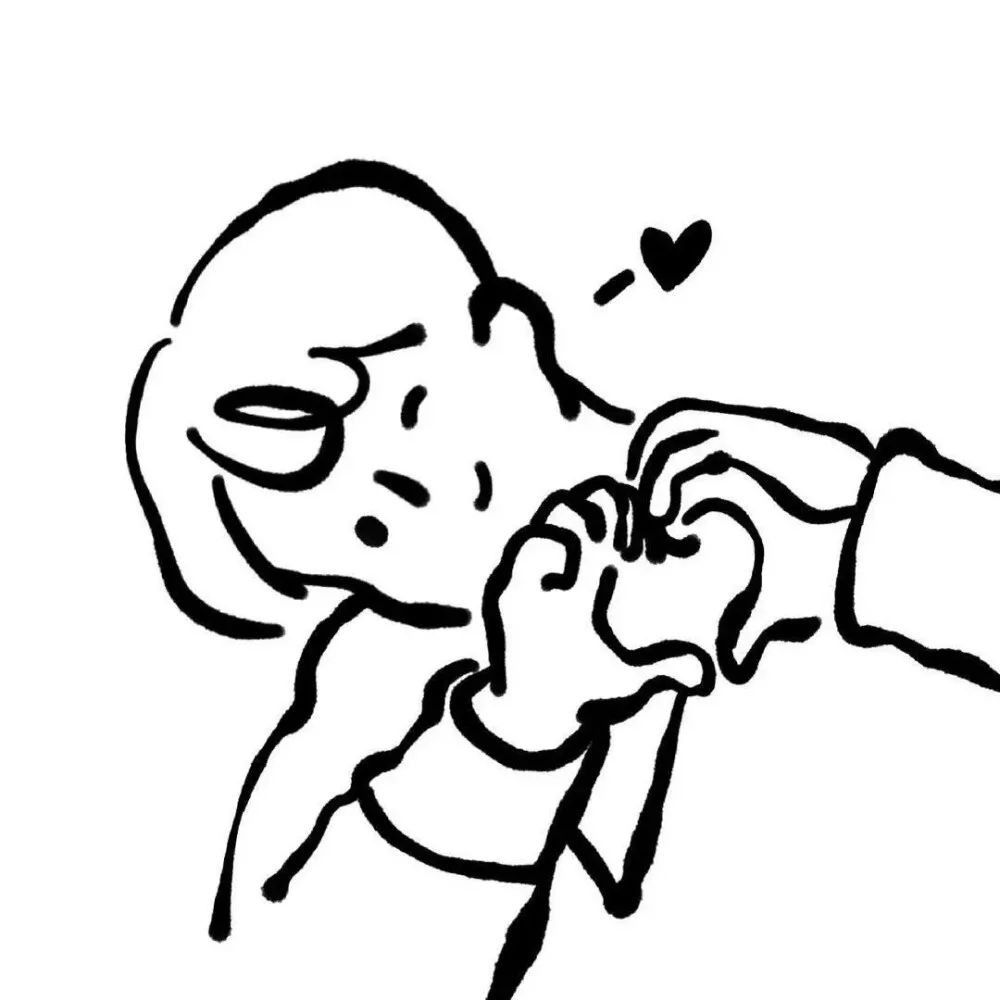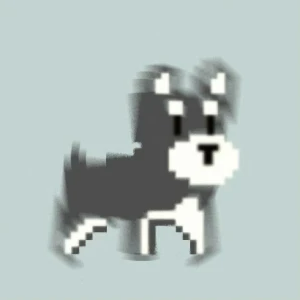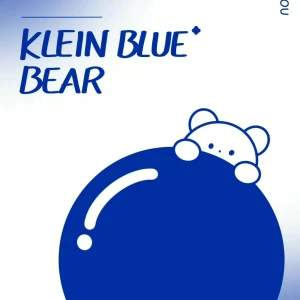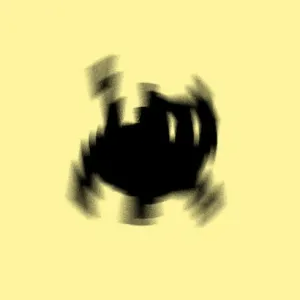初中英语 many的比较级和最高级是什么?
many的比较级more最高级是most为你解答,如有帮助请采纳,如对本题有疑问可追问,Goodluck! 左迁2023-07-08 10:15:342
左迁2023-07-08 10:15:342
初中英语语法:八中英语实验班07要求 什么样的考生才能进
《八中英语实验班07要求 什么样的考生才能进》由英语我整理,更多请访问:https://www.liuxue86.com/english/。本内容整理时间为05月12日,如有任何问题请联系我们。 实验班 (1)两个英语实验班 此班有统一政策,只招西城区考生。填报志愿时,注意把英语实验班填写在第一专业,把普高填写在第二专业。志愿填报了实验班,并且中考成绩达到英语实验班分数线的考生直接录入到英语实验班。 (2)一个理科实验班 被八中录取的学生,择优进入实验班。 什么样的考生才能进北京八中的理科实验班? 中考成绩必须达到八中录取分数线,并且在高一入学后参加统一的分班选拔考试,并按成绩由高到低录取。理科实验班不局限于西城考生,只要考进八中的学生都有资格参加选拔考试。 理科实验班的选拔考试要考哪些科目? 入学分班考试科目有三门:数学、物理、英语。按这三门的总成绩择优进入理科实验班。 进八中的英语实验班主要是依据英语成绩吗? 进入八中的英语实验班主要依据中考成绩,如果中考成绩排在西城区前70名(除去没有报考英语实验班的学生)的都可以进入英语实验班。因此基本和英语成绩没关系。 2007年高考成绩 北京八中多年来高考成绩一直名列前茅,高考升学率多年保持100%,重点大学升学率始终持续在98%以上。在2007年高考中,八中毕业生又取得了优异成绩,其中:理科平均分607.5,文科平均分586.2,98.2%达到一类本科线。 中考英语相关下载 中考英语真题 http://www.yingyu.com/zhongxueyingyuxuexi/zhentijijin/ 中考英语语法试题 http://www.yingyu.com/zhongxueyingyuxuexi/chusanyingyu/yingyuyufa/ 中考英语模拟试题 http://www.yingyu.com/zhongxueyingyuxuexi/monishiti/ 中考英语满分作文 http://www.yingyu.com/zhongxueyingyuxuexi/zhongkaoyingyu/zhongkaoyingyumanfenzuowen/ 《八中英语实验班07要求 什么样的考生才能进》由英语我整理,更多请访问:https://www.liuxue86.com/english/ wpBeta2023-07-08 10:09:081
wpBeta2023-07-08 10:09:081
初中英语: on first day 对还是 on the first day 对
我觉得是on the first day 可桃可挑2023-07-07 06:55:353
可桃可挑2023-07-07 06:55:353
初中英语常考短语固定搭配
初中英语常考短语固定搭配涉及词汇搭配、动词短语、介词短语等方面。1、词汇搭配。初中英语中常考的词汇搭配包括动词+名词、形容词+名词等,如make a decision(做决定)、pay attention to(注意)等。在学习过程中,要注意词汇搭配的固定性和适用范围,以便在实际应用时更加得心应手。2、动词短语。初中英语中常考的动词短语有助于提高表达能力和准确度,如get along with(与某人相处融洽)、look up(查阅)等。要积累动词短语,并在语境中实践运用,增强语言运用能力。3、介词短语。初中英语中常考的介词短语主要包括介词+名词的固定搭配,如in front of(在…前面)、on behalf of(代表)等。熟练掌握这些介词短语,有助于提高句子的连贯性和表达效果。有效地记忆初中英语常考短语固定搭配的方法:1、制定学习计划。为掌握初中英语常考短语固定搭配,可制定分阶段的学习计划,有针对性地进行学习和积累。明确学习重点,如词汇搭配、动词短语和介词短语等,通过逐步学习,提高记忆效果。不仅如此,还需在实际应用中巩固所学知识,从而提升英语水平和应试能力。2、运用词汇手册。在学习过程中,可以整理一本自己的词汇手册,将学到的短语和固定搭配记录下来。有空时进行复习,加深对这些短语搭配的记忆。同时,随时补充新学到的短语搭配,使词汇手册更加完善。3、多做练习。通过做各种初中英语相关的练习题,可以检验自己对短语固定搭配的掌握程度。在实际应用中,发现自己的不足和错误,及时进行调整和改进。同时,多读英文文章和书籍,从实际语境中学习和积累这些短语固定搭配,提高英语水平。 无尘剑
2023-07-06 08:39:591
无尘剑
2023-07-06 08:39:591
how is it going出现在初中英语第几册第几课
七年级英语下册 Lesson 13 How Is School Going?_ow is going在英语是常见的问候性句子,常用于日常口语中熟识的人们,尤其是比较亲密的人之间的关心问候语,是人们用来见面打招呼时的说的;也常用于写信或邮件的开头,属非正式用语。_梢曰卮穑_ood,fine,Never better! , I"m fine! , It"s OK,nothing too bad!等等_ow is it going和What"s up都是用来见面打招呼。当你早上遇见自己的朋友时,可以说how is it going。 人类地板流精华2023-07-06 08:36:231
人类地板流精华2023-07-06 08:36:231
初中英语单词表,要带音标的
wheel 音标为 :wi:l 轮子 snail 音标为:sneIl 蜗牛 等等…… 拌三丝2023-07-06 08:31:162
拌三丝2023-07-06 08:31:162
旅游的好处初中英语作文(5篇)
1.旅游的好处初中英语作文 The ancient said the world is a book and those who do not travel read only one page. I like travel, because travel not only allows me to enjoy the great rivers and mountains of the motherland, but also brings me knowledge and exercise. Beautiful sceneries make me impressed and friendly people make me warm. Travel is a process of discovery of beauty that would pany my whole life. I like the feeling on the road, which greatly enrich my life and fields of vision. Being to different places, seeing different views makes me know how big the world is, so that I won"t bother my trifles. I think a broad mind is extremely important to a person, and traveling is a good way to get it. Maybe some people would say that I travel just because I want to relax. There"s no doubt about that. No matter for what reason, traveling is attractive to us all. 古人云:读万卷书,不如行万里路。我喜欢旅行,旅行不仅仅让我饱览祖国的大好河山,并且在学到知识的同时还锻炼了自我。 美丽的风景让我印象深刻,有好的人们也让我倍感温暖。旅行就是一个发现美的过程,这种美的感受将会陪伴我的终生。我喜欢在路上的感觉,这极大的丰富了我的生活和视野。到不一样的地方,看不一样的风景会让我明白世界之大,从而不会被琐事叨扰。我认为开阔的胸襟对一个人来说尤为重要,而旅行是开阔胸襟的一个好方式。也许有的人会说,我之所以去旅行,只是因为想得到放松,这是毫无疑问的。不管出于什么原因,旅行总是充满诱惑。 2.旅游的好处初中英语作文 It is exciting to visit different places. As you travel, you will see beautiful sceneries typical of the region. Besides, you can meet and make friends with people of different colors and races. Finally, you can get to know the customs and living habits of the local people. Today people are so fond of travelling that tourism has bee one of the faster growing industries in most countries. The main reason why people travel is, perhaps, for pleasure. For example, having worked hard throughout the weekdays, people will find a widened trip to the nearby mountains or beaches a real relaxation. For another example, spending an annual holiday travelling abroad is an especially satisfying experience for those who do not have much of an opportunity to be away from their homelands. When people return from their travel, they will generally feel fresh and energetic, ready to work harder. Travelling is also one of the best means for learning. You may have read or heard about something but you can never get an accurate picture of it until you see it for yourself. Seeing is believing. Furthermore, if you are a careful observer, you can learn much during your travel about the geography, biology, and history of the places you visit. No matter how well educated you are, there is always a lot for you to learn through travelling. The knowledge acquired from travel, as you will have found in your life, is no less valuable than that from any influential reference book. 参观不一样的地方是令人振奋的。当你旅行时,你会看到美丽而经典的风景。除此之外,你能够广泛结交朋友,与不一样肤色、不一样种族的人成为朋友。最终,你能够更好地了解当地人民的风俗和生活习惯。今日,人们乐于旅游,旅游在大多数的国家已经成为最快速发展的产业之一。 也许人们旅游的最主要目的是为了消遣。例如,一周的辛苦工作之后,人们会发现到附近的山脉或海滩上旅行能够获得真正的放松。再比如,对于那些没有太多机会离开家的人来说,每年一次的节日出国旅游是一种异常令人满意的体验。当人们旅行结束后,他们会觉得精神饱满、活力充沛,做好了更努力工作的准备。 旅游也是学习的方法之一。你可能已经看过或听过某些事,但你永远不会得到一个准确的画面,除非你亲自见过。百闻不如一见。此外,如果你是一个细心观察的人,你就能够在你的旅途中学到很多东西关于地理、生物和历史方面的知识。无论你受过多良好的教育,总还是能够在旅行中学到很多东西。你会发现从旅行中获取的知识在你生活中的价值不比任何有影响力的参考书的价值小。 3.旅游的好处初中英语作文 Nowadays, more and more people prefer to travel quite often. By traveling, we not only can relax ourselves but also broaden our knowledge circles. From my aspect, I think we can make many friends and travel with them. Firstly, we can enjoy the beautiful scenery and relax ourselves. For modern life, we are busy with our work with high pressure. However, when we travel, we will be attracted by great landscape and forget pressure from both work and life. Secondly, we can make friends by traveling. For most travelers, they tend to find many panions to travel with. If you check the internet, you will find that some people will call others to join them for travel. Through this kind of travel, we can meet many different people and make friends with them to broaden our social circle. Thirdly, we can learn much knowledge form travel. Before you go to somewhere to travel, generally, you need to make plans for your travel. You can find lots of things you don"t know when you make a plan, such as, the origin of a certain area, the customs of different areas, local food and so on. In conclusion, we can not only relax ourselves and make new friends but at the same time we can learn much from travel. 此刻,越来越多的人会经常去旅游。经过旅游,我们不仅仅能够放松自我,并且也能开阔我们的视野。在我看来,我们能够在旅游中结识到新朋友和他们结伴同行。 第一,我们能在欣赏风景之余放松自我。现代生活中,我们整天忙于工作,压力很大。可是,当我们旅游的时候,我们会被美景吸引,暂时忘记工作和生活的压力。 第二,在旅游中能够交朋友。对于许多旅游的人来说,喜欢与人结伴同游。如果你到网上搜一搜,你会发现有很多人都会叫其他人加入他们去旅游。经过这种方式的出游,我们能见到各种各样的人,与他们交朋友,扩大我们的交际圈。 第三,在旅游中,我们能学到很多的知识。在你想去某个地方旅游之前,通常你需要制定一个计划。制定计划的过程中,你会发现许多你不明白的事情,例如,某个地区的由来,不一样地方的人的风俗习惯,当地的美食等等。 总之,经过旅游,我们不仅仅能放松自我,结识新朋友,同时也能学到新知识。 4.旅游的好处初中英语作文 Whenever a college student is asked, "What are you going to do this summer vacation?" The most probable answer might be "I am going to have a travel. " It sounds that college students are fond of travelling. Why? Because travel has numerous advantages. First of all, travel can widen our knowledge of geography, the knowledge of customs, cultures and lifestyles of different places and countries. Secondly, we can make friends and practise a foreign language through travelling. Finally, travel is the best way of pastime. We can enjoy eating various food and seeing beautiful sceneries. In a word, we can benefit from travel in more than one way. It is worth spending the time. 不管你什么时候问一个大学生这样一个问题:“今年暑假你要做什么?”他很可能这样回答:“我要去旅游。”听起来大学生们是喜欢旅游的。为什么呢? 因为旅游有许多好处。 首先,旅游能够扩大我们的地理知识以及扩大我们对不一样地区不一样国家的风俗、文化和生活方式方面的知识。其次,经过旅游我们能够交朋友、练外语。最终,旅游是消遣的方法,我们能够享受各种食品,观看美丽景色。 一句话,旅游的好处不止一个方面,花些时光是值得的。 5.旅游的好处初中英语作文 Travel is a good way to refresh and broaden our horizon. During your travel, you can turn off your cellphone and keep far from the Internet. You can forget your work, your study or your family, and just enjoy the leisure time. From the moment when you start your journey, all the trifles should be locked at your house. During the travel, you can kill your time slowly to have a good rest, and you can contact with different people. They may be a window for you to know a different world. Meet various people, experience things, which make your world bigger. You just clean up your entire mind and you can get the true meaning of travel. 旅行是消除疲劳开阔眼界的好方式。在旅行中,你能够关掉手机,远离网络,能够忘记你的工作、学习或家庭,只需静静地享受旅行的闲暇。从踏上旅程的那一刻起,所有的琐事都应当被紧锁在家里。旅行的时刻,你能够慢慢打发时光,好好休息,也能够和不一样的人打交道,这些人可能是你开启另一个世界的窗口。 遇见不一样的人,经历不一样的事,这都能够使你的世界更宽广。你只要清空思绪,就可得到旅行的真正意义。 黑桃花2023-07-06 08:19:491
黑桃花2023-07-06 08:19:491
初中英语演讲~急!
英语演讲稿,长短差不多的,以下内容可以参考:)~~We study English so as to make oral communications, so this order of importance of oral English study should be followed: Fluency, Accuracy, and Appropriateness. That is to say, we have to pay more attention to practical communicating ability instead of only laying emphasis on the grammatical correctness. Try to find some partners practicing oral English together and English corner is a good place as where we may exchange English study experience, widen our sight and improve interest in English. If English partners are not easy to get, then we have to create an English environment ourselves by speaking English to ourselves. This method is very effective and easy to insist on--interpreting Chinese-English novels or books. First we read the Chinese parts and then try to interpret them into English and then compare our interpretation with the original versions in the novels or books so that we can find out the mistakes, shortcomings and progresses in our interpretation. Retelling exercise: Retell some articles or English stories in our own words. If possible, we may read some English tongue twisters loudly and quickly with one or two cakes of candy in our mouth (just as the Chinese cross-talk actors do.) to train our oral cavity muscle and tongues suitable for English pronunciation. Paying more attention to phrases and small words as one major shortcoming of Chinese English is that Chinese students tend to use big words in their oral language, but the idiomatic oral English is abundant with short, active and vivid phrases. And most of such phrases are made of small words. Thinking in English.Oral English has its own features, but it is closely combined with other aspects of English, for example, writing may make oral English precise and accurate. wrtingskills The Internet also provides a motivating environment for students to practice and publish their writing. English, as a most common used language, is often a hard bone for many non-native speakers. Looking around, you"ll find an interesting phenomenon that Chinese students can write good English or they can easily get a high TOEFL score, however, students from India can better use it in communication. Some of us often complain that although we have learned English for almost 10 years in school, we still find it difficult when we want to speak. This doesn"t happen accidentally. It"s due to our learning approach which does not focus on application but only on grammar and vocabulary. We have too many exams to take in school, thus most students learn it only to pass the exam or to get a better grade. No wonder we"re weak in listening and speaking. We have too little chance to express ourselves in daily life. So if we want to improve our real English level, there"s one straight way to go-----just practice it. Imagine we live abroad, a total English environment, what do we need? First of all, we need establish communication with others, thus we need listen and speak. The aim of listening is to understand others what they say, no matter what their accent is like. So the listening materials shouldn"t be confined to standard English. We can try various speed and various accents. One interesting way is to watch English movies, which is an interesting thing. And the other is to find chances to chat with others, which improves not only listening ability but also speaking ability. 苏萦2023-07-06 08:18:014
苏萦2023-07-06 08:18:014
初中英语短语词组
初中英语短语词组 要学好英语,词汇是至关重要的。为了帮助大家,我搜罗了大量初中英语词组和短语,初中学过的基本都在这里啦,还在等什么,赶紧背起来吧! 1.put down 放下 shut down 把u2026关上cut down砍掉come down下来、落下slow down 减缓、放慢sit down坐下write down写下get down下来,降落 2.all over the world= around the world =throughout the world全世界 3.all kinds of 各种各样的 4.neitheru2026 nor 既不u2026也不u2026. 5.not only u2026 but also u2026不但u2026而且 , bothu2026 and u2026u2026和u2026都 6.the more , the better 越多越好 7.all oneu2019s life 一生 8.as soon as 一u2026就u2026 as soon as possible尽可能早地、尽快as well = too也, as much as至多, as little as至少 , regard u2026as 把u2026当作u2026 , as if 好像 9.no matter 无论u2026 10.55 ever since 从那以后,此后一直 11.so far 到目前为止 , or so大约 12.another two hours (=two more hours )又(再) 2个小时 13.three times a week一周三次 14.after all毕竟.终究after that于是.然后day after day日复一日地one after another相继.挨次soon after不久以后the day after tomorrow后天 15.come up with找到、提出catch up with赶上wake up弄醒、醒来send up发射open up开设、开办grow up长大pick up拾起、捡起hands up举手eat up吃光clean up打扫干净give up doing sth.=stop doing sth.放弃做某事 16.arrive at/in + n.到达get to +n.到达reach + n.到达arrive / get +adv.到达 17.getu2026back退还,送回去.取回give back归还come back回来at the back of在u2026的后面on the way (back)home在回家路上 18.at least至少at breakfast早餐时at desk在桌前at once立刻,马上at school在上学at the same time同时at work在工作be good at=do well in 善长laugh at嘲笑notu2026at all一点也不at first起初at night在晚上at noon中午.at the age of // when sb. wasu2026years old 在u2026岁时at last / in the end / finally 最后、终于.at the beginning of the twenty-first century在21世纪初,at the end of 在u2026终点、结尾at the moment // now现在at the foot of在u2026脚下at Christmas在圣诞节at any moment任何时候at times(sometimes)有时,偶尔at the doctoru2019s在医务室be bad at不善长 19.for example例如for ever永远be good for对u2026有益be bad for对u2026有害for long=for a long time长期for short 简称be short for是u2026的简称TV is short for “television” 20.come true实现come down下来come from=be from来自,出生于come in/into进入,进来come on赶快come over过来come along走吧,过来,快点,come and go来来去去come up上来come out出来,(花)开,(照片)冲洗出来 21.even though=even if即使、虽然、尽管 22.be pleased with对u2026感到满意be covered with被u2026覆盖be expected to do sth.被期望做某事be proud of 以u2026自豪speak highly of 称赞be afraid of害怕hear of听说(hear from sb.收到某人的来信)of cause=certainly当然可以plenty of= a lot of许多 23.by the way顺便说by oneself单独,独自by the end of到u2026为至by the time(引起时间状语从句)到u2026的时候one by one依次by air / plane乘飞机by bus / train / car乘公共汽车/火车/轿车(catch a bus赶公交车get on / off the bus上/下车take a bus tou2026=go to u2026by bus乘车去) 24.do / try oneu2019s best尽力do oneu2019s homework做家庭作业do (the/some) shopping购物do the cooking烹饪do some cleaning打扫do the / some washing洗衣服do sport做运动do with sb / sth.处理well done干得好(From:www.rrcom) 25.early in the morning一大早in the early spring初春in my early days我幼年时期early bus早班车 26.make a contribution to贡献给、捐献make a telephone call to sb. // ring sb. up // give sb. a call // phone sb.给某人打电话connectu2026tou2026把u2026与u2026连接起来be close to靠近(某地) give birth to生(孩子) lose to sb输给sb . 27.on show = on display展览 28.be filled with / be full of充满u2026 29.thank to =because of由于 30.some day =one day(将来)某一天 , all day终日, day and night 日日夜夜 , in a day or two一两天内 in the old days从前,旧社会, from day to day (day after day)日复一日 , the day before yesterday前天 , the day after tomorrow后天, Tree Planting Day植树节 , Womenu2019s Day 妇女节 31.keep / stop / preventu2026 (from) doing sth.防止(阻止)u2026做某事 , stop to do sth.停下来去做某事 , stop doing sth.停止做某事 32.nice and +adj. = very +adj.很,非常 33.a place (places) of interest 名胜 34.three quarters of the information on the Internet因特网上四分之三的信息 , two thirds of the books三分之二的书 35.credit card信用卡 36.the increasing population增长着的人口 37.81 a path of travel旅行路线 38.82 . point at / to指向 39.by sea = by ship乘船 , by the sea = on the sea 在海边, at sea在海上 40.set oneu2019s mind to do sth.一心想做某事 41.85 .multiplyu2026byu2026乘以u2026 42.See you!再见 You see.你知道,你明白,你瞧 , Let me see.让我想想, see sb. off给某人送行 , see a / the doctor看病, see sb . do / doing sth.看见某人做某事 43.87 someu2026others一些(人,物)u2026其他(人,物) oneu2026another一个..另一个(三者或以上 ) oneu2026the other一个u2026另一个(总数二个) 44.be worn out穿旧,磨坏 , check out核实,检查 , write out写出 , take sth. out of从u2026拿出/取出某物 45.in this way用这种方法 , in a few yearu2019s time几年以后 , in space在太空 , in and out of class在课内课外 , in the last fifteen minutes在最后十五分钟里 , in the second half 在下半场 , later in oneu2019s life在某人后半身 , in the air在空中 , in the open air在户外 46.give sb. an injection给某人打针 , get an injection打针 47.have been to去过某地 , have gone to到某地去了 48.here + be+ 名词+ for+某人 ( Here is a letter for you.这儿有你的一封信.) 49.be far behind +某人 (He is far behind others. 他落后于别人) 50.one of + adj.最高级+复数名词 51.take +某物+with +某人 (Youu2019d better take an umbrella with you.你最好带上雨伞) 52.prefer to= likeu2026better than宁愿,更喜欢prefer + V-ing (to do sth.) ( I prefer doing (to do) it myself .我喜欢自己做那件事). Would / should等情态动词 + prefer +不定式. (I would prefer to do it myself.我宁愿自己做那件事) , prefer +名词(v-ing) + to+名词 (v-ing) (I prefer learning English to playing football.我愿意学英语而不愿踢足球) ; prefer +不定式(名词)+ rather than + 不带to的不定式, (I prefer to walk there rather than go by bus.我喜欢走着去那里,而不愿乘车) , prefer + 名词(代词) to do sth. (We prefer her not to come.我们宁愿她不来) 53.人+ spend +time (money) +(in) doing sth. (I spent over two hours (in) finishing my homework.我花了两个多小时完成家庭作业.) , 人 + spend + time (money) + on +名词, (He spent 1,000 on the TV set .他花了一千元买电视机). 人 + pay + money +for +sth. ( He paid ten yuan for the book .他花了10元钱买那本书.) It + takes (will take, / tooku2026) + sb. + time (money) + to do sth. (Itu2019ll take you only ten minutes to get there by bus.乘车去那里只花你10分钟). 物+ cost + (sb.) + money, (The dictionary cost me 20 yuan .我花20元钱买了那本词典) 54.do with + sb. / sth. (What have you done with the pork ? 那些肉你怎么处理了?) 55.mind + if 从句, (Do you mind if I open the window?我开窗你不反对吧?) mind + V-ing, (Would you mind turning on the TV?打开电视你不反对吧?) 56.whatu2026for? / whyu2026? (What do you learn English for? = Why do you learn English?) 57.need + 名词 (v-ing), (The students need some help.学生们需要帮助.This pair of shoes needs mending.这双鞋需要修理) 58.“be used for+ 名词(v-ing),”被用来做.. (A writing brush is used for writing.) “be used as+名词”, 被作为u2026使用 (English is used as the first language in none of these countries. ) “be used by+动作执行者”, 被u2026使用, 59.be made of 由u2026制造(This table is made of wood .这张课桌是木制的) be made from由u2026制成 (This kind of paper is made from wood . 这种纸是用木材制成的.) be made in+地点, “某地制造”(These cars are made in Germany) be made by+人, “由谁制造的” (This kite is made by Kate . ) 60.more developed countries发达国家, less developed countries不发达国家, developing countries发展中国家 61.be worth + money (V-ing),值u2026钱.值得做u2026This car is worth more than two million yuan in China. This book is well worth reading.这本书很值得一读. 62.the Summer Palace颐和园 , Tianu2019anmen Square天安门广场 , the Palace Museum故宫 , the Great Hall of the People人民大会堂 , the Temple of Heaven天坛 , the Great Green Wall绿色长城 , PLA中国人民解放军 , PRC中华人民共和国, the Party中国共产党 , the League共青团 , Peking Opera京剧 63.107 a digital camera数字照相机 , a doctor for animals = an animal doctor动物医生 64.so + 形/副+that 从句, (The place is so cold that nothing can grow in winter .这地方太冷,冬天什么都不长) so + many / few+ 复数名词 +that从句 (He has so many books that I donu2019t know which one to borrow. 他有那么多书,我不知道借哪一本) so + much / little+ 不可数名词+that从句 (She has so little money that she canu2019t buy anything .她钱太少,什么也买不到.) so+ 形容词 +a / an +单数名词 +that从句 (This is so good a book that all of us like reading it ) , such +a / an+ 形容词+单数名词+ that从句 (This is such an interesting story that all of us like it) , such +形容词+复数名词+that从句. such +形容词+不可数名词+that从句 (It is such fine weather today that many children are playing outside) 65.109 .tell sb about sth.告诉某人关于某事 , tell sb+从句, tell sb. to do sth.让某人做某事 , tell a lie说谎 , tell a story讲故事 , thank you for +n ./V-ing 谢谢你u2026 too + adj. / adv. + to + v.太u2026而不能, too much(修饰名词)太多,过分 , much too(修饰adj./adv.)太 66.hope / wish+不定式(或从句), wish sb. to do sth. What do you mean byu2026?= What doesu2026 mean?u2026是什么意思? 67.eitheru2026oru2026或者u2026或者..on either side of the street街道任何一边(on each side of the street街道每一边on both sides of the street街道两边) 68.keep doing sth.不停地做某事(表示状态继续)keep on doing sth. 坚持做某事(表示动作反复进行)practise doing sth.练习做某事enjoy doing sth.喜欢做某事finish doing sth.做完某事go on doing sth.继续做某事(同一件事) 69.go on to do sth.接着做某事(另一事) go straight along 沿着u2026一直往前走, go down下降, go for a walk散步, go over复习, go shopping买东西, go to the cinema去看电影, go well进展顺利, go off to动身前往, go out外出 , go to work去上班, go up上升, want a go 想试一试 70.think about考虑 (think of 认为、想起、考虑、想到 think over仔细考虑 think out想出)talk about谈论, worry about担心, How / What aboutu2026?u2026怎么样? 71.borrowu2026from u2026从u2026借u2026.(lendu2026tou2026把u2026借给u2026)from door to door挨家挨户 , from time to time时时, from now on 从今以后 , from then on 从那以后, be different from与u2026不同 , learnu2026fromu2026向u2026学习 72.get dressed穿衣 , get into进入, get / be lost丢失, get off / on下/上车 , get on well with sb.与某人相处得好, get out of从u2026出来 , get ready for +n.为u2026做准备, get ready to do sth.准备做某事, get / go to sleep (fall asleep)入睡 , (be asleep睡着) get warm 变暧 , get well康复, get a chance 有机会、得到机会 73.look for 寻找 , wait for等候 , look after=take care of照看, look like看起来像 , look over检查,复习 , look out小心,从里向外看 , look the same看起来一样, look up向上看,查单词 , look around环视look forward to期望 , look through温习,检查 74.set off 出发、动身, put off 推迟 , keep off 避开、不靠近u2026 drop off放下(某物),turn off关 , jump off跳离 , take off脱(衣),(飞机)起飞 (From:www.rrcom) 75.half a kilo半千克 , half an hour半小时 , in half分成两半, half of the day半天 76.do eye exercises做眼保健操 , do morning exercises做早操take (more) exercise (多)参加体育锻炼 , an exercise book练习本 77.take part in参加 , hand in上交 , in hospital住院 , in surprise吃惊地 , in the sun在阳光下 , in trouble处于困境, in a minute / moment马上 78.leave foru2026动身去某地 79.27 feed on 以u2026为主食 , live on继续活着 , base on以u2026为根据 , carry on坚持、继续下去 , and so on 等等 , on the other hand另一方面 , on foot步行 be famous for以..著名 , be excited about +n./V-ing对u2026感到兴奋 , be interested in 对u2026感兴趣 , be born出生 , be busy with sth.— be busy doing sth.忙于u2026be amazed at 对..感到惊讶 80.move away移开 , move to(搬)移到 81.search the Internet上网 82.make sure 确信 , make a dialogue编对话 , make a mistake犯错误 (by mistake由于疏忽) make a noise吵闹 , make faces做鬼脸 , make friends (with)和..交朋友 , make room for给..让地方, make tea沏茶, make money赚钱, make a decision作出决定 83.used to do sth过去常常做某事, be used to doing sth.习惯于做某事 84.leave sth+介词短语 “把u2026u2026忘记在某处” 85.forget to do sth.忘记做某事 , encourage sb. to do sth.鼓励某人做某事 , decide to do sth.决定做某事 , allow sb. to do sth.允许某人做某事 86.hear sb. to do (doing)sth.听见某人做某事 87.help sb. (to) do sth .//help sb. with sth. 帮助某人做某事 , with oneu2019s help在某人的帮助下 , with pleasure乐意 88.the summer holiday(s)暑假 the winter holiday(s)寒假 89.step into走进 , pour into倒入u2026 90.in the first第一 , for the first time第一次, at first起初 , a firs t language母语 , first of all首先 91.leave a message for sb.给某人留条, give / take sb. a message给某人捎口信 92.take photos / pictures 照像 , take away拿走 , take out取出 (work out算出) take care当心 , take medicine 服药 take oneu2019s temperature量体温, take oneu2019s time别着急 , take a walk散步 , take place发生 93.learn by oneself / teach oneself自学 , learn by heart背熟 94.a year and a half (one and a half years ) 一年半 95.have a try尝试,努力 , try out尝试、试验 , find out / about找出,查明, have a good / wonderful / great / time玩得开心, have a (bad) cold(重)感冒 , have a meeting / walk / watch开会/散步/比赛 , have sports进行体育活动 , have nothing / sth. to do with与..无(有)关 , have no idea不知道 , have (oneu2019s) medicine服药 96.offer sb sth.给某人提供某物 97.win first prize获一等奖 98.all over the world= around the world =throughout the world全世界 99.all kinds of 各种各样的 100.neitheru2026 nor 既不u2026也不u2026. 101.not only u2026 but also u2026不但u2026而且 , bothu2026 and u2026u2026和u2026都 102.the more , the better 越多越好 103.all oneu2019s life 一生 104.as soon as 一u2026就u2026 as soon as possible尽可能早地、尽快as well = too也, as much as至多, as little as至少 , regard u2026as 把u2026当作u2026 , as if 好像 105.no matter 无论u2026 106.55 ever since 从那以后,此后一直 107.so far 到目前为止 , or so大约 108.another two hours (=two more hours )又(再) 2个小时 109.three times a week一周三次 110.the number ofu2026的数量 a (large / good) number of / large numbers of / many许多 111.less than少于 , less and less 越来越少 112.u2026is another way of sayingu2026什么是..的另一说法 Quick is another way of saying fast. Bike is short for bicycle. 113.notu2026untilu2026 拌三丝2023-07-06 08:17:561
拌三丝2023-07-06 08:17:561
初中英语
第一册词组(共26个) 1.in English 用英语 2.how many 多少 3.a piece of bread 一片而包 4.four cups of tea 四杯茶 5.a pair of shoes 一双鞋 6.play chess 下棋 7.run after 追逐 8.play football 踢足球 9.be good at 擅长 10.on the basketabll team 在篮球队 11.scoot at the basket 投篮 12.the first us 第一班车 13.at eight 在八点 14.hurry up 快点 15.a quarter past ten 十点一刻 16.five to eleven 差五分十一点 17.the next train 下一趟火车 18.on Monday 在周一 19.a ticket for Shanghai 一张飞往上海的机票 20.at home 在家 21.a good idea 好主意 22.go skating 去滑冰 23.in the afternoon 在下午 24.in winter 在冬季 25.make a snowman 堆雪人 26. put on 穿上,戴上 第二册词组(共84个) 1.in Class One,Grade One 在一年级一班 2.play ball games 进行球类活动 3.read books 读书 4.in summer 在夏季 5.have one"s class 上课 6.on the playground 在操场上 7.every day 每天 8.the first class 第一节课 9.be interested in 对…感兴趣 10.his friend 他的朋友 11.go to the zoo 去动物园 12.collet stamps 集邮 13.make model cars 制作汽车模型 14.take pictures 照相 15.grow roses 种植玫瑰 16. go fishing 去钓鱼 17.Chinese food 中国食物 18.my parents 我的父母 19.two American boys 两个美国男孩 20.a new student 一名新生 21.study English 学英语 22.thank you 谢谢 23.in China 在中国 24.speak Japanese 讲日语 25.very well 很好 26.only a little 只有一点 27.a department store 百货商店 28.of course 当然可以 29.try on 试穿 30.have a look at看一看 31.how much 多少钱 32.at the market 在市场里 33.do shopping 买东西 34.a post office 邮局 35.deliver letters 送信 36.take care of 照顾 37.run a machine 开机器 33.get up 起床 39.last year 去年 40.for a long time 很长时间 41.next year 明年 42.come back 回来 43.listen to music 听音乐 44.around the house 在房子周围 45.have a party 开聚会 46.have meals 吃饭 47.look for 寻找 48.the first floor 第一层 49,each of us 我们每个人 50.on the wall 在墙上 51.be far from 离……远 52.write to 给……写信 53.get up 起床 54.have breakfast(lunch, dinner, supper) 吃早饭(午饭,晚饭) 55.do one"s homework 做作业 56. go to bed 上床睡觉 57.watch TV 看电视 58.get to到达 59.at home 在家 60. prepare for 准备 6I.wake up 叫醒 come in 进来 62.go into 进入 63.take a shower 洗澡 64.comb one"s hair 梳头 65.brush one"s teeth 刷牙 66.say goodbye to 和……说再见 at night 在夜里 67.put on 穿上,戴上 68.take off 脱下,摘下 69.good night 晚安 70.wash hands 洗手 71.take a trip 旅游 72.in front of在前面 73.in the east(south, west, north) 在东边 74.by boat 乘船 75.in the middle 在中部 76.a map of China 一张中国地图 77.how about怎么样 78.walk through 走过 79.go down the street 沿着这条街走 80.excuse me 请原谅 81.at the end 在终点 82.turn left (right) 向左(右)转 83.want to do sth.想要做某事 84.next to 旁边,隔壁 第三册词组[共72个) 1.at the party 在聚会上 2.in a low voice低声的 3.give sb sth or give sth to sb 给某人某物 4.enjoy oneseIf 玩很高兴 5.have a party 聚会 6.make friends with sb 和某人交朋友 7.each other相互 8.think of 认为 9.a lot of 许多 10.enjoy doing sth.喜欢做某事 11.do morning exercise 做早操 12.a good rest 好好休息 13. go for a walk 去散步 14.lie in bed 躺在床上 15.plenty of 大量的 16.catch a cold 感冒 17.have a rest 休息 18.three times a day 一天三次 19.have a fever发烧 20.take the medicine 吃药 21.be all right 身体好了 22.one…the other 一个,另一个 23.be on 演出 24.be over结束 25.yesterday evening 昨天晚上 26.It"s good (bad) for… 对…有好处(坏处) 27.once a week 每周一次 28.turn on 打开 29.turen off 关上 30.nearly every day 几乎每一天 31.all kinds of各种各样 32.at the bus stop 在公共汽车站 33.get on 上车 34.get off 下车 35.wait for 等待某人 36.show sb.round 带领某人参观某地 37.be busy doing sth.忙于做某事 38.traffic lights 交通灯 39.move on 继续前进 40.be ready for 为…做准备 41.slow down 减慢速度 42.zebra crossing 人行道 43.knock...off... 撞倒 44.traffic rules 交通法规 45.road signs 交通标志 46.rush hours 高峰期 47.go sightseeing 去观光 48.be air, by plane 乘飞机 49.by sea, by ship 乘船 50.a few 几个,—些 51.most of 绝大多数 52.decide to do sth.决定做某事 53.had better 最好 54.from…to... 从…到… 55.ask sb to do sth.要求某人做某事 56.promise sb. to do sth.答应某人做某事 57.make a call 打电话 58.take a message for sb. 给某人捎个信 59. pick up 捡起,拾起 60.cut off 切断 61.put down 放下 62.go camping 去野营 63.hold on 稍等 64.have a good time 玩得高兴 65.at this moment 现在 66.a telephone booth 电话亭 67.have to 不得不 68.send sb.sth., send sten. to sb.送给某人某物 69. pay for 付款 70.in the middle 在中间 71.You"re welcome 不客气 72.NO PARKING 禁止停车 第四册词组(共118个) 1.be born 出生于 2.visit sb 拜访某人 3.tell sb. sth. 告诉某人某事 tell sb.to do sth.告诉某人做某事 4.tell sb.not to do sth.告诉某人不要做某事 a)teII sb.how to do sht 告诉某人怎样做某事 b)go to a place to do sth 去某个地方做某事 c)go to England to study English 去英国学习英语 5.study at a middle school 在中学学习 6. go boating 去划船 go fishing 去钓鱼 7.go swimming 去游泳 go shopping 去购物 go skating 去滑冰 8.at weekends 在周末 9.at the age of 在……年龄 10.come here at half past two every Saturday afternoon 每个星期六下午两点半来这儿 11.take pictures 照相 12.in one"s spare time 在业余时间 13.come here to do sth. 来这儿做某事 14.come in 进来 15.sit down 坐下 stand up 起立 16.ask sb. some questions 询问某人一些问题 17.on May 2,1984 在1984年5月2日 18.tell sb. the name of the street and the house number 告诉某人街道名字和房间号码 19.like doing sth. 喜欢做某事 like to do sth.喜欢做某事 20.become a teacher 成为一名教师 want to be a doctor 想成为一名教师 21.return to China=come back to China 返回中国 22.teach English at a famous medical college 在一所著名的医科大学教英语 23.tall and healthy 个高又健康 24.short and slim 个矮又苗条 25.be clever and quick in doing things 在做事上聪明伶俐 26.come here to learn singing 来这儿学唱歌 27.tell sb.a funny story 给某人讲述有趣的故事 28.on foot 步行 a)on one"s way to school 在上学的路上 b)on one"s way home 在回家的路上 c)on one"s way to the hospital 在去医院的路上 d)on one"s way to the cinema 在去电影院的路上 e)on one"s way to see a film 在去看电影的路上 29.see sb. do sth. 看见某人做某莫事 see sb.doing sth.看见某人正在做某事 a)hear sb. do sth 听到某人做某事 hear sb. doing sth.听到某人正在做某事 b)make sb.do sth 迫使某人做某事 help sb. (to) do sth.帮助某人做某事 c)1et sb.do sth.让某人做某事 had better do sth.最好做某事 30. fall to the ground 倒在地上 31.go over 走过去,复习功课 32. hurry to school 勿忙去上学 33.be late for the first class 第一节课迟到 34.say with a smile 微笑地说 35.be glad to do sth.高兴做某事 36.do a good thing (deed) 做一件好事 37.fall ill=be i11 生病,患病 38.take sb. to a hospital 把某人送到医院 39.rain heavily 下大雨 40.on the road 在公路上 41.not know what to do 不知道该做什么 42.just then 正在那时 43.come up 走进,上来 44.in front of 在……前面 45.thank sb. again and again 反复感谢某人 46.drive away (汽车)离开 run away 跑开 take away 拿走 47.right away 立刻 48.right now 此刻,刚才,现在 49.get home 到家 get there 到达哪儿 get here 到达这儿 50. yesterday morning 昨天晚上 51.leave the hospital 离开医院 52.no buses=not any buses 没有车 53.say to sb.对某人说 say to oneself 自言自语 54.fall off 跌落 55.need to get up early 需要早起床 56.hurt my arm 胳膊受伤 57.What"s wrong with you?=What"s the matter with you? 你怎么了? 58.do one"s homework on the computer 在电脑上做作业 59.have four English lessons 上四节英语课 60.once a week 一周一次 twice a year 一年两次 three times a month 一个月三次 61.do more listening and speaking 做大量的听说练习 do some cleaning 扫除 do some washing 洗衣服 do some shopping 购物 62.make good progress in English 在英语方面取得很大进步 63.help a lot in our studies 在学习上给子很大帮助 64.teach sb. English 教某人英语 65.get to school 到达学校 66.give sb.lessons 给某人上课 67.ask sb.to do sth.要求某人做某事 ask sb.not to do sth.要求某人不要做某事 68.let sb. do sth.让某人做某事 1et sb. not do sth.让某人不要做某事 69.not……until 直到……才 70.make one"s lessons interesting 使某人的课上的很有趣 71.tell sb. how to do sth.告诉某人怎样做某事 72.try to learn new things be oneself 设法靠自己学一些新的知识 73.want to be a history teacher 想成为一名历史老师 74.grow up 长大 75.in future 在将来 76.computer room (电脑)机房 77.language lab 语言室 78.finish middle school 中学毕业 79.want to become (be) a designer 想成为一名设计家 80.wish to be doctor 希望成为一名医生 81.an American boy 一个美国男孩儿 82.study in a high school 在高中学习 83.in Grade Eight 在八年级 84.finish primary school 小学毕业 85.start school at the age of seven =begin to school when I was seven 七岁开始上学 86.move to Washington with his family 和他全家搬到华盛顿 87.be interested in 对……感兴趣 88.want to become a doctor of Chinese medicine 想成为一名中医 89.come here to learn Chinese 来这儿学习中文 90.a nice school 一所好的学校 91.instead of 代替 92.in many ways 在许多方面 93.be different from 与……不同 94.by the way 顺便说 95.come back home 回家 96.be sorry for 为…难过,遗憾 97.feel sorry for 为…难过,遗憾 98.burn away 燃烧没了 99.open the door 开门 100.take sb. in one"s arms 拥抱某人 101.have some medicine 吃药 102.have a football match 进行一场足球比赛 103.have a meeting 开会 104.walk back 向后走 105.give sth. back to sb. 把某物还给某人 106. work through the night 通宵工作 107.get through the examinations=pass the exam 通过考试 108.happen to 发生 l09.knock at the door 敲门 110.want to do sth. 想做… 111.fall down 掉下来 112.begin to do sth. 开始做… 113.have some tea 喝茶 114.have sports 进行体育锻炼 115.have a bad coId 得了重感冒 116.have a good time 玩的很高兴 117.keep back 向后退 118.so…that 如此…以至于… 第五册词组t共372个〕 1.near the fireplace 在火炉旁 2.sit down 坐下 3.jump up 跳起来 4.be angry with sb. 跟某人生气 5.get into the room through the window 从窗户进入房间 6.have lessons 上课 7.have to 必须,不得不 8.be wet through 全部湿透 9.on one"s back 在某人的背上 10.read through the newspaper 通读报纸 11.be cold and hungry 又冷又饿 12.next morning 第二天早晨 13.make sth. for sb. 为某人做… 14.buy sth. for sb. 为某人买东西 15.help sb.with sth. 在某方面帮助某人 help sb.(to) do sth.帮助某人做某事 16.run out of the house 跑出房间 17.keep sth. 保留东西 18.keep oneself clean 保持个人卫生 19.a bit cheapcr 便宜一点儿 20.hand sth.to sb. 把某物递给某人.hand in sth.to sb.上交某人某物 21.put up one"s hand 举手 22.put on 穿上 take off 脱下 23.jump up 跳起 24.be ready to do sth 淮备做某事 25.all kinds of 各种各样 26.show sb. sth. 向某人展示某事 27.begin to do sth.开始做某事 28.make…from 用……制作 29.be back soon 一会儿就回来 30.in one"s hand 在手里 31. again and again 一次又一次 32.wait a moment 等一会 33.have no money 没钱 34.come back withouu the coat 没有穿衣服回来 35.understand his kind father 理解他好心的父亲 36.be afraid 害怕 37.a map of Beijing (China , the world) 一张北京地图 38.at the end of this class 这节课结束 39.Sorry to trouble you. 对不起给你找麻烦了。 40.No trouble at all.没有一点儿麻烦。 41.football team 足球队 42.play against 对赛 43.a good player 一名好远动员 44.be very exciting 令人兴奋的 45.the first half of the match 上半场,前半场 46.pass sth. to sb 把某物递给某人 47.run very fast 跑的很快 48.get into the goal (把球)射进球门 49.be very excited (人)感到兴奋 50.the result of the match 比赛结果 51.invite sb. to a big dinner 邀请某人就餐 52.near the end of the match 比赛快要结束 53.catch the ball 接住球 54. pass the hospital 路过医院 55.pass sb.sth.把某物递给某人 56.pass the maths exam 数学考试及格 57.a famous play 著名戏剧 58. put on a short play 上映短剧 59. get longer and longer 天变得越来越长 60. get dark 天黑 61.get some letters from my friends 收到朋友的来信 62. get the news 得到消息 63. get to the station 到达车站 64.get home 到家 get there 到达哪儿 65.have got 有 66.get on well with sb.和某人相处的很好 67.the right answers 正确答案 68.both her parents 她的父母双方 69.both of them 他们中两个人 70.on both sides of the street 在马路两旁 71.in both hands 在双手里 用双手 72.move over to the table 到桌前就餐 73.prepare so much delicious food 准备很多丰盛食物 74.help oneself to sth. 自便,随便吃 75.a team from a country school 一支来自农村的球队(运动员) 76.1ook like看起来像 77.one of the boys 男孩中一个 78.a boy in a dirty T-shirt 一个穿着脏T恤衫的男孩 79.stop the passs 阻止传球 80.turn to shoot 转过来投球 81.get two more points 又得了两分 82.in a minute 过了一会儿 83.be all over 全场结束 84.a little better 好一点儿 85.learn a more important lesson 上了一节更重要的课 86.stay in bed for another two days 再跟床上呆两天 87.one by one 一个一个 88.about school life in England 关于英国学校生活 89.wear a new dress at the party 在聚会(上)穿一条新裙子 90.work by day and study by night (在)白天工作晚上学习 9t.by this time tomorrow 不迟于明天这个时间 92.fly from Beijing to New York 从北京飞到纽约 93.go to school from Monday to Friday 从周一到周五上学 94.three weeks from today 今天算起还有三个星期 95.live far away from the school 住在离学校很远的地方 96. come from=be from 来自于 97.get a letter from my friend 收到我的朋友一封信 98. like some more fish 喜欢再吃一些鱼 99. thank sb. for …为…而感谢某人 100.go to the hill with sth. 带着东西上山 101.come to the top of the hill 来到山顶 101. stay here 呆在这儿 102.a good place 一个好地方 103.go faster and faster 走得越来越快 105.more and more children 越来越多的孩子 106.come along=come with sb.跟上来 107.race down the hill 比赛跑到山下 108.skate on the lake 在湖上滑冰 109.come on 跟(某人)来 快点、加油 110.put sth. under the tree 把某物放在树下 111.just then 正在那时 112.come off 脱离开 113.go off 走开 114. a good lake for skating 适合滑冰的湖 115.be ready for=get ready for prepare for 为…做准备 116.run back up the hill 跑回到山上 117.look out = be careful 当心,小心 118.go over复习功课,走过去 119.run down the hill 跑下山 120.go on skating over the lake 在湖上继续滑冰 121.go round and round 一圈一圈的走 122.come back to sb. 返回到某人处 123.come up to sb.向某人那里走来 124.as…as 与…一样 125.so…that 如此…以至 126.too…to 太…以 韦斯特兰2023-07-06 08:17:542
韦斯特兰2023-07-06 08:17:542
初中英语重点短语 河北优先 重点的,常用的, 如look after take care of 等等 谢谢
1. clothes, cloth, clothing clothes 统指各种衣服,谓语动词永远是复数,cloth 指布,为不可数名词 clothing 服装的总称, 指一件衣服用 a piece of, an article of 2. incident, accident incident 指小事件, accident 指不幸的事故 He was killed in the accident. 3. amount, number amount 后接不可数名词,number 后接可数名词 a number of students 4. family, house, home home 家,包括住处和家人,house 房子,住宅,family 家庭成员。My family is a happy one. 5. sound, voice, noise sound 自然界各种各样的声音,voice 人的嗓音,noise 噪音 I hate the loud noise outside. 6. photo, picture, drawing photo 用照相机拍摄的照片,picture 可指相片,图片,电影片,drawing 画的画 Let"s go and see a good picture. 7. vocabulary, word vocabulary 词汇,一个人拥有的单词量,word 具体的单词 He has a large vocabulary. 8. population, people population 人口,人数,people 具体的人 China has a large population. 9. weather, climate weather 一天内具体的天气状况,climate 长期的气候状况 The climate here is not good for you. 10. road, street, path, way road 具体的公路,马路,street 街道,path 小路,小径,way 道路,途径 take this road; in the street, Show me the way to the museum. 11. course, subject course 课程(可包括多门科目),subject 科目(具体的学科)a summer course 12. custom, habit custom 传统风俗,习俗,也可指生活习惯,后接 to do,habit 生活习惯,习惯成自然,后接 of doing. I"ve got the habit of drinking a lot. 13. cause, reason cause 指造成某一事实或现象的直接原因,后接 of sth./doing sth,reason 用来解释某种现象或 结果的理由,后接 for sth./doing sth. the reason for being late 14. exercise, exercises, practice exercise 运动,锻炼(不可数),exercises 练习(可数),practice(反复做的)练习。 Practice makes perfect. 15. class, lesson 作“课”解时,两者可以替换。指课文用 lesson. 指班级或全体学生用 class. Lesson 6; Class 516. speech, talk, lecture speech 指在公共场所所做的经过准备的较正式的演说,talk 日常生活中的一般的谈话,讲话,lecture 学术性的演讲,讲课 a series of lecture on … 17. officer, official officer 部队的军官,official 政府官员 an army officer 18. work, job 二者均指工作。work 不可数,job 可数 a good job。 19. couple, pair couple 主要指人或动物,pair 多指由两部分组成的东西 a pair of trousers 20. country, nation, state, land country 侧重指版图,疆域,nation 指人民,国民,民族,state 侧重指政府,政体,land 国土, 国家 The whole nation was sad at the news. 21. cook, cooker cook 厨师,cooker 厨具 He is a good cook. 22. damage, damages damage 不可数名词,损害,损失; damages 复数形式,赔偿金 $900 damages 23. police, policeman police 警察的总称,后接复数谓语动词,policeman 指某个具体的警察 The police are questioning everyone in the house. 24. problem, question problem 常和困难连系,前面的动词常为 think about, solve, raise,question 常和疑问连系, 多和ask, answer 连用。 25. man, a man man 人类,a man 一个男人 Man will conquer nature. 26. chick, chicken 二者均可指小鸡,chicken 还可以当鸡肉 The chicken is delicious. 27. telegram, telegraph 当电报解时,telegram 指具体的,telegraph 指抽象的 a telegram, by telegraph 28. trip, journey, travel, voyage travel 是最常用的,trip 指短期的旅途,journey 指稍长的旅途,voyage 指海上航行 a three-day trip 29. sport, game sport 多指户外的游戏或娱乐活动,如打球,游泳,打猎,赛马等;game 指决定胜负的游戏,通常有一套 规则 His favorite sport is swimming. 30. price, prize price 价格,prize 奖,奖品,奖金 win the first prize The price is high/low. 31. a number of, the number of a number of 许多,谓语动词用复数。the number of … 的数目,谓语动词用单数。The number of students is increasing. 32. in front of, in the front of in front of 范围外的前面,in the front of 范围内的前面 In the front of the room sits a boy. 33. of the day, of a day of the day 每一天的,当时的,当代的,of a day 暂时的,不长久的 a famous scientist of the day 34. three of us, the three of us three of us 我们(不止三个)中的三个,the three of us 我们三个(就三个人)The three of us --- Tom, Jack and I went to the cinema. 35. by bus, on the bus by bus 表手段,方式,不用冠词,on the bus 表范围 They went there by bus. 36. for a moment, for the moment for a moment 片刻,一会儿,for the moment 暂时,一时 Thinking for a moment, he agreed. 37. next year, the next year next year 明年,将来时间状语,the next year 第二年,过去将来时间状语 He said he would go abroad the next year. 38. more than a year, more than one year more than a year 一年多,more than one year 超过一年(两年或三年等) 39. take advice, take the(one"s) advice take advice 征求意见,take the advice 接受忠告 He refused to take the advice and failed again. 40. take air, take the air take air 传播,走漏,take the air 到户外去,散步 We take the air every day. 41. in a word, in words in a word 总之,一句话, in words 口头上 In a word, you are right. 42. in place of, in the place of in place of 代替,in the place of 在…地方 A new building is built in the place of the old one. 43. in secret, in the secret in secret 秘密地,暗自地,偷偷地,一般用作状语;in the secret 知道内情,知道秘密, 一般用作表语 My mother was in the secret from the beginning. 44. a girl, one girl a girl 可泛指所有女孩, one girl 一个女孩 Can one girl carry such a big box? 45. take a chair, take the chair take a chair 相当于 sit down 坐下,take the chair 开始开会46. go to sea, by sea, by the sea 50. in charge of, in the charge of in charge of 管理,负责照料, in the charge of 由……照料 He is in charge of the matter. The matter is in the charge of her. 凡尘2023-07-06 07:58:051
凡尘2023-07-06 07:58:051
初中英语问题
1.Flowers,2.many,3.zoos,4.There is a/one "f" in the word-"fine". bikbok2023-07-04 06:58:585
bikbok2023-07-04 06:58:585
英语作文 world book day 初中英语作文范文
The World Book and Copyright Day April 23 marks the anniversary of the birth or death of a range of well-known writers,including Miguel de Cervantes Saavedra,Maurice Druon,Inca Garcilaso de la Vega,Haldor Kiljan Laxness,Manuel Mejía Vallejo,Vladimir Nabokov,Josep Pla and William Shakespeare.For this reason,UNESCO"s General Conference chose this date to pay tribute to books,the authors who wrote them,and the copyright laws that protect them. n some years,the Children"s and Young People"s Literature in the Service of Tolerance is awarded.This is a prize for novels,collections of short stories or picture books that promote tolerance,peace,mutual understanding and respect for other peoples and cultures.There are two categories:one for books aimed at children aged up to 12 years; and one for those aimed at young people aged 13 to 18 years. Each year a poster is designed and distributed around the world.It features images designed to encourage people,particularly children,to read books and appreciate literature.There is also a logo for World Book and Copyright Day.It features a circle,representing the world,and two books,one of which is open. 肖振2023-07-03 11:07:031
肖振2023-07-03 11:07:031
初中英语作文 Book is my best friend
hello,I"m a student in NO.2 middle school.I like playing sports,listen to music,but I like reading best.The book gives me a lot of fun,the book,let me also add a lot of knowledge,of course,not everyon... 铁血嘟嘟2023-07-03 11:00:511
铁血嘟嘟2023-07-03 11:00:511
my day初中英语作文90词带翻译
你是怎么度过你的一天的呢?大家不妨写一篇关于my day的90词英语作文描述一下吧。下面是我推荐给大家的my day英语作文90词,供大家参考。 my day英语作文90词篇一 My name is Xiaoyili . I am in holidays . I am get bed at 8 o`clock . I put on my clothes and wash my face and rinse my mouth at 8:10 . At 11:30 I eat lunch . I after having lunch at 12:00 . In the afternoon I do my summer holiday homework . I finish it at 5:00 . AT 5:10 I watch TV and piay computer games . Then I have dinner at 7:30 . I after having supper at 8:00 . Then I downstairs to play with friends . At 11:00 I go to bed . What a with pleasure day . 翻译: 我的名字叫肖伊丽。 我在假期。我床上8点。我穿上衣服洗我的脸洗净8:10我嘴里。在11:30我吃午饭。我在中午十二点再去饭堂吃午饭。 在下午我做我的暑假作业。我五点完成它。在5:10我看电视和piay电脑游戏。 然后我七点半吃晚饭。我在八点吃晚饭。然后我在楼下和朋友们一起玩。11点我去睡觉了。 多么高兴的一天。 my day英语作文90词篇二 Yesterday was my thirteenth birthday. My parents had a birthday party for me. I invited my friends to my party. My parents bought new clothes and some books as my birthday presents. How happy I felt when I put on the new clothes! When all my friends arrived my mother brought delicious food and a big birthday cake. My friends sang "Happy birthday to you!" and gave me some presents. Then we began to eat. It was my happiest day. 翻译: 昨天是我13岁的生日,我的父母为我举办了生日宴会,我邀请了我的朋友来参加。 我的父母为我买了新衣服和书作为生日礼物。我穿着新衣服时感觉好幸福。 我所有的朋友都到了以后,我妈妈端上了美味的饭莱并捧来了一个大蛋糕。 我的朋友为我唱“祝你生日快乐”歌,并送我一些礼物。然后我们开始吃饭。这是我最快乐的一天。 my day英语作文90词篇三 It is a nice day I went out with my mother she want to buy some food and close. I have to follow her although I don"t like to go because tomorrow is my birthday mother want to buy something for me. We went many shops one by one I"m very tired and I don"t know why my mother isn"t tired. I met a friend on the way she is going to buy some close too. There are many people in every shop I chose a jeans and a orange shirt. Then we went home. 翻译: 这是一个美好的一天我和我妈妈出去了她想买一些食品和关闭。我要跟着她尽管我不喜欢去因为明天是我的生日妈妈想给我买东西。 我们去了许多商店一个接一个我很累我不知道为什么我的妈妈不累。 在路上我遇到了一个朋友她也会买一些接近。 有很多人在每一个商店我选择了一个牛仔裤和一件橙色的衬衫。然后我们就回家了。my day英语作文50词相关推荐: 1. 我的一天英语作文50词 2. my busy day英语作文带翻译50词 3. 英语作文My Day范文3篇 4. my day的英语作文小学 5. my day英语作文 my day作文范文 人类地板流精华2023-07-03 10:56:401
人类地板流精华2023-07-03 10:56:401
my day的初中英语作文
每个人的一天都是一样的,看每个人是如何去利用好它。 my day Busy can make the person often then, it was as if all busy people infection, also can let you in a hurry and forget things. The red sun is very busy, busy warm; The teacher is the most busy, busy teaching students; Flowers are very busy, busy fruit to eat. Students also is very busy! Some busy with writing homework, some busy playing video games, watch TV and eat breakfast; Parents are very busy, busy at school, like my cram school teacher; Cabinet as a big belly, can put a lot of books, also let a person every day opened and closed, is really busy! Unexpectedly, the stairs is also very busy, every day to let everybody walked up and down, up and down. The rooster is very busy, like my mother, wake me up every day. I am busy doing the housework, school, endorsement, and remediation of, because and cram school has a lot of things to write, finish will help to do the housework, my load was so tired. I think that my mood is messy, and I don"t like to be busy. Busy like hell, can make the person feels inside out. 忙碌会使人常常七手八脚,就好像被所有忙碌的人感染,也会让大家匆匆忙忙而忘记东西。 红红的太阳很忙,忙着温暖大家;老师最忙,忙着教导学生;花朵也很忙,忙着结果实给大家吃。 my day Everyone has his own day, sometimes happy, sometimes sad. My day is sad. Today is my birthday, but I how also not happy, because my father is leaving, going out to work, I got up early in the morning, after the meal, dad wanted to go, I"m going to get dad, dad said: at home, don"t you send me. Sister cry to send father, father had to let us to send to send. To the station, my father bought a ticket, ready to get on the car, dad said to me: tingting, you want to listen to your mother at home, when you grow up, you should take good care of the body, take good care of your sister. Dad say that finish, and on the car, I watched the father figure, my eyes blurred. Dad, dad, you want to come back soon! I will take good care of myself and my sister! I recalled the father he once took me to the spring outing, I will not be able to play with my father, can"t fly kites together, can"t see me to get a good grades together, the smile on your face, I will not be able to hear your words to comfort me, dad, come back soon! I a person walking in the fields, the day very blue very blue, I seemed to understand, leave the pain of loved ones. How great love kiss, I stand on the field, loudly say: dad, I"ll wait for you to come back. 每个人都有自己的一天,有时快乐,有时忧愁。我的一天是悲伤的。 今天是我的生日,可我怎么也高兴不起来,因为爸爸要走了,要出去打工了,早上我早早的起了床,吃完饭,爸爸要走了,我要送爸爸,爸爸说:你在家,不去送我了就行。妹妹哭着要送爸爸,爸爸只好让我们去送送。 到了车站,爸爸买了车票,准备上车了,爸爸对我说:婷婷,你在家要听妈妈的话,你长大了,要照顾好身体,照顾好你妹妹。爸爸说完,就上了车,我看着爸爸离去的身影,我的眼睛模糊了。爸,爸,你要早点回来!我会照顾好我自己和妹妹的! 我回忆起了爸爸他曾今带我去春游,我将不能和爸爸一起玩耍,不能一起放飞筝了,不能一起看我取得一个好成绩,你脸上的笑容了,我将不能听到你安慰我的话语了,爸,早点回来! 我一个人漫步在田野,天好蓝好蓝,我似乎明白了,离开亲人的痛苦。情亲多么伟大,我站在田野上,大声的说:爸,我会等你回来的。 my day It"s a sunny day.The air is fresh and the breeze is gentle.(晴朗的一天,清新的空气里夹杂着微微的清风) After washing my face and teeth, I went school on my bicycle to enjoy my new day.(洗漱完后,我骑着车,赶往学校,迎接我的新的一天) In class,I enjoyed myself in the lessons carefully.I shared happiness with my dear friends when class was over.(在课堂上我沉醉在老师的讲解中,课堂外我和好朋友分享快乐。) I played games with my classmates in the ground,which was very exciting and interesting. (我和同学在操场上做了很开心的游戏) This"s my wonderful day!(这就是我的快乐的一天) 北境漫步2023-07-03 10:56:401
北境漫步2023-07-03 10:56:401
初中英语宾语从句习题带答案的
1. Your T-shirt is so cool. Could you tell me ________? A. where you buy it B. where do you buy it C. where you bought it D. where did you buy it 2.—Excuse me .Could you tell me_____ I can get to the Space Museum? --Of course. You can take bus No.1. A. where B. how C. if D. why 3.—Do you know ________the new mobile phone last week? --Maybe 900 yuan. I"m not quite sure. A. how much she paid for B. how much will she pay for C. how much did she pay for 4. Michael Jordan has failed over and over again in his life.And that"s ____ he succeeds . A. what B. when C. why D. where 5. Alice in Wonderland is a fantastic movie. It"s about ______. A. how did Alice end the Red Queen"s reign of terror(恐怖统治) B. what did Alice end the Red Queen"s reign of terror C. how Alice ended the Red Queen"s reign of terror D. what Alice ended the Red Queen"s reign of terror 6. —Do you know ________the girl in red is? —I"m not sure. Maybe a teacher. A. when B. how C. where D. what 7.—What did your parents thank about your decision? --They always let me do _______I think I should. A. when B. that C. how D. what 8. I want to know ________. A. when we should arrive at the airport B. when should we arrive at the airport C. when the airport we should arrive at D. when the airport should we arrive at 9. --Would you please tell me __________? --At 10:00 this evening. A. when will the train leave B. when the train will leave C. when does the train leave 10.—Could you tell me________? --Fill in this form and I will give you a card. A. how I can meet Cathy B. where I can meet Cathy C. when I can meet Cathy11. –Do you know ________ the man with sunglasses is? -I"m not sure. Maybe a reporter. A. who B. what C. where D. how 12. -Tommy, do you know if Frank ________ to the zoo this Sunday if it ________? -Sorry, I have no idea. A. will go; is fine B. goes; is fine C. will go; is going to be fine D. goes; will be fine 13. No one can be sure_________ in a million years. A. what man looks like B. what will man look like C. what man looked like D. what man will look like 14. Sue told me that she _________ shopping with her sister the next day. A. will go B. would go C. goes D. has gone 15. The new-designed car is on show now. I wonder _________. A. how much it cost B. how much did it cost C. how much it costs D. how much does it cost 16. -When do you think _________? -About half past five. I will pick him up at the airport. A. he will come B. will he come C. did he come D. he came 17. Our teacher told us the sun ________ in the east. A. rise B. rose C. rising D. rises 18. --Listen! It is still noisy in the head teacher"s office. -Go and see ________ they have finished correcting the papers yet. A. though B. whether C. unless D. while 19. -What time will Mr. Brown be back to China? -Sorry. I don"t know ________. A. when did he go abroad B. why he is going abroad C. how soon will he be back D. how long he will stay abroad 20. –Do you know ________ the man with sunglasses is? -I"m not sure. Maybe a reporter. A. who B. what C. where D. how1. Do you know _______ during the coming summer holiday? A. what will Tom do B. what did Tom do C. what Tom will do D. what Tom did 2. I want to know_________. A. what is his name B. what"s his name C. that his name is D. what his name is 3. Do you know ________ I could pass the exam? A. that B. whether C. what D. which 4. Jim doesn"t understand ____________. A. which is the way to the museum B. why his wife always goes shopping C. what is the way to the museum D. why does she always go shopping 5. ---Could you tell me ______ she is looking for? A. that B. whose C. who D. which 6. Mr. King didn"t know _______ yesterday evening. A. when does his son come home B. when his son comes home C. when did his son come home D. when his son came home 7. Could you tell me _______ the bike this morning? A. how does he mend B. how he mends C. how he mended D. how did he mend 8. ---I"m waiting for the mail. Do you know ________ it will arrive? ---Usually it comes by 4: 00. A. how B. where C. when D. what 9. ---Excuse me, would you please tell me ________? ---Certainly. Go straight along here. It"s next to a hospital. A. how we can get to the post office B. how can we get to the post office C. how get to the post office D. how could we get to the post office 10. ---Can I help you? ---Yes. I"d like a ticket to Mount Emei. Can you tell me ______ take to get there? A. how soon will it B. how soon it will C. how long it will D. how long will it 11. He wanted to know ___________. A. whether he speaks at the meeting B. when the meeting would start C. what he"s going to do at the meeting D. where would the meeting be held 12. ---Could you tell me _________ the Bamboo Garden? ---The day after tomorrow, I think. A. when will you visit B. when you will visit C. when would you visit D. when you would visit 13. Would you please tell me _________ next, Mr Wang? A. what should we do B. we should do what C. what we should do D. should we do what 14. You can"t imagine _________ when they received these nice Christmas presents. A. how they were excited B. how excited they were C. how excited were they D. they were how excited 15. I want to know ________ you will come back at 8:00 tomorrow. A. that B. when C. where D. whether 16. ---Could you tell me ____________? ---Sorry, I don"t know. I was not at the meeting. A. what does he say at the meeting B. what did he say at the meeting C. what he says at the meeting D. what he said at the meeting17. ---Could you tell me _________ last night? ---Er, I was watching Euro 2004 at home. A. what you were doing B. what were you doing C. what you are doing D. what are you doing 18. The teacher asked the students __________. A. if they were interested in dinosaurs B. when was Albert Einstein born C. what they will do with the computers D. how many trees they have planted 19. Every morning the patients are asked if ________ their temperature taken. A. they had had B. have they had C. they have had D. had they had 20. It"s up to you to decide _______ you"ll go there, by air or by road. A. how B. why C. that D. when 21. He asked me ________ we could go to Beijing to watch the game by plane. A. that B. if C. how D. what 22. -Excuse me. Could you tell me ________? -Yes. There is a video shop next to the tall building. A. where can I buy some CDs B. where I can buy some CDs C. when can I buy some CDs D. when I can buy some CDs 23. I don"t know if my uncle ________. If he ________, I will be very happy. A. comes; will come B. will come; will come C. comes; comes D. will come; comes 24. My physics teacher said that light ________ faster than sound. A. travel B. travels C. traveled 25. You are growing so fast. Can you tell me ________ now? A. how fast are you B. how fast you are C. how tall are you D. how tall you are 26. -Excuse me, could you tell me ________? -Certainly. Go straight ahead and you"ll see it on your left. A. where the post office is B. when you will visit the museum C. where is the post office D. when will you visit the museum 27. I wanted to know ________, but no one would like to tell me. A. what did the old man say B. what the old man need C. what did the old man want D. what the old man meant 28. -Excuse me. Could you tell me ________? -Yes. There is a video shop on River Road. A. where can I buy some CDs B. where I can buy some CDs C. when can I buy some CDs D. when I can buy some CDs 29. -Do you think ________ a concert in our school hall this weekend? -Yes, there will. A. there will have B. there will be C. will there be D. will there have 1选C 2选B 3选A 4选C 5选C 6选D 7选D 8选A 9选B 10选A 11选B 12选A。结合题意“汤姆,如果天气好的话,你知道弗兰克这个星期六将去动物园吗?”可知第一个空是宾语从句,要用一般将来时,第二个空是条件状语从句,要用一般现在时,故排除B、C、D三项,选A。 13选D。从语序方面先排除B,另结合时间状语in a million years可知要用一般将来时, 14选B。结合主句中的told和从句中的the next day可知要用过去将来时,故排除A、C、D三项 15选C 16选A。问句是带有插入语do you think的宾语从句,要用陈述语序,先排除B、C二项;另结合答句中的will pick him up可知要用一般将来时,故舍D选A。 17【解析】选D。从句中所说“太阳从东边升起”是客观事实,所以不管主句用什么时态,从句总是用一般现在时,故正确答案为D. 18【解析】选B。考查whether引导的宾语从句。结合题意“去看看他们是否已改完了试卷” 19【解析】选D 20【解析】选B。四个选项都可以引导宾语从句,结合答语“Maybe a reporter.”可知问句是在询问人的职业,故正确答案为B。题意为“你知道那个戴眼镜的男人是做什么的吗?”。 习题练习习题练习习题练习习题练习 一. 1.C 2.D 3.B 4.B 5.C 6.D 7.C 8.C 9.A 10.C 11.B 12.B 13.C 14.B 15.D 16.D 17.A 18.A 19.C 20.A 21选B。考查if引导的宾语从句。结合题意“他问我我们是否能乘飞机去北京看比赛” 22选B。从语序方面先排除A、C二项;另结合答语“There is a video shop next to the tall building.” 23选D 24选B。“光传播的速度比声音快”是客观事实,故用一般现在时,light是第三人称单数形式 25选D 26选A。宾语从句必须用陈述句语序,故排除C、D二项;由答语“Go straight ahead and you"ll see it on your left.”可选A。 27选D。由语序先排除A、C二项,主句是一般过去时,从句应为相应的过去某个时态,排除B。 28选B。在宾语从句中,从句要用陈述语序。分析比较四个选项可先排除A、C;另结合答语“There is a video shop on River Road.”可舍D选B。 29选B。在宾语从句中,从句要用陈述语序,先排除C、D;另there be的将来时为there will be, 凡尘2023-07-03 10:56:251
凡尘2023-07-03 10:56:251
初中英语外研社版8年级下册学习重点及语法知识
上网察 小菜G的建站之路2023-07-03 10:56:172
小菜G的建站之路2023-07-03 10:56:172
初中英语时态练习题
你去买仁爱的教材嘛 拌三丝2023-07-03 10:56:174
拌三丝2023-07-03 10:56:174
初中英语所有词组及意思。还有重要知识点
只有一些词组:a bit (of) 少量,一点 a great deal of 很多的;大量的a great many 许许多多;极多a place of interest 名胜a series of 一连串的;一系列;一套a variety of 种类繁多的a waste of time 浪费时间according to 按照;根据……所说act as 担当;充当;扮演act out 把……表演出来;把……付诸行动adapt to 适应(新环境等)advise sb. (not) to do sth. 劝某人做某事after all 毕竟after a while 过了一会儿ahead of (在空间或时间上) 更前;更早aim (sth.) at 旨在;瞄准all by oneself 独立地,单独all of a sudden 突然地;冷不防;意外地allow for 顾及,为……做准备all the same 仍然,还是all the time 一直,总是all the way 一直;一路上all the year round 一年到头agree with 同意某人意见,符合,一致around the corner (常与 just 连用) 即将来临;在拐角处as far as I know 就我所知as a result of 作为(……的)结果as usual 像平常一样as well 也,同样地as well as 也;还;而且at all 一点也不at first sight 乍一看;初见之下at hand 近在手边;在附近at least 至少at most 至多at present 现在;目前at the mercy of 任由……摆布或控制at the same time 同时at times 有时,偶尔base on 以……为根据be addicted to 沉溺于be amazed at 对……感到惊讶be angry with 对某人发脾气be aware of 知道;意识到be busy doing 忙着做……be / get engaged to sb. 与某人订婚be excited about 对……感到兴奋be filled with 充满……be full of 充满……be / get lost 迷路be made up of 由……组成be on good terms (with sb.) (与某人) 关系好be pleased with 对……感到满意be proud of 以……自豪be satisfied with 对……表示满意或满足believe in 信任;信仰;支持;赞成belong to 属于;是……成员benefit from 从……中获益break away from 摆脱;脱离break down 毁掉;坏掉;中止bring… back to life 使苏醒;使生动;使活泼bring in 引进;引来bring sb back 送回某人burn down (使) 烧成平地;烧毁by the time 到……时候call for 要求;需要call in 召集;打电话call on 访问;号召;邀请call up 召唤;使人想起;调动 (力量、人员等);提出 (议案等);(给……) 打电话calm (sb.) down (使某人) 镇静;(使某人)平静;(使某人) 宁静carry on 坚持下去,继续下去catch a glimpse of 瞥见catch fire 着火;开始燃烧change one"s mind 改变主意cheer (…) up (使) 感到振奋;(使) 感到高兴cool off 变凉;冷却;冷静come about 发生come across 偶然遇见;碰到come along 来,随同come down 下来,落下come into being 出现;形成;产生come on 来吧,跟着来,赶快come out 开花,发芽,出现,出来come over 过来,顺便来访come to terms with 某心忍受 (不愉快的处境)come to life (变得) 活泼;苏醒过来come true 实现come up with 找到,提出(答案办法等)communicate with sb 与…交流consist of 由……组成;由……构成contribute to 为..作贡献 (或捐款);有助于…;向…投稿cool off 变凉;冷却;冷静cut down 砍倒cut off 切掉;切断;突然中止date back 回溯至day and night 日日夜夜地deal with 处理;安排depend on 依靠;信赖;取决于devote… to… 献身于……die down 变弱;平息;消失die of 病 (饿、冻) 死dig up 挖出;掘起do well in 在……方面干得好draw one"s attention (to) 吸引某人的注意dream of 梦想;梦到dress up 盛装;打扮;装饰drive off 把 (车) 开走;赶走;击退drop off 放下……,下车drop sb a line 给某人写信(通常指写短信)eat up 吃光end up with 以……告终enjoy oneself 过得快乐,玩得痛快even if 即使;纵然;虽然even though 即使ever since 从那时起,此后一直every now and then 不时地except for 除了……以外fall asleep 入睡,睡着fall behind 落在后面fall down 倒下,跌倒fall in love with… 爱上……fall off 从……掉下far away 遥远field trip 野外旅游fill up with… 用……装满find out 找出,查出for example 例如for once 就这 (那) 一次for the moment 暂时;目前free from 不爱……的影响;没有……的from then on 从那时起get around ( = get about) 四处走动;活动get away from 逃离get on one"s feet 站立起来get back 回来,取回get down 下来,落下get married 结婚get stuck 遇到困难;陷进去get together 相聚get off 下来,从……下来get on 上车get on well with 与……相处融洽get / be tired of 对…感到厌倦;对…失去兴趣get used to 适应于……;习惯于……give a concert 开音乐会give… a hand 给……帮助give birth to 生(孩子)give in 让步;投降give off 释放;放出give up 放弃go about 开始做;着手于go by 过去;走过go camping 宿营go down on one"s knees 跪下go hiking 去徒步旅行go on doing 继续做某事go on with 继续某种行为go out 外出,去外面go over 复习,仔细检查go sailing 驾船航行;进行帆船运动go skating 去滑冰go through 通过;经受;仔细检查go wrong 走错路;误入歧途;不对头;出毛病go to bed 睡觉go up 上升;增长;攀登grow up 长大,成长had better do 最好做……hand in 交上来hands up 举手have a cold 感冒have a cough 咳嗽have a good time 过得快乐have a headache 头痛have an effect on 对…产生作用;对…有效果have a seat 坐下,就坐have a try 尝试,努力have mercy on 对……表示怜悯have sports 进行体育活动hear of 听说help yourself to 自取,随便吃点……help…with… 在某方面帮助某人hold a sports meeting 举行运动会hold on 等一等,别挂断电话hold together (使) 连在一起;(使) 团结一致hold up 举起;拿起;举出hurry up 赶快in a hurry 匆忙地in all 总共;总之in case (of) 假设;万一in common 共同(的);共有(的)in danger 在危险中;垂危in fact 实际上in future 将来in honour of向..表示敬意;为庆祝;为纪念…in one"s opinion 按照……的看法in order 按顺序;整齐in preparation for 为……做准备in public 公开地;公然in ruins 成为废墟;遭到严重破坏in store 贮藏着;准备着;就要来到in terms of 就……而言in the air 在空中in the eyes of 在……看来in the open air 在户外,在野外in the wild 在自然环境下in this way 用这种方法in total 总共in trouble 处于困境中in turn 转而;反过来;轮流in vain 徒劳;白辛苦insist on 坚持 (做)instead of 代替join hands 携手;联手;合伙keep doing 一直做某事keep in mind 记住keep in touch with… 与……保持联系keep track of 保持联系keep up with 跟上;赶上knock about <口> 接连打击;(浪等) 冲击 (船等);碰撞knock at / on 敲门、窗等later on 后来,稍后lead to 导致某种结果learn from… 向……学习leave alone 不打扰;不理会leave behind 把……留在,遗留在leave out 省去;遗漏;不考虑lend a hand 帮助less than 少于,不到light up 照亮;使放光彩;点上 (烟等) 吸起来live on 继续存在,继续活着live through 度过;经受住live with 忍受;与……住在一起lock sb up 将某人锁于某处不得进出;将某人监禁起来look after 照顾,照看look into 调查;观察look like 看上去像look on… as 把……看作look out 留神,注意look over 仔细检查look the same 看起来很像look up 向上看,查阅look up to 尊敬;钦佩make a choice 做出选择make a contribution to 贡献给……make a decision 做出决定make a difference 有关系;有影响make a living 谋生make a mistake 犯错误,出错make a noise 吵闹make faces 做鬼脸make friends 交朋友make fun of 取笑;嘲笑make jokes about sb 以某人为笑柄make money 赚钱make oneself at home 别客气make room for 给……腾出地方make telephone calls 打电话make the bed 整理床铺make the most of 充分利用;充分展示make sure 确保,确认make fun of 取笑;嘲笑make up one"s mind 下决心more and more 越来越more or less 或多或少,多少有点more than 多于,……以上,比……更multiply…by… ……乘以……no longer 不再no matter 不论not at all 一点也不not only…but also 不仅……而且……now and then 时而;不时;偶尔on all sides 在各方面;到处on board 上船厂 (或火车、公共汽车、飞机等)on duty 做值日on earth 在地球上on end 直立;竖着on foot 走路,步行on holiday 在度假on sale 出售;减价on show/display 陈列,展出on the left 在左边on the air 正在播出的on the contrary 正相反on the other hand 另一方面on time 准时once upon a time 很久以前open up 开设,开业,开放owe sth to sb 把……归功于某人pass on 传递pay attention to 注意;留意pay back 偿还;报答pay for 付钱,支付pay off 还清 (债务等);付清pick out 挑出;辨别出pick up 拾起,捡起play a joke on 戏弄人play a trick on sb. 开某人玩笑;欺骗某人plenty of 许多;大量的point to 指向prefer to… 宁愿……prefer…to… 更喜欢……不喜欢…….protect sb / sth from 保护、保卫某人(某事物)pull down 拆毁;摧毁;推翻pull sb up 把……往上拽put an end to 结束put away 把……收起来,放好put down 放下put forward 提出;建议;推荐put… in prison 把……投入监狱put on 穿上,上演,放唱片等put out 出版;生产;扑灭;关掉put up 挂起,举起put off 推迟put together 把……结合成一整体;装配rather than 宁可regard…as… 把……当作……regardless of 不理会;不顾relate sb. / sth. 理解或同情某人 (某事物)relate (…) to (与……) 有关;涉及rely on 依靠;信赖;指望right now 立刻,马上ring up 打电话roll over 翻转;倒转roll up (使) 成卷 (或筒、球) 形run away 逃跑,流失rush out 冲出去say goodbye to 告辞,告别see sb off 到火车站、飞机场等处为某人送行send for 使某人来到;要求将某物取来或送到send up 发射serve as 作为;当作set an example to 为……树立榜样set aside 把……置于一旁;留出;拨出set foot (in) 到达;进入;踏上set free 释放set out 出发;上路set up 设立;创立set off 出发,动身shut down 把……关上slow down 放慢so far 到目前为止sooner or later 迟早,早晚speak highly of 称赞stand for 代表;代替;象征;支持stare at 盯着start with 以……开始stay away 不在家;外出stay in touch with 与……保持联络stay up 不睡;熬夜such as 例如suffer from 遭受 (痛苦、疾病、损失等) take action 采取行动take a look at 看take / leave a message 捎(留)口信take a chance 冒险;碰运气take a seat 就座take advantage of 对……加以利用take care of 照料,注意take exercise 锻炼,做运动take in 欺骗;摄取take measures 采取措施take off 成功;成名;脱掉(衣服);(飞机)起飞take one"s place坐某人的座位,代替某人职务take out 取出take over 接受;接管take part 参加take part in 参加;参与 (某事物)take photos 照相take place 发生take time 花费时间take possession of 占有;占领take turns 轮流talk about 交谈,谈论关于……talk with/to 跟……交谈teach oneself 自学tear down 弄倒某物;拆除某物tear up 撕毁;取消 (合同等)tear up 撕毁;取消 (合同等)test on 在…… (身上)做试验thanks to 由于,幸亏the more, the better 越多越好the same as… 和……相同think about 考虑think highly of 对……高度评价think of 认为,想起throw about 乱丢,抛散throw light upon 阐明某事;使某事显得清楚to one"s surprise 令某人惊讶的是tongue twister 绕口令trial and error 反复实验;不断摸索trip over 被……绊倒try on 试穿try out 尝试,试验turn around 转过身;转过来turn down 关小,调低turn...into… 把……变成turn on 打开(电门、煤气、自来水等)开关turn off 关(电门、煤气、自来水等)开关turn out 结果 (是);证明 (是);原来 (是)turn…over 把……翻过来turn to 开始干;求助于;转向up and down 上上下下,来来回回upside down 颠倒着;倒转着use up用完;用尽used to do 过去常常,过去曾经wake up 醒来,叫醒watch out 注意;当心what if 倘使…将会怎样;即使..又有什么要紧wipe out 擦洗……的内部;去除work on 继续工作 大鱼炖火锅2023-07-03 10:56:161
大鱼炖火锅2023-07-03 10:56:161
初中英语有哪些内容?
初中英语阶段主要学习哪些主要内容 基本语法 积累简单词汇 训练简单口语 能够听懂简单英语,理解英语短文,会写简单英语语句作文 初中英语语法主要内容有哪些 1、名词1可数名词及其单复数; 2不可数名词 3专有名词 4名词所有格2、代词 1人称代词 2物主代词 3反身代词 4指示代词 5不定代词 6疑问代词 3、数词 1基数词 2序数词 4、介词和介词短语 5、连词 6、形容词 1形容词的基本用法 2形容词的比较级和最高级 7、副词 1副词的基本用法 2副词的比较级和最高级 8、冠词 9、动词 1动词的基本形式 2系动词 3及物动词和不及物动词 4助动词 5情态动词 10、时态 1一般现在时 2一般过去时 3一般将来时 4现在进行时 5现在完成时 6过去进行时 7过去完成时 11、被动语态 12、动词不定式 13、构词法 1合成法 2派生法 3转化法 4缩写和简写 14、句子的种类 1陈述句(肯定式和否定式) 2疑问句(一般疑问句、特殊疑问句、选择疑问句、反意疑问句) 3祈使句 4感叹句 15、句子成分 1主语 2谓语 3表语 4宾语(直接宾语和间接宾语) 5补语 6定语 7状语 16、简单句基本句型 1主语+系动词+表语 2主语+不及物动词 3主语+及物动词+宾语 4主语+及物动词+间接宾语+直接宾语 5主语+及物动词+宾语+宾语补足语 6there be句型 17、并列复合句 18、主从复合句 1宾语从句 2状语从句 3定语从句 19、直接引语与间接引语 初中英语学习重点是什么啊 学英语,首要的方法就是多读、多做、多背、多积累。或许有同学会说,这算什么方法呀?然而目前许多同学英语学不好,恰恰就在于抛弃了这一最基本的方法。 首先是多读,在许多题型里,如填空,通常语感是十分重要的。而提升语感的最佳途径就是多读,而且一定要大声来朗读,从听觉视觉两方面同时来 *** 大脑,效果非常好。 其次是多做,即所谓题感的培养,只读不做是不行的。当你把题做到一定量时,自然地就能把握住出题者的意图,考试时就会得心应手。 三是多背,即多背文章和多背单词。背诵经典的文章,不仅可以帮你提升语感,做好客观题,还可以使你轻松应对作文,而且在背文章的过程中还能巩固单词,一举三得,何乐而不为呢?单词是学好英语的基础,单纯背生词不仅非常辛苦,也不容易了解单词在具体语境中的使用,而且每个单词往往会有很多译项,这些译项有时还有比较大的差异。一味单纯记忆不仅容易混淆,而且准确度也不高。将单词放在具体的语境下记忆,这样就可以提高记忆的速度和记忆的准确率,并知道如何使用。 最后是多积累,英语学习是慢功,注意平时多多积累,尽量做到每日必读,每日必写。这样积累学习的效果,比用几天或者一段时间集中学习效果要好。在每天的学习过程中,都会遇到很多以前不知道的短语、单词的用法或者是意思。这些内容同学们都要记到笔记本上,并要不断地复习巩固。一个知识点记到笔记本上后,往往要回顾四到五遍才能够记住,有的时候甚至还要多复习几遍才能够记牢。 除了正常地上英语课外,同学们每天可以用一些零散的时间来学习英语。如午休前或者是晚上睡觉前,或随身带一个小英语笔记本,没事的时候掏出来看一看。日积月累,同学们就会感觉到:没有化太多时间,就可以轻轻松松地背了不少英语单词。 抓住一书攻语法 学习英语有两大基石:一是词汇,一是语法。要学好词汇,当然离不开词典之类的工具书。而要学好语法,则应该抓住一本工具书不放。这一工具书,就应该是一本比较权威的语法书,而且要配有练习册。选定语法书后,在日常学习时,应该怎么用呢?建议如下: 第一,通读。利用假期,通读一本简明的英语语法书,即使是略读一遍,也是极有帮助的。因为中学里所学的语法知识分散在六年里,“平时只见数,没有见到零”,难以在头脑中形成完整的体系。等把语法书通读后,我们平时所学的零散知识就能够系统化。这对我们深刻地理解英语语言的整个语法体系起到了升华的作用。 第二,做题。依照所配练习册,从头到尾,一道不少地做一遍练习题,这样往往能查出自己在语法方面的薄弱环节。做题时,如果碰上困难,最好不要急着查看后面的参考答案,因为轻而易举得到的答案,也会轻而易举地忘记。 第三,备查。将语法书随身携带,如同查字典一样时常查阅。比如碰到某个长句子看不懂,即可以查看语法书中的有关章节,分析判断,这就要求对语法书的内容、目录能够了然于心,一翻即得。 字典和语法书都是学习英语的工具书,它们可以帮助我们排疑解难,是我们不说话的老师,两者缺一不可。 最后一定要记住:课前预习,课后及时复习,非常重要! 人教版 初中英语教学大纲具体有什么内容 《初中英语教学大纲》即《初中英语教学课程标准》 1、初中英语教学课常标准主要指定老师的教学任务,和学生的学习任务,指定你这三年中所要学习的目标。《标准》一般老师都会了解并研究,起教学指导作用。 2、《标准》前言中提到,《标准》编写是为了“为指导全国义务教育全日制初级中学的英语教学”。如果需要看到具体内容,可以点击下面的文库链接。 链接:wenku.baidu/...4kkvnO 初中英语语法重要的有哪些 楼主,您好一、词类、句子成分和构词法: 1、词类:英语词类分十种: 名词、形容词、代词、数词、冠词、动词、副词、介词、连词、感叹词。 1、名词(n.): 表示人、事物、地点或抽象概念的名称。如:boy, morning, bag, ball, class, orange. 2、代词(pron.): 主要用来代替名词。如:who, she, you, it . 3、形容词(adj..):表示人或事物的性质或特征。如:good, right, white, orange . 4、数词(num.): 表示数目或事物的顺序。如:one, two, three, first, second, third, fourth. 5、动词(v.): 表示动作或状态。如:am, is,are,have,see . 6、副词(adv.): 修饰动词、形容词或其他副词,说明时间、地点、程度等。如:now, very, here, often, quietly, slowly. 7、冠词(art..):用在名词前,帮助说明名词。如:a, an, the. 8、介词(prep.): 表示它后面的名词或代词与其他句子成分的关系。如in, on, from, above, behind. 9、连词(conj.): 用来连接词、短语或句子。如and, but, before . 10、感叹词(interj..)表示喜、怒、哀、乐等感情。如:oh, well, hi, hello. 2、句子成分:英语句子成分分为七种:主语、谓语、宾语、定语、状语、表语、宾语补足语。 1、主语是句子所要说的人或事物,回答是“谁”或者“什么”。通常用名词或代词担任。如:I"m Miss Green.(我是格林小姐) 2、谓语动词说明主语的动作或状态,回答“做(什么)”。主要由动词担任。如:Jack cleans the room every day. (杰克每天打扫房间) 3、表语在系动词之后,说明主语的身份或特征,回答是“什么”或者“怎么样”。通常由名词、代词或形容词担任。如:My name is Ping ping .(我的名字叫萍萍) 4、宾语表示及物动词的对象或结果,回答做的是“什么”。通常由名词或代词担任。如:He can spell the word.(他能拼这个词) 有些及物动词带有两个宾语,一个指物,一个指人。指物的叫直接宾语,指人的叫间接宾语。间接宾语一般放在直接宾语的前面。如:He wrote me a letter . (他给我写了一封信) 有时可把介词to或for加在间接宾语前构成短语,放在直接宾语后面,来强调间接宾语。如:He wrote a letter to me . (他给我写了一封信) 5、定语修饰名词或代词,通常由形容词、代词、数词等担任。如: Shanghai is a big city .(上海是个大城市) 6、状语用来修饰动词、形容词、副词,通常由副词担任。如:He works hard .(他工作努力) 7、宾语补足语用来说明宾语怎么样或干什么,通常由形容词或动词充当。如:They usually keep their classroom clean.(他们通常让教室保持清洁) / He often helps me do my lessons.(他常常帮我做功课) / The teacher wanted me to learn French all by myself.(老师要我自学法语) 同位语通常紧跟在名词、代词后面,进一步说明......>> 初中英语课堂活动有哪些 1。抢读字母 这是一个训练学生认读字母的游戏,教师将全班分成若干小组,然后逐个出示字母卡片,学生们举手抢答,教师让最先举手的学生读出该字母,读对的给该组记10分,最后得分最多的组为优胜。 2。抢答字母组 将全班分成两个小组,并把两套字母卡片分别发给各组学生。游戏开始,教师用中文说:"乐谱的七个调","美国","圆心和半径","中华人民共和国",持有这些字母卡片的学生应立即站起来并举起字母"ABCDEFG,"USA",o,r","PRC"等,答得既快又准的组获胜。 3。看谁快 这是一个训练学生听字母的英语游戏,将全班分成两组,一组学生持大写字母,另一组学生持小写字母,教师快速念字母,要求持有该字母的学生迅速站起来,最先站起来的人得两分,后站起来的得一分,没站出来的得零分,得分多的组获胜。 4。听音辨字母 这是一个训练学生辨别字母的游戏。教师可将读音易混的字母分别写在板上,如GJOW,等,共准备2~4套,同时将学生分成2~4个小组,每组抽一名学生到前面向全班站好,教师发给每人一套卡片(2~4张为宜),游戏开始,教师念其中的一个字母,学生应立即找出并高举起该字母,先找对的得2分,后找对的得1分,没找对的不得分,最后得分多的组为优胜。 5。听音摘字母比赛 这是一个训练学生听认字母能力的游戏,教师先把所学过的大小写字母写在卡片上,按大小写把卡片分成两组贴在黑板上,然后把学生分成两组。游戏开始,每组的第一名学生上黑板前等候,教师说出一个字母,这两名学生就立即摘下教师所念的字母,放到讲台上,一人摘大写字母,另一人摘小写字母,摘得对而快的得2分,对而慢的得1分,不对的不得分,在教师念第一个字母时,各组的第二名学生应上前等候,在第一名学生摘完字母后,教师立即说另一个字母,游戏接着进行,最后得分多的组为优胜。 6。图形中找字母 教师在黑板上画一些图形,让学生找出其中所含的字母,例如: CDIO bdpq CIDO EFHIL 7。宾狗(Bingo) 这是一个训练学生听写认读字母能力的游戏,每个学生准备一张纸,并在上面画一个井字,将纸分成九格,然后教师随便念九个学过的字母,学生边听边将字母填在格子中,随便填在哪个格里都行。学生填好后,教师再打乱顺序逐个念这九个字母,学生边听边在听到的字母上画圈,当画的圈在横行、竖行或对角线上成一条直线时,学生便可以边喊"宾狗(Bingo)"边将纸举起让教师检查,最先喊"宾狗"并写得准确的获胜。这个游戏还可以用于音标,单词或数词等。 8。传递字母 每一纵排为一组,全班分成若干组,教师分别发给每一组最后一排的学生一张纸,上面写一个字母或字母组(如:KG-PV),在教师说"开始"后,最后一排的学生即用耳语把卡片上的内容告诉前面的学生,这位学生再把听到的内容告诉前面的学生…这样依次进行下去,最后第一排的学生把所传的字母或字母组写到黑板上,传得最快,最准确的组获胜。 9。跟我走 这是一个训练学生按字母表顺序记忆字母的游戏。开始前,先把字母卡片发给学生。然后说出一个字母(如:M),持有该字母卡片的学生站出来并说:I am M Follow me ,please.持有字母N的学生应立刻站在持M卡片学生的后面,并说:I am N.Follow me. please,依次类推,对的给10分,错的不给分,这个游戏也可以倒著排次序,也可说 I ......>> 初中英语可以开展哪些活动 英语角啊,社团活动都可以的.单词过关大比拼,阅读技能比赛。 语言是人类生活的交际工具,生动活泼、千变万化的语言丰富了人类的生活。语言绝非语音、词汇、语法三要素的机械组合。因此,我们除了平素抓好课堂教学之外,还应开展一些丰富多彩的英语课外活动。这种活动,不仅能帮助学生加深巩固理解课堂所学知识,而且能开阔学生视野,为他们提供一个生动活泼、形式多样的语言环境,进而享受学习英语的乐趣,达到学以致用的目的,下面就结合教学实践,谈几点看法。 一、统筹兼顾,巧妙安排 英语课外活动是课堂教学的辅助形式,和课堂教学实际联系密切,但又不是课堂教学的简单重复。不然课外活动便失去了意义。因此,我们在安排英语课外活动时,必须考虑学生的年龄特点和英语认知水准,选用切实可行的方法与形式,有组织、有计划、有目的地开展各类英语课外活动。 如何开展好英语课外活动?我们的做法是:学期初在制订个人教学计划的同时,有目的地制订出英语课外活动计划。英语课外活动计划一般包括两个方面:一是较大规模的课外活动计划。这类计划的制订,要以调动全体同学的活动积极性为前提,活动内容不能过难,而要易于不同程度的同学接受,而且活动项目要少而精。 一是要制定出活动具体举办时间、地点及参加人数,并在开学初有意识地向全体同学公布,以便让他们思想上早有准备。二是制订英语课外小组的活动计划。英语课外小组的建立,一般是挑选各班英语成绩好的学生参加,而且小组成员不固定,每个学期都可以根据学生的期中、期末考试成绩临时变动。这样做不仅能使参加者产生危机感,还能调动其他同学的学习积极性,增强竞争意识。英语课外小组的活动时间基本上每周一次,每次一节课左右时间。活动内容除必要的课外辅导,还可穿插一些层次较高的英语游戏、比赛、智力测验等,藉以丰富课外小组活动内容。 每次开展课外活动,教师都必须事先做好充分准备。要备齐活动所需的材料,制定出比赛规则、评分标准及奖励办法等。同时还应设想到活动中可能出现的问题及解决办法。 二、形式各异,寓教于乐 英语课外活动形式多样,如何选用那些适合于学生年龄特点和知识水平,生动活泼,简单明了,能寓教于乐的活动形式?各校校情不同,做法也不一样,但往往大同小异。譬如,英语朗读比赛,我们以所学课文为内容,要求学生按一定的语音规则朗读,人数不限,可自愿报名,可以组织学生评委进行评分。这种活动,对培养和提高学生的语音能力大有益处。再如英语书法比赛,对初中低年级学生来说尤为重要。活动时,先以班级为单位,人人参加,从中筛选出较好的同学参加年级比赛。比赛时,务必统一书写内容,书写格式及其他要求。参赛者在规定时间内完成比赛,还有英文小报制作比赛。可以要求学生人人参加,比赛前必须向学生们宣布制作要求,包括纸张的大小及内容、版面设计及交稿时间和评分标准。开展这种活动既可巩固学生课堂所学知识,又可增长学生的见闻,深化学生对所学语言国家的理解。此外,还可以开展英语游园会、英语故事会等活动。这些活动既可调动大多数学生的参与积极性,又无需花教师过多时间准备,而且能达到寓教于乐的效果。开展英语课外活动,还必须与课堂教学内容有机地结合起来。比如,在我们教过学生们身体各部位英语名称之后,便有目的地指导学生做游戏。这样可以让学生自然而然地掌握这些单词。在学了There be句型后,可以开展实物记忆游戏。学了祈使句型之后,可以让学生分两组轮流发布命令,互相指定对方一个学生执行。总复习时,可以借助于游戏形式复习一些反义词、近义词、同音词等。 三、及时总结,巩固成果 每次课外活动结束之后,各个班级要及时做好比赛成绩评定工作,再......>> 初中英语比较侧重哪些方面 初中学习英语,最重要除了记单词以外,还有就是每学的一篇文章最好都要背下来,背下来是为了锻炼自己的口语,另外也有助于自己将来和别人会话。另外,请老师帮你把每一篇文章重点句型勾下来,或者你自己能找出来最好,勾下来后注重记,并且要限定自己默写。关键是为了记得它其中所包含的短语和它句子的结构,以一不变应万变。尤其是固定短语和一些交际对话,很重要~~ 再就是多做阅读理解和完型填空了,这样的目的是为了培养感觉。多读多练都是为了培养语感,自然你就不用特别捆饶与枯燥乏味的语法中了。听力的话,老师要求练习的时候一定不能错过,并且要严格要求自己去认真听。 此后故乡只2023-07-03 10:56:141
此后故乡只2023-07-03 10:56:141
初中英语语法:过去将来时
一、过去将来时的含义 过去将来时表示在过去某个时间看来将要发生的动作或存在的状态。过去将来时常用于宾语从句和间接引语中。例如:I didn‘t know if he would come.我不知道他是否会来。 They never knew that population would become a big problem.他们从来都不知道人口问题将会成为一个大问题。推荐信息 英语四级写作句型六大成分英语的句子 四级写作必备句型直接引语转换间接引语 四级写作书信写作常用句零冠词的讲解 英语四级写作好句定冠词讲解及口诀 She didn‘t tell me where she would go.她没有告诉我她要去哪儿。 Betty said she would visit the Great Wall next Saturday.贝蒂说下周六她要去参观长城。 二、过去将来时的表达法 (一)“would+动词原形”。常表示按计划或安排即将发生的事。例如He said he would come to see me.他说他要来看我。 He told me he would go to Beijing.他告诉我他将去北京。 (二)“was/ were+going to+动词原形”。常可用来表示按计划或安排即将发生的事。例如:She said she was going to start off at once.她说她将立即出发。 I was told that he was going to return home.有人告诉我他准备回家。 此结构还可表示根据当时情况判断有可能但不一定会发生某事。例如:It seemed as if it was going to rain.看来好像要下雨。 (三)come,go,leave,arrive,start等动词可用过去进行时代替过去将来时。例如:He said the train was leaving at six the next morning.他说火车将于第二天早晨六点离开。 She told me she was coming to see me.她告诉我她要来看我。 (四)条件状语从句和时间状语从句中须用一般过去时代替过去将来时。例如:I didn‘t know when she would come,but when she came I would let you know.我不知道她什么时候来,但她来了我会告诉你。 The teacher said that it would be very difficult to make progress if I didn‘t work hard.老师说,如果我不努力学习的话,就很难取得进步。 专项练习: 1. - The plane is leaving right now, but Jim hasn"t arrived yet. - Well, he said he _____here on time. A came B would come C can be D will be 2 As soon as the baby saw her mother, she _____. A was going to cry B cryed C began to cry D was crying 3 Li Ming said he _____happy if Brian_____to China next month. A as; come B was; would come C would be; came D will be; come 4Jenny said she _____her holiday in China. A spent B would spent C was going to spent D would spend 答案:1 B 2 C 3C 4 D 人类地板流精华2023-07-03 10:56:141
人类地板流精华2023-07-03 10:56:141
初中英语时态总结
同求 九万里风9
2023-07-03 10:56:137
九万里风9
2023-07-03 10:56:137
初中英语题~请高手们帮忙回答~
当我正走在街上的时候遇到了好朋友吉姆。强调遇到的时候正走在街上,所以用一般过去进行时,因为发生在过去,所以用过去式。两个动作形成对比,强调正在发生。同1英语规则,死记硬背就好了,if 引导的是从句,用一般现在时,anything 后面用单数谓语,单数第三人称要加s。weather是名词,要用what,因为天气不可数,所以这里把a给去掉了,如果用how应该改为how cold the weather is! 真颛2023-07-03 10:56:123
真颛2023-07-03 10:56:123
求初中英语一般现在时,现在进行时,一般将来时和一般过去时的专项练习题
http://en.go413.com/Html/yykew/xianxuekewen/633146651839.html Chen2023-07-03 10:56:112
Chen2023-07-03 10:56:112
初中英语当中从一到100的序数词怎么写?
1到100的英语序数词:第1 first 第2 second 第3 third 第4 fourth 第5 fifth第6 sixth 第7 seventh 第8 eighth 第9 ninth 第10 tenth第11 eleventh 第12 twelfth 第13 thirteenth 第14 fourteenth 第15 fifteenth第16 sixteenth 第17 seventeenth 第18 eighteenth 第19 nineteenth 第20 twentieth第21 twenty-first 第22 twenty-second 第23 twenty-third 第24 twenty-fourth 第25 twenty-fifth第26 twenty-sixth 第27 twenty-seventh 第28 twenty-eighth 第29 twenty-ninth 第30 thirtieth第31 thirty-first 第32 thirty-second 第33 thirty-third 第34 thirty-fourth 第35 thirty-fifth第36 thirty-sixth 第37 thirty-seventh 第38 thirty-eighth 第39 thirty-ninth 第40 fortieth第41 forty-first 第42 forty-second 第43 forty-third 第44 forty-fourth 第45 forty-fifth第46 forty-sixth 第47 forty-seventh 第48 forty-eighth 第49 forty-ninth 第50 fiftieth第51 fifty-first 第52 fifty-second 第53 fifty-third 第54 fifty-fourth 第55 fifty-fifth第56 fifty-sixth 第57 fifty-seventh 第58 fifty-eighth 第59 fifty-ninth 第60 sixtieth第61 sixty-first 第62 sixty-second 第63 sixty-third 第64 sixty-fourth 第65 sixty-fifth第66 sixty-sixth 第67 sixty-seventh 第68 sixty-eighth 第69 sixty-ninth 第70 seventieth第71 seventy-first 第72 seventy-second 第73 seventy-third 第74 seventy-fourth 第75 seventy-fifth第76 seventy-sixth 第77 seventy-seventh 第78 seventy-eighth 第79 seventy-ninth 第80 eightieth第81 eighty-first 第82 eighty-second 第83 eighty-third 第84 eighty-fourth 第85 eighty-fifth第86 eighty-sixth 第87 eighty-seventh 第88 eighty-eighth 第89 eighty-ninth 第90 ninetieth第91 ninety-first 第92 ninety-second 第93 ninety-third 第94 ninety-fourth 第95 ninety-fifth第96 ninety-sixth 第97 ninety-seventh 第98 ninety-eighth 第99 ninety-ninth 第100 one hundredth。 CarieVinne 2023-07-02 09:41:251
CarieVinne 2023-07-02 09:41:251
初中英语
B 首先是比较级 排除Ccheap 不是 多音节 所以不能用 more /less 修饰 much 修饰 比较级 表非常.... NerveM
2023-07-02 09:08:577
NerveM
2023-07-02 09:08:577
初中英语单词形容词的一般状态、比较级和最高级,急用
单音节词和部分双音节词——1.一般在词尾加er或est 例如:一般状态:high tall short slow 比较级:higher taller shorter slower 最高级:highest tallest shortest slowest 北营2023-06-30 09:16:184
北营2023-06-30 09:16:184
初中英语词汇:初中英语常用同义词辨析(17)
《初中英语常用同义词辨析(17)》由出国留学我精心为您学习英语准备.liuxue86.com。本内容整理时间为05月12日,如有任何问题请联系我们。 brittle, fragile, frail 这些形容词都含有“易碎的”之意。 brittle : 指没有弹性或伸缩性的脆性材料,暗示受压或被扭曲时易碎。 fragile : 除指易碎外,还指人身体虚弱,动辄就得病。 frail : 多指人体虚弱,也指某物不耐用,易碎易损。 broad, wide 这两个形容词均含“宽阔的”之意。 broad : 普通用词,指向两边延伸的宽度,强调两边之间面积的广阔,也可指向四方伸展开去。 wide : 常用词,侧重指两边或两点之间的距离。着重距离的远近。 bug, insect, pest, worm 这些名词均含“虫,昆虫”之意。 bug : 指小昆虫,尤指吸血的臭虫,也可指细菌。 insect : 含义广泛,多指蚂蚁、黄蜂、蝉等等。 pest : 指有害的昆虫或有害的小动物。 worm : 侧重指蚯蚓、蚕、毛虫等小而无骨的虫。 build, construct, found, erect, establish, set up 这些动词均有“建设,建立,建造”之意。 build : 普通用词,含义广泛,可指一切具体或抽象的建造或建立。 construct : 较正式用词,强调根据一定计划进行的规模较大,结构较复杂,要求较高技术的建造。 found : 侧重打下基础或创办,具体或抽象事物均可用。 erect : 侧重指对高而垂直物的建造。使用不如build广泛。 establish : 着重稳固地建成,可具体指国家、政府、学校或商店等的建立,也可指信仰、信用、名誉、法律、制度、规则等的建立。 set up : 作“建立”用时,侧重于“开始”。可指具体或抽象的建立。 building, structure 这两个名词都表示“建筑物”之意。 building : 普通用词,指任何建筑物,但不涉及建筑物的大小、风格以及所用材料。 structure : 侧重建筑物的构造形式。 bullet, shell 这两个名词均与枪弹有关。 bullet : 含义广泛,指各种枪用的子弹。 shell : 指发射后会爆炸的炮弹。 bump, clash, collide, conflict 这些动词均含“碰撞”之意。 bump : 主要指具体东西的有力碰撞,也可指碰到困难或障碍。 clash : 指有力的或带有金属碰击声的打、敲或相互冲击。 collide : 多指带毁坏性的猛烈相撞,也可指严重的直接冲突。 conflict : 这个词以前可表具体东西的撞击,现在常指冲突或对立。 burden, cargo, load 这些名词均有“负担,负荷”之意。 burden : 指沉重、令人不快的负担;指精神负担时常有不堪忍受的意味。 cargo : 指用轮船、车辆或飞机长距离运载的货物。 load : 普通用词,含义广泛,指人、畜、车、船等负载的东西,指精神负担时,可与burden换用,但无感情色彩。 business, commerce, trade, bargain, deal 这些名词均含“贸易,交易”之意。 business : 指包括售货、购货、换货在内的综合商业活动,方式可以是批发或零售。 commerce : 多指大规模的买卖或易货关系。 trade : 普通用词,含义广。既可指某种具体的商业又可指广泛的贸易。 bargain : 多指买卖双方通过谈判、协商就商品质量、数量、价格等项达成协议所成的生意。 deal : 口语用词,指买卖双方经过交涉达成协议成交。 but, however, still, yet, nevertheless, while, whereas 这些连词或副词均含“但是,可是,然而,而”之意。 but : 口语常用词,语气较强,泛指与前述情况相反。 however : 表转折关系,语气稍弱于but,连接性也弱一些,因而常作插入语。 still : 语气强,多用于肯定句或疑问句。指尽管作出让步,采取措施或表示反对,但情况仍然如故,无所改变。 yet : 常用于否定句,语气比still稍强。指不管作出多大努力或让步,仍达不到预期的结果。 nevertheless : 指尽管作出完全让步,也不会发生任何影响。 while : 表对比,一般可与whereas换用,但程度弱一些。 whereas : 表对比,一般可与while互换。 buy, purchase 这两个动词均含“购买”之意。 buy : 普通日常用词,既可指日常随意购物也可指大的购买。 purchase : 正式用词,指大宗购货或购买重要东西。无感情色彩,强调物品的购得。 《初中英语常用同义词辨析(17)》由出国留学我精心为您学习英语准备.liuxue86.com 真颛2023-06-30 08:59:121
真颛2023-06-30 08:59:121
初中英语
To the first qustion, it means"你长得像谁or sth. else", in addtion, you may mention sth. about your quality.To the second one, the teacher is very strict on my study is right, or you can also say"be strict about", be strict with sb.For the last one, noise is uncountable.Wish you happiness. 北有云溪2023-06-29 09:19:373
北有云溪2023-06-29 09:19:373
初中英语副词知识点
副词(Adverb 简称adv.)是指在 句子 中表示行为或状态特征的词,用以修饰动词、形容词、其他副词或全句,表示时间、地点、程度、方式等概念。下面我给大家分享一些初中英语副词知识,希望能够帮助大家,欢迎阅读! 初中英语副词知识1 副词的比较级 副词和形容词一样,也有它的比较级和最高级形式. 可以参考形容词的变换形式。但以词尾 -ly 结尾的副词(除 early )须用 more 和 most 。 单音节副词的比较级是在副词后面加上 -er 构成的,最高级是在副词后面加上 -est 构成的。 near nearer nearest hard harder hardest 多音节副词的比较级是在副词的前面加上 -more 构成的。 最高级是在副词前面加上 -most 构成的。 有些副词的比较级和最高级形式是不规则的。 well-better - best little - less - least Much- more - most badly - worse - worst far-farther(further)-farthest(furthest) 副词的比较级和最高级用法同形容词的比较级用法基本一样。 最高级形式句中 the 可以省略。 He works harder than I. 他比我工作努力。 Lucy gets up earlier than Lili. 露西比丽丽起床早。 He runs fastest in our class. 他在我们班跑地最快。 He dives deeper than his teammates. 他比他的队员 潜水 深。 It"s true that he speak English more fluently than any of us. 他英语讲的确实比我们任何人都好。 Our school team play football best in our region. 我们校队在我们地区 足球 踢得最好的。 初中英语副词知识2 形容词变副词 ①.在形容词词尾直接加-ly。如:real-really; helpful-helpfully; careful-carefully; slow-slowly; quick-quickly; quiet-quietly ②.以辅音字母加y结尾的形容词要变y为i,然后再加-ly。如:busy-busily; angry-angrily; easy-easily ③.某些以辅音字母加不发音的字母e结尾和以-ue结尾的形容词要先去掉e,然后再加-y或-ly。如:terrible-terribly; true-truly; gentle-gently 注意: friendly; motherly; lovely,weekly,lively等词是形容词而非副词。 ④.英语中还有少数与形容词同形的副词,例如:daily, early, fast, hard, high, long, near, straight, well等。请比较它们的词义和用法: the high jump 跳高 项目(形容词) to jump high 跳得高(副词) a fast car 行得快的汽车(形容词)to drive fast 开快车(副词) an early riser 早起的人(形容词)to get up early 起得早(副词) a straight line直线(形容词)Go straight ahead. 一直朝前走。(副词) 注意:兼有两种形式的副词 ①.late 与lately: late意思是"晚"; lately 意思是"最近"。例如:You have come too late. What have you been doing lately? ②.deep与deeply: deep意思是"深",表示空间深度;deeply时常表示感情上的深度,"深深地"。例如:He pushed the stick deep into the mud. Even father was deeply moved by the film. ③.high与highly: high表示空间高度;highly表示程度,相当于much 。例如:The plane was flying high. I think highly of your opinion. ④.wide与widely: wide表示空间宽度;widely意思是"广泛地","在许多地方" 。例如:He opened the door wide. English is widely used in the world. 高中英语副词的用法 1.moreover adv.而且,再者,此外,加之 The firm did the work very well.Moreover,the cost was not too high. 这家公司做得十分出色,而且费用也不太高。 The price is too high,and moreover it isn"t in a suitable position. 价钱太高,而且位置也不合适。 2.therefore adv.因此,所以 He was busy;therefore he could not come. 他很忙,所以不能来。 The new trains have more powerful engines and are therefore faster. 新火车安装了更强的发动机,因此车速更快。 3.otherwise adv.否则,不然 You must pay your taxes on time;otherwise,you will be punished. 你必须及时交税,否则你就会受罚。 You must work hard;otherwise you will not learn English well. 你必须用功,否则就学不好英语。 4.meanwhile adv.与此同时,在此期间 They"ll be here in ten minutes.Meanwhile,we"ll have some coffee. 他们10分钟后到这儿,现在我们先喝点咖啡。 Jane was painting the wall and meanwhile Pat was watching TV. 简在刷墙漆,与此同时帕特在看电视。 5.practically adv.几乎,简直,差不多;实际上,事实上 The holidays are practically over;there is only one day left. 假期差不多完了,只剩下一天了。 Practically,we have solved all these problems. 事实上,我们解决了全部的问题。 6.gradually adv.逐渐地 Things gradually improved. 情况在逐渐改善。 And gradually their talk ceased;long silence followed. 他们的谈话慢慢停了下来,接着便是长时间的沉默。 7.actually adv.实际上,事实上,说实在的 Actually that"s not quite right. 实际上,那不完全正确。 He talks big but doesn"t actually do anything. 他光吹牛,什么实际的事都不干。 8.approximately adv.大约,大概 The accident happened at approximately 5:30. 事故大约发生在五点半。 These visits had continued regularly,approximately every third week. 这些参观定期进行,大约每三周一次。 9.generally adv.通常,一般,广泛地,普遍地 Doctors generally work long hours. 医生通常工作时间都很长。 Generally he watches TV for two hours in the evening. 一般他晚上看两小时的电视。 10.obviously adv.明显地,显然 He was obviously drunk. 他显然喝醉了。 He found a young and beautiful girl,who kept shouting and crying,obviously mad. 他发现了一个年轻漂亮的姑娘,这个姑娘又喊又哭,分明是疯了。 11.however adv.表示转折可是,然而 My room is small;however,it"s comfortable . 我的房间很小,但很舒服。 He said that it was so;he was mistaken,however. 他说情况如此,可是他错了。 12.extremely adv.极其,非常 I admire his courage extremely. 我非常钦佩他的勇气。 I can"t work because your radio is extremely loud. 你的收音机太响,我都不能工作了。 13.narrowly adv.勉强地,差点没 He narrowly escaped being run over. 他差一点被车撞倒。 He narrowly missed being seriously injured. 他差点受了重伤。 14.occasionally adv.偶尔,间或 We only have dinner parties very occasionally these days. 这些日子我们不经常有宴会。 It"s all right to borrow money occasionally,but don"t let it become a habit. 偶尔借点钱倒没什么,只是不要成为一种习惯。 15.eventually adv.最后,终于 He worked so hard that eventually he made himself ill. 他工作如此努力,以至于最后病倒了。 We waited three days for the letter and eventually it came.我们等了三天,信终于来了。 初中英语副词知识点相关 文章 : ★ 初中英语副词的用法技巧 ★ 初中英语知识点总结归纳3篇 ★ 初中英语必须掌握的19个重点语法知识点 ★ 初中英语五种语法知识点总结 ★ 初中英语语法知识点总结 ★ 10个初二英语重点知识点 ★ 高效学习初中英语---初中英语知识点总结 ★ 初三英语知识点大总结 ★ 初中英语常用知识点总结 ★ 初二英语语法知识点汇总 u投在线2023-06-28 10:00:121
u投在线2023-06-28 10:00:121
初中英语作文60字左右
英语是一门与日常生活息息相关的科目,其注重日常的实践与应用,其不仅能够提升学生的口语交流能力,对学生写作水平的提升也有极大的作用和帮助。下面,是我为你整理的初中英语作文60字左右,希望对你有帮助! 初中英语作文60字左右篇1 Hello everyone! My name is Zhang Li, I am twelve years old, and I am in Class four, Grade one. I like playing football, running, swimming and drawing. Yang Hua is my friend, he is my desk mate. He is taller than me. We have the same hobbies. We often play football or go swimming together after school. This is me and my friend. We would like to be your friends too. 大家好!我的名字叫张力,我12岁了,我在初一4班。我喜欢踢足球、跑步、游泳和素描。杨华是我的朋友,他是我的同桌。他比我高。我们有相同的爱好。我们放学后经常在一起踢足球。这就是我和我的朋友。我们很乐意也成为你们的朋友。 初中英语作文60字左右篇2 I get up at seven ou2019clock in the morning every day. After I brush my teeth and wash face, I eat my breakfast. My mother makes the breakfast for me. I go to school at 7:30am, and come back from school at 6 pm. Before I go to bed I will do some homework. I usually go to sleep at 10 pm. On the weekend, I will go to play football with my friends, in the summer we like to go swimming. These are my daily life. 我每天早上7点起床。刷牙洗脸之后我就吃早餐,早餐是我妈妈做的。我7:30去学校,下午6点放学。在我上床睡觉之前我会做一些作业。我平时是10点睡觉。周末的时候,我会跟朋友去踢足球,夏天时去游泳。这些就是我的日常生活。 初中英语作文60字左右篇3 English is very important today, we have English classes in school every day. How do I study English? In the morning before I go to school, I will listen to the English text recording, follow the recording to read the text. And before the class in the school, we will have an English words dictation. After school I will do some English homework. In the evening, before I go to bed, I will listen to the English channel on the radio to improve my listening. I also have some foreign net friends, we can talk in English on line so I can practice my speaking. These are how I study English. 在今天英语是很重要的,我们每天都有英语课。我如何学习英语?在早上上学之前,我会听课文录音,跟着读课文。在学校上课之前,我们会有一个英语单词听写。放学后我会做一些英语作业。晚上的时候,在我睡觉之前,我会用收音机收听英语频道来提高我的听力。我还有一些外国网友,我们可以在网上用英语交谈来练习我的口语。这些就是我怎样学习英语的。 Chen2023-06-27 09:46:441
Chen2023-06-27 09:46:441
初中英语作文60字
1. It was sunny and very hot today. I got up early and helped my parents cook breakfast. Then I washed the dishes and cleaned the room. After a short rest I did my homework in the morning. In the afternoon I went swimming in the nearest swimming pool with my friends. It was really cool to swim in such a hot day. I surfed the internet and read a storybook in the evening. I really had a busy and interesting day. 今天天气晴朗比较热。 我起得很早,帮父母做早饭。然后我洗碗打扫屋子。休息一会后我上午做作业。 下午我和朋友去我家最近的游泳池游泳。 在如此炎热的夏天游泳的确很棒。 晚上我上网、看故事书。我今天很忙过得很有趣。2. 暑假打算I will have a busy summer vacation. I am going to do my homework every day . I am going to the library to borrow some books and go to the shops to buy some books.I am going to do sports such as playing table tennis, swimming and so on. I am going to visit my grandparents and stay there for a week. I am going to help my parents do some housework. 我暑假会很忙。 我每天要写作业。 我打算去图书馆去借书、去商店买书。我要做运动,如:打乒乓球、游泳等。我要去看爷爷奶奶并在那住一周。我要帮父母做家务。 3. 自我介绍Hello, everyone. My name is Kelly. I am friendly and honest.I am good at English and maths. I like surfing the internet,playing computer games, watching TV and traveling. I also like playing table tennis and I am good at it ,too. I often play table tennis with my friends on weekends. And I want to be a famous table tennis player when I grow up. What I like most is to see the seagulls flying freely in the sky so I often go to the sea in summer. My favourite colour is white because I think white is symbolize purity. 大家好 我的名字叫KELLY .我很友好、诚实。我擅长英语和数学。 我爱上网、玩电脑网络游戏、看电视 和旅游。我也喜欢打乒乓球。我经常和朋友们在周末打乒乓球,长大了我想当一个乒乓球运动员。最喜欢在海边看着海鸥自由自在的飞翔,因此在夏天我经常去海边。白色是我的最爱。因为我觉得白色是纯洁的象征。都是自己的习作,希望对你有帮助 hi投2023-06-27 09:46:364
hi投2023-06-27 09:46:364
初中英语作文60词左右带翻译
常常有很多初中生不知道什么样的英语作文才能得高分,下面我为大家总结了初中英语作文60词左右带翻译,仅供大家参考。我的低碳生活 My low carbon life I am a economical, save a lot of examples. One time, I saw my mother finished washing things the tap is not closed, I hurried past, turn the tap off, because I save water. Another time, after I get up I saw the night open air conditioning, cost a lot of electricity, I quickly took the air conditioner remote controller for air conditioning, immediately shut down because I want to save electricity. The day before yesterday, my father and I went to dinner, see all disposable chopsticks, when having a meal, I do not use disposable chopsticks, spoon, also advised father to also use the spoon, for protecting the environment of the earth to begin from me. You asked me why I save, I just tell you that this is my low carbon life. 我是一个节约的人,节约有很多事例。有一次,我看见妈妈洗完东西水龙头没关紧,我急忙跑过去,把水龙头给关了,因为我要节约用水。还有一次,我起床后看见空调连夜开着,耗费了很多电,我赶紧把空调遥控器拿来,立马关闭了空调因为我要节约电。前天,我和爸爸去吃饭,瞧见全部都是一次性筷子,吃饭时,我不用一次性筷子,用瓢羹,还劝爸爸也用瓢羹,因为保护地球环境要从我做起。你问我为什么要节约,我只告诉你这是我的低碳生活。 英语作文60词左右 Today is my grandpa"s birthday. Our family went back to my grandpa"s home in the morning. We got together to have a big family dinner to celebrate his birthady. We bought a big birthday cake and gave some presents to my grandpa. In the afternoon, we went to the park to go boating. We had a good time. My grandpa had a nice time on his birthday. 今天是爷爷的生日,我们全家早晨回到爷爷家.我们举行了大型家庭聚会来庆祝爷爷的生日.我们买了一个大生日蛋糕,并且送给爷爷一些礼物. 下午我们去公园划船.我们玩得很开心,爷爷过了一个愉快的生日. 初中英语作文范文 The bell rang and the class was over. The classroom became noisy. Some students went out of the classroom. I was just chatting with some of my classmates when Li Hong came to me. She smiled and said to me, "What"s four minus four? Do you know?" "It"s zero. That is easy." answered I. But Li Hong shook her head and said "It"s wrong. It"s eight." "Why? That"s impossible!" "You will understand if you cut down four corners of a desk." said Li Hong. "Is that a joke?" "Oh, yes." We all laughed. During the class break, we had a good rest. We often have a pleasant break. 铃一响,下课了.教室里热闹起来,一些学生出了教室.当李红向我走来时,我正和一些同学聊天.她笑着对我说:“你知道4减4等于几吗?”我回答:“等于零,太简单了.”但李红播着头说:“不对,是8.”“为什么?不可能.”李红说:“你砍掉桌予的4个角,就明白了.”“这是笑话吗?”“唤,是的.”我们都笑-了.课间我们放松了.我们经常度过愉快的课间. 以上就是我为大家总结的初中 英语作文 60词左右带翻译,仅供参考,希望对大家有帮助。 善士六合2023-06-27 09:46:321
善士六合2023-06-27 09:46:321
初中英语:一般过去式(翻译)
比尔在家乡的最后一次是在2008年。(Thelasttime)Billwasinhishometown(was)in2008.加油!不明白再问!如果帮到你,请采纳,谢谢! 水元素sl2023-06-27 09:10:192
水元素sl2023-06-27 09:10:192
初中英语的时态和结构 用法
初中英语时态及结构 一般现在时: 句子结构: 肯定句 主语+be (am, is, are ) + 其他 否定句 主语+be not +其他 疑问句 Be+主语+其他 或: 肯定句 主语+动词原型+其他 ( 第三人称单数作主语动词要加"s" ) 否定句 主语+don"t+动词原型+其他(第三人称单数作主语don"t改为doesn"t) 疑问句 DO+主语+动词原型+其他(第三人称单数作主语do改为doess) 关键词: sometimes, often, usually, always, every day, on Sunday afternoon, at 10 o"clockin the morning, five days a week, three times a month等. 注:在时间壮语从句,条件壮语从句中,常用一般现在时表示将来时,这时一般从 句用一般现在时,主句用将来时 现在进行时: 句子结构:肯定句 主语+be +动词的现在分词+其他 否定句 主语+be not+动词的现在分词+其他 疑问句 Be +主语+动词的现在分词+其他 关键词:now, right now, at the moment, It"s+几点钟等的句子.或look, listen, keep quiet等提示语. 一般将来时: 句子结构: 肯定句 主语+will+动词原型+其他 否定句 主语+will not +动词原型+其他 疑问句 Will +主语+动词原型+其他 (will 可改为be going to ,当主语是第一人称时will可用shall) 关键词:tomorrow, tomorrow morning, at seven o"clock tomorrow evening, next year, at ten o"clock next Sunday, this year, at the end of this term, from now on, in the year 2008, soon, in a few days" time, in the future 等. 一般过去时: 句子结构:肯定句 主语+be(was,were)+其他 否定句 主语+be not+其他 疑问句 Be+主语+其他 或: 肯定句 主语+动词的过去式+其他 否定句 主语+did not+动词原型+其他 疑问句 Did+主语+动词原型+其他 关键词:yesterday,yesterday morning等 ,last week, last year, at the end of last term, 一段时间+ago如:ten years ago, five hours ago, on January 1st,2004, in the 1980s等. Just now,in the old days, long ago, a moment ago等. 过去进行时: 句子结构: 肯定句 主语+was/were+动词的现在分词+其他 否定句 主语+was/were not +动词的现在分词+其他 疑问句 Was/Were + 主语+ 动词的现在分词+其他 关键词:具体时间+过去的时间壮语 如:at ten o"clock yesterday morning, at this time last Sunday等. 现在完成时: 句子结构:肯定句 主语+have/has+动词的过去分词+其他(第三人称单数用has) 否定句 主语+have/has not+动词的过去分词+其他 疑问句 Have/Has + 主语 + 动词的过去分词+其他 关键词:already, yet, just, ever, never ,so far, for +一段时间,since+过去的 时间或过去时从句.或this year alone"今年以来",these five years alone"这五年 以来",in the last ten years "在过去的十年中"等. 过去将来时: 句子结构: 肯定句 主语+ would+ 动词原型+其他 否定句 主语+ would not + 动词原型+ 其他 疑问句 Would+主语+动词原型+其他 (would可改为was/were going to ,主语第一人称时would可用should) 过去将来时主要用在宾语从句中. 过去完成时: 句子结构: 肯定句 主语+had + 动词的过去分词+其他 否定句 主语+had not +动词的过去分词+其他 疑问句 Had+主语+动词的过去分词+其他 关键词:by+过去某一时间点 如:by last year, by the end of+过去某一时间点 如: by the end of last year, before+过去某一时间点,by the time +从句,或宾语从 句中. mlhxueli
2023-06-27 09:06:251
mlhxueli
2023-06-27 09:06:251
求外研社初中英语初一下册的单词表
七年级下册Module 1*buy v.买call v.打电话drive v. 开车enjoy v. 享受lie v. 躺下*shop v. 逛商店;购物*take v. 获得;拿;抓 take photos 拍照*tell v. 讲;告诉*wait v. 等*for prep. 为;为了*wait for 等待;等候*postcard n. 明信片the Great Wall 长城*really adv. (表语气)真的吗a good time 美好时光a lot 非常anyway adv. (转换话题、结束谈话时说)无论如何,反正car n. 小汽车put on 穿上*thing n.事情;东西leave v. 离开work n.&v. 工作at home 在家pub n. 洒馆*restaurant n. 饭馆opera n. 歌剧ballet n. 芭蕾舞sleep n&v. 睡觉*wash v. 洗;洗涤dress v. 穿衣服*start n&v. 开始midday n. 正午*hot dog 热狗coffee n.咖啡see v. 探望;看见greeting n. 问候;致意at the moment 现在,此时look at 看……*soon adv. 立刻;不久*love n.&v. 爱;热爱See you later 再见。*night n. 夜晚 good night 晚安(打招呼用语)*street n. 街道Module 2festival n. 节目 Spring Festival 春节ready adj. 有准箭的 get ready for 为……准备好*clean v. 打扫;弄干净*cook v. 做饭;烹饪meal n. 一餐,一顿饭*learn v. 学;学会dragon n. 龙 dragon dance 舞龙lantern n. 灯笼 Lantern Festival 元宵节sweep v. 打扫 sweep away 扫去*floor n. 地板*happen V. 发生*help v. 帮助at work 在工作*tradition n. 传统bad adj. 坏的;不好的*luck n. 运气*paint v. 涂;绘域*mean v. 意思是;意味decorate v. 装饰 decc)ration n. 装饰paper cut 剪纸everyone pron. 每个人;haircut n. 理发*give v. 给New Year 新年 New Year"s Eve 新年前夜dumpling n. 饺子;团子sweet adj. 甜的pudding n. 布丁;甜点心fireworks n. (复)焰火few n. 小多,很少 a few 一些*want v. 要;想要*week 星期round adj. 圆的 adv. 在周围 all the year round 一年到头*bring v. 带来colour n. 颜色*something pron. 某事;某物*cut v 剪;切*Christmas n. 圣诞节*long adj. 长的Module 3*plan n.&v.计划;打算revise v. 温习;复习 revise for 温习;复习*picnic n. 野餐 *have a picnic 吃野餐test n.&v. 测试;测验walk up 沿……走;登上*forward adv. 向前 *look forward to 期待daughter n. 女儿granddaughter n. (外)孙女*because conj. 因为*plane/pleIn/n. 飞机sightseeing n. 游览;观光 do some sightseeing 游览*culture n. 文化beach n. 海滨;海滩*sea n. 海;海洋wife n. 妻子*cook n. 炊事员;厨师*why adv. 为什么术foreign adj. 外国的get(from…)to… (从……)到达go sightseeing 去观光*cycle v. 骑白行车 go cycling 去骑自行年shopping n. 买东西;购物 go shopping 去买东两;去购物*early adj.&adv. 早*out adv. 出外;在外 go out 外出Module 4*life n. 生活;生命future n. 将来;未来 in the future 在将来;在未来cable TV 有线}U视calculator n. 讣钟:器cell phone 移动电话chalk n. 粉笔paper n. 纸ruler n. 直尺satellite TV 卫星电视*no/nou/adj. 没有;尢 no one 没有人;无人*farm n. 农场*holiday/"holldeff/7. 假日;节日*rain n. 雨;雨水 v. 下雨*weather n. 天气wind n. 风So conj.因此;所以cheap adj. 便宜的fuel n. 燃料*expensive adj. 昂贵的*short adj. 短暂的;短的;矮自*get 变得;得到;拿到 get warm 变暖rough adj. (海浪等)汹涌的. (气候)有暴风雨的spring n. 舂天autumn n. 秋天heavy rain 大雨;暴雨*strong adj. 强烈的;强壮的;强大的comfortable/.kAmflobl/adj. 舒适的;舒服的heat v. 加热machine n. 机器dull adj. 单凋的;枯燥的job n.工作free adj. 自由的climate n. 气候technology n. 科技;技术transport n. 运输*easy adj. 容易的interesting adj. 有趣的*difficult adj. 困难的smooth adj. 平静的;平稳的uncomfortable adj.不舒服的 weak adj. 弱的*dream n. 梦想Module 5hometown n.故乡;家乡*than conj. (用于形容词、副词的比较级之后)比*east adj. 东方的 n. 东方*south adj. 南方的 n. 南方kilometre n. 千米;公*metre n. 米*high adj. 高的million num. 百万*busy adj.忙的;繁忙的*coast n. 海岸*hill n. 小山;丘陵*island n. 岛屿population n. 人口answer v. 回答 n. 回答;答案*question n. 问题 V. 提问;询问*north n. 北方 adj.北方的*west n. 西方 adj.西方的*river n. 河;江church n. 教堂*famous adj. 著名的*capital v. 首都;省会*lake n. 湖low adj. 低的*mountain n. 山;山脉*about adv. 大约;几乎. prep.关于*near/mo/prep. 靠近;接近village n. 村庄region n. 地区;区域*wide aaj. 宽的*fact n. 事实;细节Module 6Olympic adj. 奥林匹克的*adventure n. 激动人 心的活动;冒险more adj. 更多的 adv. 更*dangerous adj. 危险的gymnastics n. 体操ski v. 滑雪*popular adj. 流行的;受欢迎的*exciting adj. 激动人心的tiring adj. 累人的unpopular adj. 不流行的,不受欢迎的boring adj. 令人厌烦的relax v. (使)放松relaxing aaj. 放松的;轻松自在的safe adj. 安全的be good at 擅长neighbourhood n. 居住区;邻近地区;邻里关系committee n. 委员会arrive v. 到达late adv. 迟;晚于规定时刻 adj. 迟的;晚的back n. 后面;后部however adv. 可是;然而*slowly adv. 慢地loudly adv. 大声地;吵闹土眭clearly adv. 清楚地visitor n. 游客;观光者*need v.&modal v. 需要*quickly adv. 快地*well adv. 好地badly adv. 坏地;糟糕地carelessly adv. 粗心地;马虎地*better adj.&adv. 更好*hard adv. 努力地*take around领(某人)四处参观cassette n. 盒式磁带player n. 播放机vocabulary n. 词汇carefully adv. 认真地quietly adv. 安静地continue v. 继续until prep. 直到……时;到……为止Module 8*past adj.&n. 过去(的) prep. 超过……was 动词be(am,is)的过去式*born (动词bear/beo/的过去分词)出生 be born 出生于founder n. 创建者scientist n. 科学家professor n. 教授were 动词be(are)的过去式strict adj. 严格的;严厉的*nice adj. 友好的;令人愉快的friendly adj. 友好的*naughty adj. 淘气的primary adj. 初等的;初级的 primary school 小学well-behaved adj.有礼貌的,循规蹈矩的hey int. 嘿;喂province n. 省;省份Mrs n. 夫人;太太president n. 总统*with prep. 带有;和……在一起store n. 商店movie n. 电影*baseball n. 棒球living room 起居室*kitchen n. 厨房bathroom n. 浴室bedroom n. 卧室wall n. 墙poster n. 招贴画;海报garden n. 花园*pond n. 池塘*fish n. 鱼;鱼肉back adv. 回(原处);向后 go back 回去somewhere n. 某处;某个地方unfriendly adj. 不友好的partner n. 搭档;同伴character n. 性格Module 9*once adv. 曾经;一度 once upon a time (常用作讲故事的开头语)从前*bear n. 熊*begin v. 开始*decide v. 决定*ride n.&v. 骑(马;车等) go for a ride 去乘(骑……)golden adj. 金黄色的*little adj. 小的;矮小的pick v. 采摘notice v. 注意到*hurry v.&n. 赶忙;匆忙knock v. 敲nobody pron. 没有人;无人push v. 推*open adj. 敞开的 V. 建立;开;打开enter v. 进人*count v. 数bowl n. 碗pick up 捡起all adj. 全部的 adv. 全部地:hungry adj. 饿的rush v. 冲;奔try v. 尝试destroy V. 毁坏;破坏unhappy adj. 不高兴的asleep adj. 睡着的*return v. 返回;归还cry v. 哭;喊叫point v. (用手指等)指without prep. 无;没有look around 向四周看die v. 死change into 变成emperor n. 皇帝Module 10January n. 1月February n. 2月March n. 3月April n.4月May n. 5月June n. 6月July n. 7月August n.8月September n. 9月October n. 10月November n. 11月December n. 12月go away 走开;离开actor n. (男)演员writer n. 作家play n. 戏剧poem n. 诗歌age n. 年龄 at the age of 在……岁时marry v. 结婚move v. 搬(家);移动join v. 参加;加人company n. 剧团;公司become v. (过去式became)成为successful adj. 成功的rich adj. 富有的*snow v. 下雪 n. 雪Module 11*national adj. 民族的;国家的 hero n. 英雄bridge n. 桥build v.(过去式built)建造engineer n. 工程师government n. 政府*museum n.博物馆patriotic adj.爱国的railroad n. 铁路 tunnel n. 隧道Russian adj.俄国的;俄国人的,俄语的 n.俄国人;俄语through prep.从一端到另一端,穿越 go through穿过*over prep.在……的上面astronaut n. 宇航员flag n.旗,旗帜 space n.太空;空间wave v.挥手(致意)spacecraft n. 宇宙飞船headline n. 标题*news n.新闻background n. 背景资料ago adv. 以前pilot n. 飞行员son n. 儿子 orbit v.绕轨道运行 n. 轨道 reach v. 到达altitude n.高度;海拔flight n. 飞行;航程*last v.持续land v. 着陆 n. 陆地safely adv. 安全地third num. 第三person n. 人air force 空军*programme n. 项目; (电视)节目rest v.&n. 休息husband n. 丈夫date n. 日期*middle n.&adj.中间(的)end n.&v.结尾;结束Module 12spend v. (过去式spent) 花费(时间、金钱)*hope v.&n.希望on holiday在度假;在休假*clock n.时钟;计时器do some shopping买东西;购物*tomorrow n.明天 adv.在明天gran n.<主英口>奶奶;外婆 [granny的缩略]Revision module Bplay with和……一起玩*meaning n. 意义;意思好辛苦先搵到噶~! 康康map2023-06-27 08:58:231
康康map2023-06-27 08:58:231
初中英语江苏的省会是什么英文?
What"s the capital city of Jiangsu? 无尘剑
2023-06-27 08:58:082
无尘剑
2023-06-27 08:58:082
初中英语什么是同位语
英语语法是很多同学都在学习的重点,那么英语中同位语指的是什么?大家一起来看看吧。 同位语简介 一个名词(或其它形式)对另一个名词或代词进行解释或补充说明,这个名词(或其它形式)就是同位语。同位语与被它限定的词的格式要一致,并常常紧挨在一起。同位语除表示其同位成分的全部意义外,还可以表示部分意义。 We have two children ,a boy and a girl. “,”后面的就是two children 的同位语。 同位语是用来解释另一个句子的成分的。 去掉不影响语意。 同位语用法 用法1 由两个或两个以上同一层次的语言单位组成的结构,其中前项与后项所指相同,句法功能也相同,后项是前项的同位语。 Mr. Smith, our new teacher, is very kind to us. 我们的新老师史密斯先生对我们很好。 (Mr. Smith是主词our new teacher的同位语,指同一人。) Yesterday I met Tom, a friend of my brother"s. 昨天我遇到了我弟弟的朋友汤姆。 a friend of my brother"s是受词Tom的同位语,指同一人。 用法2 如同位语与其同位成分关系紧密时不用逗点隔开;如同位语对其同位成分只作补充解释时可用逗点隔开。 He told me that his brother John is a world-famous doctor. 他本人对我讲,他的兄长约翰是一位世界闻名的医生。 (brother和John都是单一的字作同位语,与其同位成分之间不用逗点隔开。) Yesterday I talked to my English teacher, Mr. James. 昨天我与我的英语老师詹姆斯先生谈过了。 (同位语Mr. James补充解释my English teacher,同位语与其同位成分之间可用逗点隔开。) 用法3 同位语除表示其同位成分的全部意义外,还可以表示部分意义。 We Chinese people are brave and hardworking. 我们中国人民是勤劳勇敢的。 He is interested in sports, especially ball games. 他喜欢运动,特别是球类运动。 FinCloud2023-06-26 09:47:201
FinCloud2023-06-26 09:47:201
初中英语什么是同位语
很多同学都对英语语法不太理解,那么英语中的同位语指的是什么?大家一起来看看吧。 同位语简介 一个名词(或其它形式)对另一个名词或代词进行修饰,限定或说明,这个名词(或其它形式)就是同位语。同位语与被它限定的词的格要一致,并常常紧挨在一起。 同位语用法(以最常见的名词,代词或其他名词形式的短语或句子为例,其他类型,如副词,动词等的同位语在最后): 同位语可分为限制性同位语和非限制性同位语。 限制性同位语可以缩小被说明事物的范围,无逗号隔开。 Tom"s uncleJimis a teacher. Tom的叔叔Jim是老师。 此处Jim没有用逗号隔开,为uncle的限定性同位语,说明Tom的uncle不只一个,Jim这个同位语起到缩小uncle范围的作用,把uncle范围缩小到了Jim。 非限制性同位语则无法缩小被说明事物范围,通常用逗号隔开的即为非限定性同位语。 Tom"s uncle,Jim,is a teacher. Tom的叔叔,Jim,是老师。 此处Jim用逗号隔开,为uncle的非限定性同位语,说明Tom的uncle只有一个,Jim这个同位语并没有起到缩小uncle的范围,这里只是补充说明了uncle的名字。 同位语除了可以说明对象的全部内容以外,还能说明其部分内容 Wechinese peopleare hardworking. 我们中国人很勤奋。 Tom likes various kinds offruits, especiallytropical fruit.Tom喜欢很多种类的水果,特别是热带水果。 同位语从句例句 1、Weu2002haven"tu2002settledu2002theu2002questionu2002whereu2002weu2002areu2002goingu2002tou2002spendu2002ouru2002summeru2002vocation.u2002 我们还没有解决我们将在哪里度过夏天的假期这个问题。 2、Theu2002questionu2002whou2002shouldu2002dou2002theu2002worku2002requiresu2002consideration. 应该做什么的问题需要考虑。 3、Iu2002don"tu2002understandu2002theu2002problemu2002whyu2002thisu2002isu2002theu2002bestu2002choice. 为什么这是最好的选择,我不明白这个问题。 4、Theu2002questionu2002whetheru2002heu2002canu2002finishu2002theu2002worku2002withinu2002twou2002daysu2002remainsu2002unknown. 他是否能在两天之内完成这项工作的问题仍然是未知的。 5、Iu2002haveu2002nou2002ideau2002whenu2002heu2002willu2002comeu2002backu2002Chinau2002again 我不知道他什么时候会再来中国 以上就是一些同位语的相关信息,希望对大家有所帮助。 小菜G的建站之路2023-06-26 09:47:101
小菜G的建站之路2023-06-26 09:47:101
初中英语,什么是倒装句???
主语和谓语是句子的核心,它们之间有两种语序: 一是主语在谓语之前称为自然语序(Natural Order); 二是主语在谓语之后则称为倒装语序(Inverted Order)。 而倒装语序中又有完全倒装(Full Inversion)和部分倒装(Partial Inversion) 完全倒装(Full Inversion):又称"全部倒装",是只将句子中的谓语动词全部置于主语之前。此结构通常只用与一般现在时和一般过去时。 部分倒装(Partial Inversion):指将谓语的一部分如助动词或情态动词倒装至主语之前,而谓语动词无变化。如果句中的谓语没有助动词或情态动词,则需添加助动词do, does或did,并将其置于主语之前。 英语句子的倒装一是由于语法结构的需要而进行的倒装,二是由于修辞的需要而进行的倒装。 前一种情况,倒装是必须的,否则就会出现语法错误;后一种情况,倒装是选择性的,倒装与否只会产生表达效果上的差异。 一、 表示强调: 倒装句最突出、最常见的修辞效果就是强调,其表现形式如下: 1.only +状语或状语从句置于句首,句子用部分倒装。 例子: Only in this way can you solve this problem. 只有用这种方法,你才可以解决这个问题。 Only after he had spoken out the word did he realize he had made a big mistake. 只有当他已经说出那个字后才意识到自己犯了个大错误。 2. hardly,in no way,little,scarcely,seldom,never,no more, no longer,not, not only, no sooner, not only … (but also),not until… 等具有否定意义的词或词组位于句首,句子用部分倒装。 例子: No sooner had I got home than it began to rain. 我刚到家就下起了雨。 Seldom do I go to work by bus. 我很少乘公共汽车上班。 Not until twelve o"clock did she go to bed last night . 她昨晚十二点才上床睡觉。 3. so / such...that结构中的so或such位于句首可以构成部分倒装句,表示强调so /such和that之间的部分。 例子: So unreasonable was his price that everybody startled. 他的要价太离谱,令每个人都瞠目结舌。 To such length did she go in rehearsal that the two actors walked out. 她的彩排进行得那么长,以致于那两个演员都走出去了。 以上各例都用倒装语序突出了句首成分,其语气较自然语序强烈,因而具有极佳的修辞效果。 二、 承上启下 1.为了避免句子部分内容不必要的重复,常用"so+be动词(助动词、情态动词)+主语"或"neither/nor + be动词(助动词、情态动词)+主语"的倒装句式。 其中第一个句式表示"与前面所述的肯定情况相同",第二个句式表示"与前面所述的否定情况相同"。 例子: A:His brother is(not) a college student; B:so is mine.(nor is mine .) A:他弟弟(不)是大学生,B:我弟弟也是。(我弟弟也不是。) A:He used to have his further study abroad; B:so did I.(neither did I.) A:他曾去国外深造过。B:我也去过。(我也没有。) A:One of my friends can speak three foreign languages; B:so can his wife.(neither can his wife .) A:我的一个朋友会说三门外国语。B:他的妻子也会。(他的妻子也不会。) 2.倒装可把前一句说到的人或物,或与前一句有联系的人或物在下一句紧接着先说出来,从而使前后两句在意思上的关系更加清楚,衔接更加紧密,起到承上启下的作用。 例子: They broke into her uncle"s bedroom and found the man lying on the floor, dead. Around his head was a brown snake. 他们破门进入她叔叔的卧室,发现他躺在地板上死了。一条棕褐色的蛇缠在他头上。 We really should not resent being called paupers. Paupers we are, and paupers we shall remain. 我们确实不应因为被称作穷光蛋而愤愤不平。我们的确是穷光蛋,而且还会继续是穷光蛋。 三、 制造悬念,渲染气氛 在新闻或文学创作中,有时为了内容的需要,或是为了强调,作者常常运用倒装来制造悬念,渲染气氛。 如朗费罗(Longfellow)《雪花》中的一节: Out of the bosom of the Air, Out of the cloud-folds of her garments shaken, Over the woodlands brown and bare, Over the harvest-fields forsaken, Silent, and soft, and slow, Descends the snow. 在这一节诗里,诗人就富有创意地运用了倒装。在前五行中,诗人堆砌了七个状语,状语连续出现而主语和谓语却迟迟未露,造成一种悬念效应。全节读罢,读者才对诗歌的主题恍然大悟,因而收到了不同凡响的艺术效果。 四、 平衡结构 英语修辞的一个重要原则是尾重原则,即把句子最复杂的成分放在句尾以保持句子平衡。在语言使用中为了避免产生头重脚轻、结构不平衡的句子,我们常采用倒装语序。 1. 以作状语的介词短语开头:当主语较长或主语所带修饰语较长时,为了使句子平衡,常将状语置于句首,句子用完全倒装语序。 例子: A.To the coal mine came a com-pany of PLA soldiers with orders from the headquarters to rescue the trapped miners. B. A company of PLA soldiers came to the coal mine with orders from the headquarters to rescue the trapped miners. 一个连队的解放军战士来到了那座煤矿,奉司令部之命解救受困的矿工。 A. On the ground lay some air conditioners, which are to be shipped to some other cities. B. Some air conditioners lay on the ground, which are to be shipped to some other cities. 地上放着一些空调,等着用船运到其他城市去。 从例句中可看出, 采用倒装语序的A句结构平衡稳妥,读起来自然流畅,而采用自然语序的B句结构零乱, 读起来也别扭。因而,在主语较长时就应采用倒装语序以取得理想的表达效果。 2. 以表语开头的句子:有时为了把较长的主语放在后面,须将表语和谓语都提到主语前。 例子: Such would be our home in the future. 我们将来的家就是这个样子。 3. 以副词here , there开头的句子,也采用完全倒装来保持句子平衡。 例子: Here is the letter you have been looking forward to. 你盼望已久的信在这儿。 五、 使描写生动 有时为了使叙述或描绘更加生动形象,增加语言效果,可将表示方向的副词(如:down, up, out, in, off, on, away等)或拟声词(bang, crack等)置于句首,句子采用全部倒装的语序(主语为人称代词的句子除外)。 例子: Up went the rocket into the air. 嗖地一声火箭就飞上天了。 Down jumped the criminal from the third floor when the policeman pointed his pistol at him. 当警察把手枪瞄准那个罪犯时,嘭地一下他就从三楼跳了下去。 Boom went the cannon! 轰隆一声大炮开火了! Bang came another shot! 砰!又是一声枪响! 以上句子简洁明快 ,生动逼真地描述了有关动作 ,令我们一览此类倒装的风采。但这种倒装句的修辞功能在语段中可以体现得更为清楚。 “Stop thief! Stop thief!” There is a magic cry in the sound. The tradesman leaves his counter, ... Away they run, pell—mell, helter—skelter, yelling—screaming, ... “Stop thief ! Stop thief !” The cry is taking by a hundred voices, ... Away they fly, splashing through the mud, up go the window, out run the people. ( Dickens ) 作者在第一段和第二段中分别用副词away, up和out位于句首引出四个倒装句Away they run , Away they fly, up go the window , out run the people。从而制造出一种紧张、急促的气氛 ,生动地刻画了一个紧张、混乱的捉贼场面。 倒装是英语中一个重要的修辞手段。倒装句的使用丰富了我们的语言表达,了解并掌握倒装句各种句式的用法 , 不仅会提高我们对英语语言的欣赏能力 , 对英语表达能力的提高也将大有裨益。因此,写作中适当用 水元素sl2023-06-26 09:42:165
水元素sl2023-06-26 09:42:165
secret初中英语作文
They hide them in the depths of the heart, never let others find. When the secret out of mind, lingering aftertaste, is bitter sweet is acid is hot, only oneself know. Who doesn"t have secrets? Each person psychology has many don"t want to tell other people"s secrets, they hide them in the depths of the heart, never let others find. When the secret out of mind, lingering aftertaste, is bitter sweet is acid is hot, only oneself know. However, some secret in my heart for a long time, you have to breathe out, I was such a person, the secret in my heart, I will feel stuffy, CarieVinne 2023-06-26 09:13:541
CarieVinne 2023-06-26 09:13:541
初中英语语法bring用法
初中英语语法bring用法 初中英语语法大全之bring用法 关于bring用法的知识,同学们需要掌握下面的知识。 bring用法 bring“带来”,从另一处带到说话人处。 Don"t forget to bring your homework here tomorrow. 上面对bring用法的学习,同学们对此语法已经能很好的掌握了吧,相信同学们一定能很好的取得优异成绩。 初中英语语法大全:动词的种类 关于英语中动词的种类知识,希望同学们很好的掌握下面的内容学习。 动词的种类 动词是表示动作或状态的词,按其词义和在句子中的作用可分为行为动词,连系动词,助动词和情态动词。 1.行为动词 行为动词可分为及物动词 (vt)和不及物动词(vi),及物动词表示动作或状态,有完整的词义,能单独作谓语,后跟宾语;不及物动词表示动作或状态,有完整的词义,能单独作谓语,但后面不能直接跟宾语,如要带宾语则与介词或副词构成短语。 如: More and more people study English.(vt) The students are listening to the teacher carefully.(vi) 2.连系动词 连系动词本身有一定的词义,但不能独立作谓语,必须与表语一起构成谓语。常用的连系动词有 be, get, turn, become, look, feel, grow, seem, sound, taste, smell等。 如: Our country is becoming stronger and stronger. It feels damp. 3.助动词 助动词本身无词义,不能单独作谓语,只能和主要动词一起构成谓语动词,表示否定,疑问及动词的时态、语态、人称和数等语法特征,助动词有 be,do,have,shall,will等。 如: How do you usually come to school? The children are playing yo-yo now. 4.情态动词 情态动词本身有一定的意义,但不能独立作谓语,只能和主要动词原形一起构成谓语,表示说话人的语气和情态。情态动词没有人称和数的变化。情态动词有 can (could),may(might),must, need, ought to, dare等。 如: Can I help you? - Must we go now? -No, you needn"t . a. can与be able to的.用法有所区别。can只用于一般现在时和过去时,指本身有能力的"能";be able to用于各种时态均可,指须经过努力而"能"。 b. must与have/has to的用法。must表示说话人主观认为"必须",只用于一般现在时和一般将来时;have/has to表示客观需要,意为"不得不",它可用于各种时态。 c.need和dare既可作情态动词也可作行为动词。 以上对动词的种类知识的内容讲解学习,相信同学们已经能很好的掌握了吧,希望同学们在考试中取得很好的成绩。 初中英语语法大全:动词不定式的形式 对于英语的学习中,关于动词不定式的形式知识点的内容,我们做下面的讲解学习哦。 动词不定式的形式 1.作主语。 如: To learn English is very important. 但实际上不定式作主语常用 it来作形式主语,而将不定式移至谓语动词后作真正的主语。 如上句可表达为: It"s very important to learn English. 2.作表语。 如: My idea is to ring him up at once. 3.作宾语。 如: I have decided to go to Binjiang Primary School. 4.作宾语补足语。 a. ask, want, teach, tell, know, would like, allow等动词后面接动词不定式作宾语补足语。 如: The policemen asked him to get off the bus. b. hear, see, look at, feel, watch, notice, listen to等动词后接不带to的动词不定式作宾语补足语。 如: We often see Miss Li clean the classroom. c. let, make, have这些使役动词后接不带to的动词不定式作宾语补足语。但在被动语态中这些不带to的都须带上to。 如: In those days the bosses often made the workers work day and night. d.动词help接动词不定式作宾语补足语,可带to也可不带to。 如: Can you help me (to) carry the heavy bag? 5.作定语。 a.与被修饰词有动宾关系。如:I have something important to tell you.但如果不定式动词为不及物动词,后面的介词千万不要省略。 如: Maybe they have three rooms to live in. b.与被修饰词有主谓关系。 如: Mr Liang is always the first to come and the last to leave. c.与被修饰之间只有修饰关系。 如: I have no time to play cards. 6.作状语,表示目的、原因、方法、方向、结果等。 如: I"ll go to meet my friend at the railway station. 7.不定式复合结构"for sb. to do sth" 作主语时,常用"It is +adj+ for of sb. to do sth"的句式。形容词good, bad, polite, unkind, kind, ice, clever, right, wrong, careful等用"It is +adj +of sb. to do sth." 其他形容词用 for。 如: It"s dangerous for you to ride so fast. It"s very kind of you to help me. 8.动词不定式与疑问句who, what, which, when, how, where, whether等连用。 如: I don"t know when to start. He didn"t tell me where to go. 但上面结构相当于一个从句,故上述句子也可表达为: I don"t know when we"ll start. He didn"t tell me where he would go. 注意: a.有些动词或动词短语不能带不定式,只能接动词的-ing形式。 如: enjoy, finish, keep, mind, miss(错过),be busy, go on, keep on, be worth, practise等。 如: The peasants are busy picking apples. Would you mind my opening the door? b.有些动词后可接不定式,也可接动词的-ing形式,但意思不同。 如: Lu Jian forgot to post the letter.(该寄但还没做) Lu Jian forgot posting the letter.(已经寄过信了) They stopped to sing a song.(停止在做的工作而去做另一件工作) They stopped singing.(停止正在做的工作) 希望上面对动词不定式的形式知识的内容讲解学习,同学们都能很好的掌握,相信同学们会取得很好的成绩的哦。 初中英语语法大全:短语动词的四种类型 同学们认真学习,下面是老师对短语动词的四种类型知识总结。 短语动词的四种类型 动词与介词、副词等构成的固定短语,叫短语动词。主要有四类: 一、动词+副词 有的一般不跟宾语,如go ahead, fall behind, get up, lie down, go up, run out, give in, stay up等;有的可以跟宾语,如put out, carry out, give up, wake up, check in, eat up, fill in, find out, fix up, hand in, mix up, look up, make out, turn down, work out等。 注意:宾语是名词时,放在副词前面或后面都可以,但若作宾语的是人称代词时,就只能放在动词和副词之间了。如: We"ve decided to put the meeting off (=put off the meeting) . 我们决定把会议推迟。 We"ve decided to put it off. 我们决定将它推迟。(不说put off it) 二、动词+介词 如ask for, care for, call for, break into, deal with, call on, look for等。后面必须接宾语。如: I don"t care for tea. 我不喜欢喝茶。 三、动词+副词+介词 如look forward to, put up with, looked up to, go in for, go along with, date back to, look down on, keep up with, add up to, run out of等。如: She soon caught up with us. 她很快赶上了我们。 四、动词+名词+介词 如take care of, pay attention to, make use of, make contribution to做出贡献等。如: Take care of your brother while I am away. 我不在的时候,你要照顾好你弟弟。 希望上面老师对短语动词的四种类型知识的讲解学习,同学们都能很好的掌握,相信同学们会学习的很好的哦。 初中英语语法大全:及物动词与不及物动词 关于英语中及物动词与不及物动词的知识学习,我们做下面的内容讲解。 及物动词与不及物动词 根据其后是否带宾语,动词可分为及物动词(带宾语)和不及物动词(不带宾语)。如: When will he arrive? 他什么时候到?(arrive 不带宾语,为不及物动词) He reached Beijing yesterday. 他昨天到达北京。(reach 带了宾语,为及物动词) 有的动词既可用作及物动词也可用作不及物动词: The child is playing. 这小孩在玩。(不及物用法) The child is playing the piano. 这小孩在弹钢琴。(及物用法) He is writing. 他在写字。(不及物用法) He is writing a letter. 他在写信。(及物用法) The boy is reading. 这男孩在阅读。 (不及物用法) The boy is reading a magazine. 这男孩在看杂志。(及物用法) 上面对及物动词与不及物动词知识的内容讲解学习,希望给同学们的学习很好的帮助,相信同学们会学习的更好的吧。 初中英语语法大全:实义动词与非实义动词 下面是对英语中实义动词与非实义动词知识的内容讲解,希望同学们很好的掌握。 实义动词与非实义动词 根据其含义和句子功用,动词可分为实义动词和非实义动词(包括时态助动词和情态助动词等)。如: He bought a story book. 他买了一本故事书。(buy 为实义动词) He has read the story book. 他已读过这本故事书。(has 为时态助动词,read为实意动词) He should read the story book. 他应该读读这本故事书。(should 为情态助动词,red为实义动词) 上面对实义动词与非实义动词知识的内容讲解学习,相信同学们已经能很好的掌握了吧,希望同学们考试成功。 ; mlhxueli
2023-06-24 07:40:341
mlhxueli
2023-06-24 07:40:341
初中英语问题
1、两个词的意思差不多,不过many of是用在复数中的。2、ake a loud noise ,这里的noise要和loud连起来翻译,"loud noise" 巨响,发出一声巨响。3、reate 主要意思是”创造”,即产生新的东西,起对象往往是精神上的, 如艺术,文学作品中的人物以及新的科学领域等,也可指创造出新的具体事物.名词 creation 创造 creator 创造者invent, 主要意思是”发明”是指产生前所未有的东西,其对象往往是物质性的,名词:invention 发明 inventor发明者 gitcloud2023-06-24 07:38:472
gitcloud2023-06-24 07:38:472
初中英语人物情感形容词单词表
知识点相关讲解这其实是现在分词和过去分词的区别:表示情感的及物动词如excite, discourage, disappoint, encourage, inspire, interest, move, please, puzzle, surprise, worry等,其分词常加上后缀-ing或-ed转化为分词(也可称为形容词),用作表、定、状或补语。在这种情况下,分词主要体现了语态的不同。现在分词有主动意味,含有“具有令人……的特性”的意思;而过去分词有被动意味,含有“受到影响而感到……”的意思。例如: In Aswan, there are plenty of interesting places to visit. 阿斯旺有许多值得一去的地方。 Some people whose lives are full are always interesting to talk to. 有些人的生活经历丰富,与他们交谈总是令人感兴趣的。 If I can find you any support, would you be interested? 假如我能为你找到资助,你对此有兴趣吗? 但是,由不及物动词转化而成的分词作形容词时,则体现了时态的不同。现在分词表示该动作正在进行,而过去分词表示该动作已经完成。例如: The woodcutter was standing next to a fallen tree. 那个樵夫站在一棵伐倒的树旁。 fallen leaves落(在地上的)叶(比较:a falling leaf一片飘落的树叶) boiled water(煮)开(过的)水(比较:boiling water沸腾着的水) the risen sun升得老高的日头(比较:the rising sun初升的太阳)过去分词和现在分词作定语一、过去分词作定语 作定语用的过去分词相当于形容词,其逻辑主语就是它所修饰的名词.及物动词的过去分词作定语,既表被动又表完成;不及物动词的过去分词作定语,只表完成. 1. 过去分词用作定语,如果是单个的,常置于其所修饰的名词之前. We must adapt our thinking to the changed conditions. 我们必须使我们的思想适应改变了的情况. 2. 过去分词短语用作定语时,一般置于其所修饰的名词之后,其意义相当于一个定语从句,但较从句简洁,多用于书面语中. The concert given by their friends was a success.他们朋友举行的音乐会大为成功. 3.过去分词短语有时也可用作非限制性定语,前后常有逗号. The meeting, attended by over five thousand people, welcomed the great hero. 他们举行了欢迎英雄的大会,到会的有五千多人. 4. 用来修饰人的过去分词有时可以转移到修饰非人的事物,这种过去分词在形式上虽不直接修饰人,但它所修饰的事物仍与人直接有关. The boy looked up with a pleased expression. 男孩带着满意的表情举目而视. 二、现代分词作定语单个分词作定语时放在所修饰名词前,分词短语作定语时放在后,并且名词与现在分词之间存有逻辑上的主谓关系,这是区分现在分词作定语和动名词作定语的判断方法之一 。e.g. a running boy the girl standing there 并且一般都可以转化为一个进行时的定语从句 e.g. a boy who is running a girl who is standing there 注意1:分词的完成时不可作定语 注意2:在message/letter/sign/news/notice等词后要用现在分词作定语,不用过去分词,这是考试的易错点。 注意3:某些现在分词作定语时,已不再表示动作,已经从分词变为了形容词词性 eg.an interesting story/an exciting match 这些也可以属于现在分词作定语,但是不能转化为相应的定语从句,但是可以有三级变化(原级/比较级/最高级)和被某些副词如very修饰。 一: 英语中有一些动词能带-ing而不能带不定式,这类常见的有:admit,acknowledge,anticipate,advocate,appreciate,avoid,can"t help,can"t resist,can"t stand,consider,defer,delay,deny,detest,deslike,don"t mind,escape,excuse,fancy,favor,finish,enjoy,put off,resent,risk,stop等 eg. I cant"t resist bargaining. 2.动词+宾语+介词+ -ing 一般常见的介词是into eg. I shamed him into returning the stolen money. 这类结构的动词有blackmail,deceive,fool等, 还有介词是from的 eg. What kept you from joining me? 这类的基本含义是“使...不”,有时候,from也可以省略 eg. Imust stop you (from) destroying yourself. 但是要注意如果是被动语态的时候,不能省略 二: 既能接-ing 又能接不定式的动词 attempt,begin,continue,like,need,love, omit,preger,start等,这类此无论接纳个,基本意义没什么太大区别。 还有一种就是接的不同意义不同 forget,remember,go on, mean, stop等 动词ed与动词ing作形容词用法之一: ○1. 动词ed作形容词:表示被动或已发生,常作定语。The boy named Peter is my friend. 那个叫做彼得的男孩是我的朋友。 此处是后置定语,划线部分起修饰作用,下同。 He"s eating fried chicken. “他在吃炸鸡。”做chicken的前置定语。 There is no time left. “没时间剩余了。”做time的后置定语。 I have read a novel written by Lu Xun.我读了一部鲁迅写的小说。做后置定语。下同。 He lives in a house built twenty years ago. 他住在一个二十年前被建造的房子里。 一般来说,定语部分不只一个词时, 常放在名词的后面。 动词ing作形容词:表示正在进行或表示功能,常作定语。 the crying boy, a running bus, the rising sun, a bus running on the road, the boy crying in the corner (以上表示正在进行) a sitting room, the bathing suit, a cutting machine, writing paper…… (本行表示功能)由一些及物动词派生而来,和心理感受有关,但ed修饰人,ing常修饰物。 以下词凡是译为“使…”的及物动词,其ed形式的形容词都译为“感到…的”,其ing形式的形容词都译为“令人(感到)…的”。以下带-ed形式的词的各个短语一般都译为“对…感到…”。及物动词, 后接人 ed形式及常见短语excite(使兴奋,使激动) excited (be ~d about)surprise(使惊讶,使吃惊) surprised (be ~d at)amaze(使吃惊) amazed (be ~d at)embarrass(使尴尬) embarrassed(be ~ed in)encourage(使受鼓舞, 鼓励) encouraged(be ~ed at / by)frustrate(使失望,使沮丧) frustrated (be ~d of)interest(使感兴趣) interested (be ~ed in)thrill(使激动/ 紧张) thrilled (be ~ed at)terrify(使恐怖,使害怕) terrified (be terrified at/ of / with)please (使高兴,使满意) pleased (be ~d with)satisfy (使满意) satisfied(be satisfied with)frighten (使害怕,使惊惧) frightened (be ~ed at / of )tire(使厌烦) tired (be ~d of)bore(使厌烦) bored (be ~d with)relax(使放松) relaxed (无固定搭配)fascinate(使着迷) fascinated (be ~d by)ing形式excitingsurprisingamazingembarrassingencouragingfrustratinginterestingthrillingterrifyingpleasing, = pleasantsatisfyingfrighteningtiring boringrelaxingfascinatingannoyingmovingworryingconfusingmove(使感动)worry(使担忧)confuse(使困惑) His words amazed me. The news frustrated us very much. (都是及物动词,后接人) His words were amazing. (修饰物) I was amazed at his words. (修饰人)How exciting the film is! (修饰物) He was moved by the movie. (修饰人) 北境漫步2023-06-23 11:45:531
北境漫步2023-06-23 11:45:531
初中英语语法:英语语法详解 形容词和副词(三)
《英语语法详解 形容词和副词(三)》由英语我整理,更多请访问:https://www.liuxue86.com/english/。本内容整理时间为05月12日,如有任何问题请联系我们。 形容词和副词的特殊表达法 一、形容词与副词的同级比较: 由"as(so)…as"引出,其否定式为"not so…"或"not as…as",此外还应注意下列含有"as"结构或短语的句子 1. as such:表示上文所指明的事或人 He is a child,and must be treated as such. 他是个孩子,必须被当作孩子对待。 2. as much:表示"与…同量" Take as much as you like. 拿多少都行。 I would gladly have paid twice as much for it. 就是价格再贵一倍,我也会愿意把它买下的。 He as much as admitted the whole story. 他几乎全部承认了。 3. as many:表示"与…一样多" I found six mistakes in as many lines. 我在六行中发现了六个错。 二、表示"几倍于"的比较级:用twice (两倍),four times (四倍),ten times (十倍)加上as … as 结构 This one is four times as big as that one. 这个是那个的四倍大。(这个比那个大三倍。) Our campus is three times as large as yours. 我们的校园比你们的大两倍。 He has books twice as many as she does. 他的书比她多一倍。 三、"the same +名词+as"表示同等比较 四、比较级前可用a little, a bit, slightly, a great deal, a lot,many, much等词语表示不定量,far, completely,still表示程度或更进一步 五、与比较级有关的特殊词用法 1. no more than …表示"只不过","并不比…"(等于not any more than) Man cannot live without food any more than plants can grow without sunshine. 人没有食物不能生存,植物没有阳光也不能生长。 There is no difficulty with this task any more than with that one. 这项任务没有困难,那项任务也没有困难。 2. no less than 表示"不亚于" There are no less than five hundred people present at the New Year party. 出席新年晚会的有五百人之多。(出席的人较多) 3. not less than 表示"不少于" There are not less than five hundred people present at the New Year party. 出席新年晚会的只有五百人。(出席的人较不多) 4. more often than not 表示"多数情况下" On Friday mornings, he comes late more often than not. 多数情况下,他星期五来得晚。 5. all the more 因而更加 We really admired him all the more for his frankness. 我们更加钦佩他的坦率。 6. (be) better off 较富裕,环境较好 7. had better 最好…… Come, you had much better have the thing out at once. 来,你最好把这东西弄出去。 8. less than 不到 The first steam locomotive could have a top speed of only thirteen mph(miles per hour) and the great sailing ships of the time labored along at less than half that speed.第一列蒸汽火车最快每小时只有13英里,那时的大船还不到这个速度的一半。 9. little more than 差不多 The grain in their barn is little more than that of ours. 他们仓的粮食跟我们仓的粮食差不多。 10. more than 超过,不止 I have waited for your for more than two hours. 我等了你两个多小时。 11. more or less 大体上,或多或少 The work is more or less finished. 工作大体算完成了。 Most of them came here to near money, more or less Mr.Wang worked for his cause.他们大都来挣钱的,但王先生有点像为事业而工作。 12. other than 除了 They imposed no pre conditions other than that the meeting should be held in their capital. 除了会议要在他们的首都开之外,他们没有提出任何先决条件。 13. rather than 而不是,与其…宁愿(rather than表示"与其…宁愿"时,如果位于句首引导句子,有虚拟的成分,相当于"… would rathe than,"所以rather than后面跟动词原形) Read what interests you; read what you have time for magazines and newspapers rather than novels. 读你感兴趣的东西,读你有时间读的东西,如杂志和报纸而不是小说。 Rather than allow the potatoes to go bad, she sold them at half price. 她以半价把土豆给卖了,而没有让它们烂掉。 Rather than cause trouble, he left. 为了不惹事,他还是走了。 14. so much the better 就更好了 If she will help us, so much the better. 如果他能帮我们,那就更好了。 15. so much the worse 就更糟了 So much the worse for you if you still are absent from class. 如果你继续逃课的话,就对你更不利了。 16. the more…the more(less)"越是……,就越……" 六、比较中的省略 1. 在as…as中,as从句可省略整个谓语部分,保留主语 She sings as well as her sister. 她跟她的姐姐唱得一样好(省去了does)。 2. 可以省去谓语部分,保留主语和be、have等助动词 Susan has done as much housework as you have. (省去了done。) 3 . 可以省去主语和谓语,只剩下状语 It is not as cold in Beijing as in Datong. 北京的天气没有大同冷。 4. than从句也可以省去整个谓语部分,保留主语 They say that blood is thicker than water, that our relatives are more important to us than others. 他们说血浓于水,亲属对我们来说比其他人更重要。 5. than从句省去部分谓语,保留主语和be,have或助动词 The white collar workers earn more than the blue workers do. 白领工人比蓝领工人挣得多。 这时 我们可以进行倒装,即将than后从句中的be,have或助动词移到该从句的前边 After all, big changes are relatively easier to make than are small ones. 相对来说,大变动比小变动毕竟容易些。 The fact is that some drug addicts are much better able to cure addiction in each other than are psychiatrists; some convicts can run better rehabilitation programs for convicts than do correctional officers; some patients in mental hospitals are better for each other than is the staff. 事实上,有些吸毒成瘾者与吸毒成瘾者之间戒瘾比精神病医生的作用还好;有些罪犯在改造其他罪犯方面比教改人员强;医院里的病人与病人之间的沟通比医务人员与病人间的沟通还强。 6. than从句可以省去主语和部分谓语,保留宾语 Grandma gives more candies to her grandson than her granddaughter. 奶奶给孙子的糖比给孙女的多。(省去了she gives candies to) 7. than从句可以省去主语和谓语,保留状语 There are more books in this library than in that library. 这个图书馆的书比那个多。(省去了there are many books) She is much better than yesterday. 她比昨天好多了。(省去了she was) Signs of dishonesty in school, business, and government seem much more numerous in recent years than in the past. 近些年来在学校、商业和政府中欺诈的迹象比以前更多。 8. than从句可以省去主语,保留谓语部分 His speed of doing the work was much faster than had expected . 他干此事的速度远比想象的快。(省去了he或we) 9. 有时可以省去整个than从句 He is much healthier and happier. 她比以往任何时侯都健康幸福。(省去了than he was ever before) 10. 为了避免重复,我们经常用that代替不可数名词, those代替复数名词,one代替可数名词单数 七、隐含比较级 有时比较级并不一定出现than,这时通过上下文可喑示出,如 :-Of the two oranges, which do you choose? -I like the larger one.这里的larger one是指前边提到的两个当中的较大的一个。而且有些形容词在表示比较的时候,跟"to"而不用"than" 1. prior to 较早的,较重要的 The task is prior to all others. 这项任务比其他所有的任务都重要。 I called on him prior to my departure. 动身前我去看了他一趟。 2. superior to优越,高于 In math he felt superior to John. 他觉得自己数学比约翰强。 They were resolved to rise superior to every obstacle. 他们决心战胜一切困难。 3. inferior to 下等的,次的 These apples are inferior in flavour to those. 这些苹果的味道不如那些。 4. senior to 年长的,地位高的;junior年幼的,地位低的,迟的 He is two years senior to me. 他比我大两岁。 Her appointment is junior to mine by six weeks. 她的任命比我迟六星期。 5. preferable to 更好的 Health without riches is preferable to riches without health. 贫穷但健康要比富有却多病更可取。 6. prefer…to 更倾向于… I prefer this to that. 我喜欢这个而不喜欢那个。 八、最高级在特殊短语中的使用:在有下列短语的句子中,往往使用最高级 1. one of… 3. in the world(或群体名词) 九、其他有关比较的习惯表达法 1. "as +形容词(副词)+as possible"结构 ,表示"最…,尽可能…":"as quickly as possible"(尽量快) 2. " sooner or later"是成语,表示"迟早、早晚" 3. "would rather +动词原形+than …"是惯用句型,表示"宁愿…而不愿…",由于连词than 要求前后所比较的成分要一致 十、most表示"非常": 有时most并不表示"最……",而是作副词表示"非常"之意。其实它是much的最高级,作形容词用是"大多数"之意,前边不加the。另外much与to构成介词词组,表示"在很大程度上使……"that也可以作副词用,表示"如此,那么"相当于so 十一、形容词与副词的修饰关系: 一般来说,形容词用来作表语(与系动词连用,注意taste, feel, become等词作系动词用时,它们后的表示应该是形容词,包括?ed分词)或作定语修饰名词,而形容词不能修饰形容词包括?ED分词;但副词可以修饰形容词(包括?ED分词),副词还可以修饰副词、动词或短语 十二、形容词与副词的位置 1. 当几个形容词共同修饰同一名词时,它们的先后顺序是:限定词→数词→描述性形容词→大小、长短、形状的形容词→色彩形容词→类属形容词→表材料形容词+被修饰的名词;或只记住限定词像a, the, my, their等词在最前边,其他词根据它们与被修饰名词关系的远近进行安排 2. 一般来说,单个副词修饰形容词时,副词放在形容词前;但enough修饰形容词时要放在形容词之后 good enough, mysterious enough 3. so修饰的是副词,而such修饰的是名词 4. 形容词修饰名词时放在前边,但修饰复合不定代词(something, someone, somebody; anything, anyone, anybody; nothing, no?one, nobody)时,则放在这些词之后 something important, anything possible 十三、关于hardly, rarely, scarcely与seldom的用法 hardly"刚刚,不完全",表示程度:I hardly know him. "我几乎认不出他了",表示还是能认出或者说"我刚刚能认出他";hardly与any连用表示"几乎没有",与ever连用表示"几乎从来不"; scarcely的意思与hardly更接近。rarely"不经常",表示事物发生的频率:He rarely goes there. 他很少(不经常)去那里。seldom"很少,不经常",它与rarely更接近。 同步练习 1) The five?year deal obligates [A] the country to buy nine million tons [B] of grain a year [C] , three million more as [D] the old pact"s minimum. 解析:D错。 改为than。 2) The lens of a camera performs the lens of the eye. [A] in the same function [B] the same function as [C] the function is the same as [D] and has the same function 解析:B对。本句的汉语意思是"照相机的镜头和眼睛的水晶体所起的作用相同"。 3) The elimination of inflation would ensure that the amount of money used in repaying a loan would have as the amount of money borrowed. [A] as the same value [B] the same value [C] value as the same [D] the value is the same 解析:B对。本句的汉语意思是"消除通货膨涨会保证还的钱与借时的钱同值"。 4) There are now methods for studying color vision in infants than there once were. [A] more sophisticated than [B] much more sophisticated [C] much sophisticated [D] sophisticated 解析:B为正确答案。 5) The photographs of Mars taken by satellite are than those taken from the Earth. [A] clearest [B] the clearest [C] much clearer [D] more clearer 解析:C为正确答案。 6) Common porpoises(海豚) are usually not considered [A] migratory, although [B] some do move [C] to more warmer [D] waters in winter. 解析:D错。 改为warmer。 7) During observations made over a fifty?year period, the power output of the Sun has than a few tenths of one percent. [A] varied by no more [B] varied no more by [C] not varied more by [D] more varied by not 解析:A为正确答案。 8) Few of the people who live on the cooperatives than they were as laborers. [A] is well off financial [B] financially well off [C] are better off finanically [D] financial better off 解析:C为正确答案。 9) He came all the way to China for promoting friendship for making money. [A] other than [B] better than [C] more than [D] rather than 解析:D为正确答案。 10) He preferred to write the letter by hand . [A] to typing it [B] than type it [C] to type it [D] rather than type it 解析: D为正确答案。 11) The harder he tried, [A] the worst [B] he danced [C] before the large [D] audience. 解析:B错。 改为worse。 12) The quicker a loan [A] is repaid [B] , the least [C] it will [D] cost. 解析: C错。 改为less。 13) Hot objects emit do cold objects. [A] rays more than infrared(红外线) [B] rays are more infrared than [C] more than infrared rays [D] more infrared rays than 解析:D对。本句中的比较级为形容词more (much 的比较级),被比较的两个事物为"hot objects"和"cold objects",在所释放(emit)的红外线(infrared rays)的量上,前者多于后者。其中more修饰infrared rays,它们不能被分开,故只有D在词序上正确。空白后面为倒装语序,其中的do代替动词emit,本句空白后也可用正常语序,即"cold objects do"。 14) Last year the country had [A] fewer imports as [B] did the year before last [C] due to [D] the energy crisis. 解析: B错。 改为than。 15) Long Island, an [A] island that forms the [B] southeastern part of New York, has a [C] greater population than which [D] of forty?two of thefifty states. 解析: D错。 改为that,代替population。 16) The grain of rye is longer [A] and slenderer [B] than [C] those of [D] wheat. 解析:D错。 改为that。这里比较的"The grain"不是复数,不能用复数代词those。 17) The activities of the international marketing researcher are frequently much broader than . [A] the domestic marketer has [B] the domestic marketer does [C] those of the domestic marketer [D] that which has the domestic marketer 解析:C为正确答案。比较句中,连词than前后,即所比较的成分要一致,应该在同种事物间进行比较。本句所比较的是两种 activities ,故C正确,代词those 代替"the activities"。 18) The grape is cultivated plants. [A] one of the oldest [B] the oldest one [C] one which the oldest [D] the one is the oldest of 解析:A对。"one of the oldest…"表示"(历史)最长的栽种植物之一",C和D均不合语法,而B选项中的one多余。 19) , William Shakespeare is the most widely known. [A] With all writers in English [B] All writers in English [C] All of the writers in English [D] Of all writers in English 解析:D为正确答案。 20) The crane is of the wading birds. [A] the tallest [B] the tallest that is [C] which is the tallest [D] which the tallest is 解析:A为正确答案。 21) The Appalachians Trail, extending [A] approximately 2,020 miles [B] from Maine to Georgia, is the longer [C] continuous [D] marked footpath in the world. 解析:C错。只有在两者相比较时才使用比较级,而本句出现了状语in the world,明显表示不止两者相比,故应改用最高级 (the) longest 。 22) La Paz, Bolivia is the higher [A] capital city in [B] the western hemisphere and [C] the second?highest [D] in the world. 解析:A错。 改为the highest。 23) The best way to control rats is by seeing that they have as . [A] possibly little nourishment [B] nourishment possibly little [C] little as possible nourishment [D] little nourishment as possible 解析:D 为正确答案,"as little nourishment as possible "意为"尽可能少的养料"。 24) Earlier [A] or later, all lakes are influenced [B] by eutrophication, a process in which lake sediment(沉积物) lowers the depth [C] of the water and drains(除去) o 小白2023-06-23 11:39:161
小白2023-06-23 11:39:161
初中英语
B吧,意思是不要制造噪音,孩子们.你爸爸想睡觉了.sleepy是想睡觉的意思 瑞瑞爱吃桃2023-06-23 11:12:596
瑞瑞爱吃桃2023-06-23 11:12:596
初中英语,请有合适的动词形式填空。
are 2, do read 3. take 4 is 5.watchs 6 .will have 7.does have 无尘剑
2023-06-22 16:25:296
无尘剑
2023-06-22 16:25:296
初中英语 语法
推荐你看 http://wenku.baidu.com/view/c57bbc6a561252d380eb6e97.html很管用的,学习进步! 康康map2023-06-22 10:23:592
康康map2023-06-22 10:23:592
初中英语题
1,careful2,energetic3,September 4, get along with5,Can henry have6,How long does it take you to go to the park?(你去公园用了多长时间?) 北有云溪2023-06-22 10:21:465
北有云溪2023-06-22 10:21:465
初中英语词汇辨析!!!!1
我是你就去书店买本这种辨析的书 很详细又不贵 我自己都有一本哈 拌三丝2023-06-22 10:18:132
拌三丝2023-06-22 10:18:132
初中英语易混词词汇辨析(详细点的)
买一本初中英语词汇表的书,兰色封面的,很便宜的,不过好象到了初三会发的. 北营2023-06-22 10:18:133
北营2023-06-22 10:18:133
初中英语老师和高手请进
中 学英 语 易 混 易 错 词 汇 总 结1. clothes, cloth, clothing clothes统指各种衣服,谓语动词永远是复数, cloth指布,为不可数名词 clothing 服装的总称,指一件衣服用a piece of, an article of2. incident, accident incident指小事件, accident指不幸的事故He was killed in the accident.3. amount, number amount后接不可数名词, number后接可数名词 a number of students4. family, house, home home 家,包括住处和家人,house房子,住宅,family家庭成员. My family is a happy one.5. sound, voice, noise sound自然界各种各样的声音,voice人的嗓音,noise噪音I hate the loud noise outside.6. photo, picture, drawing photo用照相机拍摄的照片,picture可指相片,图片,电影片,drawing画的画 Let"s go and see a good picture.7. vocabulary, word vocabulary词汇,一个人拥有的单词量,word具体的单词He has a large vocabulary.8. population, people population人口,人数,people具体的人 China has a large population.9. weather, climate weather一天内具体的天气状况,climate长期的气候状况 The climate here is not good for you.10. road, street, path, way road具体的公路,马路,street街道,path小路,小径,way道路,途径 take this road; in the street, show me the way to the museum.11. course, subject course课程(可包括多门科目),subject科目(具体的学科)a summer course12. custom, habit custom传统风俗,习俗,也可指生活习惯,后接to do, habit生活习惯,习惯成自然,后接of doing. I"ve got the habit of drinking a lot.13. cause, reason cause 指造成某一事实或现象的直接原因,后接of sth./doing sth,reason用来解释某种现象或结果的理由,后接for sth./doing sth. the reason for being late14. exercise, exercises, practice exercise运动,锻炼(不可数),exercises练习(可数),practice(反复做的)练习 Practice makes perfect.15. class, lesson 作"课"解时,两者可以替换.指课文用lesson. 指班级或全体学生用class. lesson 6; class 516. speech, talk, lecture speech指在公共场所所做的经过准备的较正式的演说,talk日常生活中的一般的谈话,讲话,lecture学术性的演讲,讲课 a series of lecture on…17. officer, official officer部队的军官,official政府官员 an army officer18. work, job 二者均指工作。work不可数,job可数 a good job19. couple, pair couple主要指人或动物,pair多指由两部分组成的东西 a pair of trousers20. country, nation, state, land country侧重指版图,疆域,nation指人民,国民,民族,state侧重指政府,政体,land国土,国家 The whole nation was sad at the news.21. cook, cooker cook厨师,cooker厨具 He is a good cook.22. damage, damages damage不可数名词, 损害,损失; damages复数形式, 赔偿金 $900 damages23. police, policeman police警察的总称,后接复数谓语动词,policeman 指某个具体的警察 The police are questioning everyone in the house.24. problem, question problem常和困难连系,前面的动词常为think about, solve, raise,question常和疑问连系,多和ask, answer连用25. man, a man man人类,a man一个男人 Man will conquer nature.26. chick, chicken 二者均可指小鸡,chicken还可以当鸡肉 The chicken is delicious.27. telegram, telegraph 当电报解时,telegram指具体的,telegraph指抽象的 a telegram, by telegraph28. trip, journey, travel, voyage travel是最常用的,trip指短期的旅途,journey指稍长的旅途,voyage指海上航行 a three-day trip29. sport, game sport多指户外的游戏或娱乐活动,如打球,游泳,打猎,赛马等;game指决定胜负的游戏,通常有一套规则 His favorite sport is swimming.30. price, prize price价格,prize奖,奖品,奖金 win the first prize The price is high/low. 31. a number of, the number of a number of许多,谓语动词用复数。the number of…的数目,谓语动词用单数。The number of students is increasing.32. in front of, in the front of in front of范围外的前面,in the front of范围内的前面 In the front of the room sits a boy.33. of the day, of a day of the day每一天的,当时的,当代的, of a day暂时的,不长久的 a famous scientist of the day34. three of us, the three of us three of us我们(不止三个)中的三个,the three of us我们三个(就三个人)The three of us---Tom, Jack and I went to the cinema.35. by bus, on the bus by bus表手段,方式,不用冠词,on the bus表范围 They went there by bus.36. for a moment, for the moment for a moment 片刻,一会儿,for the moment暂时,一时 Thinking for a moment, he agreed. 37. next year, the next year next year将来时间状语,the next year过去将来时间状语 He said he would go abroad the next year.38. more than a year, more than one year more than a year一年多,more than one year超过一年(两年或三年等)39. take advice, take the(one"s) advice take advice征求意见,take the advice接受忠告 He refused to take the advice and failed again.40. take air, take the air take air传播,走漏,take the air到户外去,散步 We take the air every day.41. in a word, in words in a word总之,一句话, in words口头上 In a word, you are right.42. in place of, in the place of in place of代替,in the place of在…地方 A new building is built in the place of the old one.43. in secret, in the secret in secret秘密地,暗自地,偷偷地,一般用作状语;in the secret知道内情,知道秘密,一般用作表语 My mother was in the secret from the beginning.44. a girl, one girl a girl可泛指所有女孩, one girl一个女孩 Can one girl carry such a big box?45. take a chair, take the chair take a chair相当于sit down坐下,take the chair开始开会46. go to sea, by sea, by the sea go to sea当海员,出航,by sea乘船,由海路, by the sea在海边 go by sea47. the doctor and teacher, the doctor and the teacher the doctor and teacher指一个人,既是医生又是老师,the doctor and the teacher两个人,一个医生和一个老师 the doctor and teacher is48. in office, in the office in office在职的,in the office在办公室里 He is in office, not out of office.49. in bed, on the bed in bed卧在床上,on the bed在床上 The book is on the bed. He is ill in bed.50. in charge of, in the charge of in charge of管理,负责照料, in the charge of由……照料 He is in charge of the matter. The matter is in the charge of her.51. in class, in the class in class在课上,in the class在班级里 He is the best student in the class.52. on fire, on the fire on fire着火,on the fire在火上 Put the food on the fire. The house is on fire.53. out of question, out of the question out of question毫无疑问的,out of the question不可能的 54. a second, the second a second又一,再一,the second第…… He won the second prize.55. by day, by the day by day白天,by the day按天计算 The workers are paid by the day.56. the people, a people the people指人,a people指民族 The Chinese is a peace-loving people.57. it, one it同一物体,one同类不同一 I lost my pen. I have to buy a new one.58. that, this that指代上文所提到的,this导出下文所要说的 I was ill. That"s why…59. none, nothing, no one none强调有多少,nothing, no one强调有没有,nothing指物,no one指人 --- How many…/How much…? --- None.60. anyone, any one anyone指人,不能接of,any one指人物均可,可接of any one of you61. who, what who指姓名或关系,what指职业或地位 What is your dad? He is a teacher.62. what, which what的选择基础是无限制的,which在一定范围内进行选择 Which do you prefer, bananas or apples?63. other, another other后接名词复数,another后接名词单数 other students, another student64. not a little, not a bit not a little非常,not a bit一点也不 I"m not a bit tired. 我一点儿也不累。65. many, much, a lot of many和可数名词连用,much和不可数名词连用,a lot of可数,不可数均可,但不用于否定句 I haven"t many books.66. much more…than, many more…than much more…than后接形容词或不可数名词,many more…than后接可数名词 many more people, much more water, much more beautiful67. no, not no=not a/any no friend=not a/any friend no water=not any water68. no more than, not more than no more than相当于only,仅仅,只有,not more than 至多,不超过69. majority, most majority只能修饰可数名词,most可数不可数均可 the majority of people70. by oneself, for oneself, to oneself, of oneself by oneself单独的,独自的,for oneself为自己,to oneself供自己用的,of oneself 自行的,自动的 The door opened of itself.71. at all, after all at all根本,全然, after all到底,毕竟 After all he is a child.72. tall, high tall常指人或动物,high常指物体 He is tall.73. fast, quickly fast侧重于指人或物体具有运动速度快的特点,quickly侧重指某事完成或发生的快 run fast, answer the question quickly74. high, highly high具体的高,highly抽象的高,高度的 think highly of75. healthy, healthful healthy健康的,健壮的,healthful有益于健康的 healthful exercise76. sleeping, asleep, sleepy sleeping正在睡觉,asleep睡着,熟睡,只能做表语,sleepy困的,有睡意的 a sleeping baby The baby is asleep. I"m sleepy.77. gold, golden gold指真金制品,golden指金色的,但金鱼用gold fish a gold ring78. most, mostly most用于表感受的肯定句中,相当于very,当大部分,大多数解时是形容词或名词,mostly大部分,是副词 most people, the people are mostly…79. just, very just表强调时是副词,作状语,very表强调时是形容词,用作定语 the very man, just the man80. wide, broad wide侧重于一边到另一边的距离,broad侧重于幅面的宽广broad shoulders81. real, true real真的,真实的,指的是事实上存在而不是想象的,true真的,真正的,指的是事实和实际情况相符合 real gold, a true story82. respectful, respectable respectful尊敬,有礼貌,respectable可敬的,值得尊敬的 be respectful to the aged 83. outwards, outward 二者均可用作副词,表示向外,外面,outward还可用作形容词 an outward voyage84. pleasant, pleased, pleasing pleasant常用作定语,pleased, pleasing常用作表语,pleased主语常为人,pleasing主语常为物 a pleasant trip The trip is pleasing.85. understanding, understandable understanding明白事理的,能体谅的,understandable 可理解的,能够懂的 an understanding girl, an understandable mistake86. close, closely close接近,靠近,closely紧紧地,紧密地 closely connected, stand close87. ill, sick ill做表语,sick定,表均可 a sick boy88. good, well good形容词,well副词,但指身体状况是形容词 He is well again.89. quiet, silent, still quiet安静的,可以发出小的声音,silent不发出声音,但可以动,still完全不动,完全无声响 He stand there still. 他站在那儿,一动不动,也不说话。90. hard, hardly hard努力,hardly几乎不 work hard I can hardly believe it.91. able, capable able与不定式to do连用,capable与of连用 He is capable of doing…92. almost, nearly 二者均为"几乎,差不多" 和否定词连用用almost almost nobody 93. late, lately late迟,晚,lately最近,近来 I haven"t seen him lately.94. living, alive, live, lively living, alive, live均为活着的,living定表均可,alive定表均可,定语后置,live只能做定语,lively意为活波的 all the living people=all the people alive95. excited, exciting excited使人兴奋的,exciting令人兴奋的 I"m excited. The news is exciting.96. deep, deeply deep具体的深,deeply抽象的深,深深地 deeply moved, dig deep97. aloud, loud aloud出声地,loud大声地 read aloud(出声地读)98. worth, worthy 二者均为值得,worth后接doing,worthy后接to be done, of being done It is worth visiting. = It"s worthy to be visited. = It"s worthy of being visited.99. bad, badly bad形容词,badly副词,不好,但与need, want, require连用为"很,非常" go bad I need the book badly. 100. before long, long before before long不久以后,long before很久以前 not long before = before long101. quite, rather quite完全地,相当于completely, rather修饰比较级 quite impossible102. happy, glad happy高兴,幸福,定表均可,glad高兴,只能做表语 a happy girl103. instead, instead of instead是副词,放在句首或句末,instead of是介词短语,放在句中He didn"t see a film. Instead he watched TV. He watched TV instead of seeing a film.104. too much, much too too much 后接不可数名词,much too后接形容词 much too heavy105. be about to, be going to, be to do be about to表最近的将来,后面不接时间状语,be going to 侧重打算,想法,be to do侧重意志,计划,安排I"m to meet him.(含双方事先约好的意思)106. raise, rise raise及物动词,rise不及物动词 The sun rises in the east.107. bring, take, carry, fetch bring拿来,take带走,carry随身携带,fetch去回这一往返动作 fetch a box of chalk108. spend, take, pay, cost spend人做主语,花钱,花时间; spend…on sth./in doing sth; take物做主语,花时间; pay人做主语,花钱,pay for; cost物做主语,花钱109. join, join in, take part in join加入某个组织,并成为其中的一员;join in参加小型的活动, join sb. in;take part in 参加大型的活动 He joined the army five years ago.110. learn, study learn学习,侧重学习的结果,study学习,侧重学习的过程,研究 study the problem111. want, hope, wish want打算,想要,want to do, want sb. to do, hope希望(通常可以实现),hope to do/ hope that… wish希望(通常不能实现)wish (sb.) to do, wish sb/sth. + n. I wish you success.112. discover, invent, find out discover发现本来存在但不为人所知的东西,invent发明本来不存在的物体,find out发现,查明 At last he found out the truth.113. answer, reply answer及物动词,reply不及物动词,后接 to reply to the letter114. leave, leave for leave离开,leave for前往 He left Beijing for Shanghai.115. rob, steal rob抢劫 rob sb. of sth.,steal偷 steal sth. from sb. 116. shoot, shoot at shoot射死,shoot at瞄准,但不一定射中 He shot the bird and it died.117. drop, fall drop及物不及物均可,fall不及物动词 Prices fell/dropped. He dropped his voice.118. search, search for search后接地点,search for后接东西 He searched his pocket for money.119. used to, be used to used to过去常常,be used to习惯于,后接sth./doing sth.;被用来,后接 do sth. He is used to getting up early.120. win, lose, beat win后接sth.,反义词为lose, beat后接sb. win the game, beat them121. live on, live by live on以…为主食,live by靠…谋生 live on fish/ live by fishing122. beat, hit, strike beat连续性地击打;hit打中,对准打;strike打一下或若干下 beat the wings123. meet, meet with meet遇到,meet with体验到,遭遇到 meet with an accident124. lose, miss lose失去(具体的物体),错过 sth. is lost, lose the chance;miss 想念,错过sth. is missing, miss the chance125. be tired of, be tired with/from be tired of厌烦…,be tired with/from因为…而累了 be tired with/from running 800 meters126. care about, care for care about关心,计较,在乎,一般多用于否定句中;care for关心,照料,喜欢,愿意 He doesn"t care about his clothes. I don"t care for movies.127. catch a cold, have a cold catch a cold不能和表示"一段时间"的状语连用,而have a cold可以 She has had a cold for a week.128. change for, change into change for调换成,change into变成 Change the shirt for a bigger one. Water changes into ice.129. continue, last 二者均为持续,continue主动,被动均可,last只能用主动 The war continued/lasted five years. The story is to be continued.130. feed, raise feed喂养,养活,饲养 (to give food to), raise饲养,养育 (cause to grow, bring up children) raise the family131. go for a doctor, go to a doctor go for a doctor去请医生,go to a doctor去看病 132. notice, observe, catch sight of notice注意到,observe观察,仔细地看,catch sight of突然看到 observe the stars133. insist on, stick to insist on坚持要求,后常接doing, stick to坚持, 后常接sth. stick to the plan134. look, seem, appear look指从外表上看,seem指内心的判断,appear指给人以表面的印象 appear wise, look like his father135. gather, collect gather把分散的东西集中到一起, collect指精心地、有选择地进行收集 collect stamps136. mean to do, mean doing mean to do打算,想要做某事,mean doing意思是,意味着 By this I mean giving the students more practice.137. die from, die of die from 瑞瑞爱吃桃2023-06-22 10:18:134
瑞瑞爱吃桃2023-06-22 10:18:134
初中英语语法问题
在v.后的句子如:Ibeliveyouareright. 大鱼炖火锅2023-06-22 10:18:1012
大鱼炖火锅2023-06-22 10:18:1012
初中英语语法大全
往这看吧 豆豆staR2023-06-22 10:18:094
豆豆staR2023-06-22 10:18:094
初中英语的所有短语归类
off 意为下,闭in相对on更深入动词后面加副词(系动词除外+adj.)及物动词后加物1) leave的用法 1.“leave+地点”表示“离开某地”。例如: When did you leave Shanghai? 你什么时候离开上海的? 2.“leave for+地点”表示“动身去某地”。例如: Next Friday, Alice is leaving for London. 下周五,爱丽斯要去伦敦了。 3.“leave+地点+for+地点”表示“离开某地去某地”。例如: Why are you leaving Shanghai for Beijing? 你为什么要离开上海去北京? 2) 情态动词should“应该”学会使用 should作为情态动词用,常常表示意外、惊奇、不能理解等,有“竟会”的意思,例如: How should I know? 我怎么知道? Why should you be so late today? 你今天为什么来得这么晚? should有时表示应当做或发生的事,例如: We should help each other.我们应当互相帮助。 我们在使用时要注意以下几点: 1. 用于表示“应该”或“不应该”的概念。此时常指长辈教导或责备晚辈。例如: You should be here with clean hands. 你应该把手洗干净了再来。 2. 用于提出意见劝导别人。例如: You should go to the doctor if you feel ill. 如果你感觉不舒服,你最好去看医生。 3. 用于表示可能性。should的这一用法是考试中常常出现的考点之一。例如: We should arrive by supper time. 我们在晚饭前就能到了。 She should be here any moment. 她随时都可能来。 3) What...? 与 Which...? 1. what 与 which 都是疑问代词,都可以指人或事物,但是what仅用来询问职业。如: What is your father? 你父亲是干什么的? 该句相当于: What does your father do? What is your father"s job? Which 指代的是特定范围内的某一个人。如: ---Which is Peter? 哪个是皮特? ---The boy behind Mary. 玛丽背后的那个男孩。 2. What...?是泛指,所指的事物没有范围的限制;而 Which...?是特指,所指的事物有范围的限制。如: What color do you like best? (所有颜色) 你最喜爱什么颜色? Which color do you like best, blue, green or yellow? (有特定的范围) 你最喜爱哪一种颜色? 3. what 与 which 后都可以接单、复数名词和不可数名词。如: Which pictures are from China? 哪些图片来自中国? 4) 频度副词的位置 1.常见的频度副词有以下这些: always(总是,一直) usually(通常) often(常常,经常) sometimes(有时候) never(从不) 2.频度副词的位置: a.放在连系动词、助动词或情态动词后面。如: David is often arrives late for school. 大卫上学经常迟到。 b.放在行为动词前。如: We usually go to school at 7:10 every day. 我们每天经常在7:10去上学。 c.有些频度副词可放在句首或句尾,用来表示强调。如: Sometimes I walk home, sometime I rides a bike. 有时我步行回家,有时我骑自行车。 3.never放在句首时,主语、谓语动词要倒装。如: Never have I been there. 5) every day 与 everyday 1. every day 作状语,译为“每一天”。如: We go to school at 7:10 every day. 我们每天7:10去上学。 I decide to read English every day. 我决定每天读英语。 2. everyday 作定语,译为“日常的”。 She watches everyday English on TV after dinner. 她晚饭后在电视上看日常英语。 What"s your everyday activity? 你的日常活动是什么? 6) 什么是助动词 1.协助主要动词构成谓语动词词组的词叫助动词(Auxiliary Verb)。被协助的动词称作主要动词(Main Verb)。 助动词自身没有词义,不可单独使用,例如: He doesn"t like English. 他不喜欢英语。 (doesn"t是助动词,无词义;like是主要动词,有词义) 2.助动词协助主要动词完成以下功用,可以用来: a. 表示时态,例如: He is singing. 他在唱歌。 He has got married. 他已结婚。 b. 表示语态,例如: He was sent to England. 他被派往英国。 c. 构成疑问句,例如: Do you like college life? 你喜欢大学生活吗? Did you study English before you came here?你来这儿之前学过英语吗? d. 与否定副词not合用,构成否定句,例如: I don"t like him. 我不喜欢他。 e. 加强语气,例如: Do come to the party tomorrow evening. 明天晚上一定来参加晚会。 He did know that. 他的确知道那件事。 3.最常用的助动词有:be, have, do, shall, will, should, would 7) forget doing/to do与remember doing/to do 1.forget to do 忘记要去做某事。 (未做) forget doing 忘记做过某事。 (已做) The light in the office is still on. He forgot to turn it off. 办公室的灯还在亮着,它忘记关了。(没有做关灯的动作) He forgot turning the light off. 他忘记他已经关了灯了。 ( 已做过关灯的动作) Don"t forget to come tomorrow. 别忘了明天来。 (to come动作未做) 典型例题 ---- The light in the office is still on. ---- Oh,I forgot___. A. turning it off B. turn it off C. to turn it off D. having turned it off 答案:C。由the light is still on 可知灯亮着,即关灯的动作没有发生,因此用forget to do sth.而forget doing sth 表示灯已经关上了,而自己忘记了这一事实。此处不符合题意。 2.remember to do 记得去做某事 (未做) remember doing 记得做过某事 (已做) Remember to go to the post office after school. 记着放学后去趟邮局。 Don"t you remember seeing the man before? 你不记得以前见过那个人吗? 8) It"s for sb.和 It"s of sb. 1.for sb. 常用于表示事物的特征特点,表示客观形式的形容词,如easy, hard, difficult, interesting, impossible等: It"s very hard for him to study two languages. 对他来说学两门外语是很难的。 2.of sb 的句型一般用表示人物的性格,品德,表示主观感情或态度的形容词,如good, kind, nice, clever, foolish, right。 It"s very nice of you to help me. 你来帮助我,你真是太好了。 3.for 与of 的辨别方法: 用介词后面的代词作主语,用介词前边的形容词作表语,造个句子。如果道理上通顺用of,不通则用for。如: You are nice. (通顺,所以应用of)。 He is hard. (人是困难的,不通,因此应用for。) 9) 对两个句子的提问 新目标英语在命题中有将对句子划线提问这一题型取消的趋势,现在采取的作法是对一个句子进行自由提问。例如: 句子:The boy in blue has three pens. 提问:1.Who has three pens? 2.Which boy has three pens? 3.What does the boy in blue have? 4.How many pens does the boy in blue have? 很显然,学生多了更多的回答角度,也体现了考试的灵活性。再如: 句子:He usually goes to the park with his friends at 8:00 on Sunday. 提问:1.Who usually goes to the park with his friends at 8:00 on Sunday? 2.Where does he usually go with his friends at 8:00 on Sunday? 3.What does he usually do with his friends at 8:00 on Sunday? 4.With whom does he usually go to the park at 8:00 on Sunday? 5.What time does he usually go to the park with his friends on Sunday? 6.When does he usually go to the park with his friends? 10) so、such与不定冠词的使用 1.so与不定冠词a、an连用,结构为“so+形容词+a/an+名词”。如: He is so funny a boy. Jim has so big a house. 2.such与不定冠词a、an连用,结构为“such+a/an+形容词+名词”。如: It is such a nice day. That was such an interesting story. 11) 使用-ing分词的几种情况 1.在进行时态中。如: He is watching TV in the room. They were dancing at nine o"clock last night. 2.在there be结构中。如: There is a boy swimming in the river. 3.在have fun/problems结构中。如: We have fun learning English this term. They had problems getting to the top of the mountain. 4.在介词后面。如: Thanks for helping me. Are you good at playing basketball. 5.在以下结构中: enjoy doing sth 乐于做某事 finish doing sth 完成做某事 feel like doing sth 想要做某事 stop doing sth 停止做某事 forget doing sth 忘记做过某事 go on doing sth 继续做某事 remember doing sth 记得做过某事 like doing sth 喜欢做某事 keep sb doing sth 使某人一直做某事 find sb doing sth 发现某人做某事 see/hear/watch sb doing sth 看到/听到/观看某人做某事 try doing sth 试图做某事 need doing sth 需要做某事 prefer doing sth 宁愿做某事 mind doing sth 介意做某事 practice doing sth 练习做某事 be busy doing sth 忙于做某事 can"t help doing sth 禁不住做某事 miss doing sth 错过做某事 12) 英语中的“单数” 1.主语的第三人称单数形式,即可用“he, she, it”代替的。如: he, she, it my friend, his teacher, our classroom, Tom, Mary"s uncle 2.名词有单数名词和复数名词。如: man(单数)---men(复数) banana(单数)---bananas(复数) 3.动词有原形,第三人称单数形式,-ing分词,过去式,过去分词。如: go---goes---going---went---gone work---works---working---worked---worked watch---watches---watching---watched---watched 当主语为第三人称单数的时候,谓语动词必须用相应的第三人称单数形式。如: The boy wants to be a sales assistant. Our English teacher is from the US. Their daughter makes her breakfast all by herself. 12) 英语中的“单数” 1.主语的第三人称单数形式,即可用“he, she, it”代替的。如: he, she, it my friend, his teacher, our classroom, Tom, Mary"s uncle 2.名词有单数名词和复数名词。如: man(单数)---men(复数) banana(单数)---bananas(复数) 3.动词有原形,第三人称单数形式,-ing分词,过去式,过去分词。如: go---goes---going---went---gone work---works---working---worked---worked watch---watches---watching---watched---watched 当主语为第三人称单数的时候,谓语动词必须用相应的第三人称单数形式。如: The boy wants to be a sales assistant. Our English teacher is from the US. Their daughter makes her breakfast all by herself. 13) 名词的复数构成的几种形式 名词复数的构成可分为规则变化和不规则变化两种。 I 名词复数的规则变化 1.一般在名词词尾加-s。如: pear---pears hamburger---hamburgers desk---desks tree---trees 2.以字母-s, -sh, -ch, -x结尾的名词,词尾加-es。如: class---classes dish---dishes watch---watches box---boxes 3.以字母-o结尾的某些名词,词尾加-es。如: potato---potatoes tomato---tomatoes Negro---Negroes hero---heroes 4.以辅音字母加-y结尾的名词,将-y变为-i,再加-es。如: family---families dictionary---dictionaries city---cities country---countries 5.以字母-f或-fe结尾的名词,将-f或-fe变为-v,再加-es。如: half---halves leaf---leaves thief---thieves knife---knives self---selves wife---wives life---lives wolf---wolves shelf---shelves loaf---loaves 但是: scarf---scarves(fes) roof---roofs serf---serfs gulf---gulfs chief---chiefs proof---proofs belief---beliefs II 名词复数的不规则变化 1.将-oo改为--ee。如: foot---feet tooth---teeth 2.将-man改为-men。如: man---men woman---women policeman---policemen postman---postmen 3.添加词尾。如: child---children 4.单复数同形。如: sheep---sheep deer---deer fish---fish people---people 5.表示“某国人”的单、复数变化。即“中日瑞不变英法变,其它国把-s加后面”。如: Chinese---Chinese Japanese---Japanese Swiss---Swiss Englishman---Englishmen Frenchman---Frenchmen American---Americans Australian---Australians Canadian---Canadians Korean---Koreans Russian---Russians Indian---Indians 6.其它。如: mouse---mice apple tree---apple trees man teacher---men teachers 14) 双写最后一个字母的-ing分词 初中阶段常见的有以下这些: 1.let→letting 让 hit→hitting 打、撞 cut→cutting 切、割 get→getting 取、得到 sit→sitting 坐 forget→forgetting 忘记 put→putting 放 set→setting 设置 babysit→babysitting 临时受雇照顾婴儿 2.shop→shopping 购物 trip→tripping 绊 stop→stopping 停止 drop→dropping 放弃 3.travel→travel(l)ing 旅游 swim→swimming 游泳 run→running 跑步 dig→digging 挖、掘 begin→beginning 开始 prefer→preferring 宁愿 plan→planning 计划 15) 肯定句变否定句及疑问句要变化的一些词 1.some变为any。如: There are some birds in the tree. →There aren"t any birds in the tree. 但是,若在表示请邀请、请求的句子中,some可以不变。如: Would you like some orange juice? 与此相关的一些不定代词如something, somebody等也要进行相应变化。 2.and变为or。如: I have a knife and a ruler. →I don"t have a knife or a ruler. 3.a lot of (=lots of)变为many或much。如: They have a lot of friends.(可数名词) →They don"t have many friends. There is lots of orange in the bottle.(不可数名词) →There isn"t much orange in the bottle. 4.already变为yet。如: I have been there already. →I haven"t been there yet. 16) in与after in 与 after 都可以表示时间,但二者有所区别。 1.in 经常用于将来时的句子中,以现在为起点,表示将来一段时间。如: He will leave for Beijing in a week. 一周后他会动身去北京。 2.after 经常用于过去时的句子中,以过去为起点,表示过去一段时间。如: He left for Beijing after a week. 一周后他动身去了北京。 不过,如果after后跟的是具体的时刻,它也可用于将来时。如: We will finish the work after ten o"clock. 十点后我们会完成工作的。 3.注意区分以下的in的用法。 I"ll visit him in a week. 一周后我会去拜访他。 I"ll visit him twice in a week. 一周内我会去拜访他两次。 17) 不定冠词a与an的使用 1.a 用在以辅音音素开头的单词前。如: There is a "b" in the word "book". 单词book中有个字母b。 类似的字母还有:c, d, g, j, k, p, q, t, u, v, w, y, z。 She has a small knife. 她有一把小刀。 2.an 用于以元音音素开头的单词前。如: There is an "i" in the word "onion". 单词onion中有个字母i。 类似的字母还有:a, e, f, h, l, m, n, o, r, s, x。 Do you have an umbrella? 你有一把雨伞吗? 3.以元音字母开头的单词前面不一定都用an;以辅音字母开头的单词前面也不一定都用a。如: a useful book a universe a one-letter word an hour an uncle an umbrella an honest person 18) 如何表达英语中的“穿、戴”? 英语中表示“穿、戴”的表达方法有好几种,常见的有以下这些: 1、put on 主要表达“穿”的动作。如: He put on his coat.他穿上了他的外套。 You"d better put on your shoes.你最好穿上你的鞋子。 2、wear 主要表示“穿、戴”的状态。如: The old man wears a pair of glasses.老人戴着一副眼镜。 The girl is wearing a red skirt.那女孩穿着一条红色的短裙。 3、dress 可作及物动词,有“给......穿衣”的意思,后接“人”,而不是“衣服”。如: Please dress the children right now.请立即给孩子们穿上衣服。 dress 也可作不及物动词,表示衣着的习惯。如: The woman always dresses in green.那位妇女总是穿绿色的衣服。 4、be in 表示穿着的状态。如: John is in white today.约翰今天穿白色的衣服。 The man in black is a football coach. 19) a little, a few 与 a bit (of) a little, a few 与 a bit (of) 都有“一些、少量”的意义。他们的区别在哪里呢? 1. a little 意为“一些、少量”,后接不可数名词。如: There is a little water in the bottle. 瓶子里有一点水。 还可以接形容词。如: He is a little shy. 他有些害羞。 2. a few 意为“一些、少数”,后接复数的可数名词。如: There are a few people in the room. 房间里有一些人。 3. a bit 意为“一点儿”,后接形容词。如: It"s a bit cold. 有点冷。 a bit of 后接不可数名词。如: He has a bit of money. 他有一点儿钱。 4. a little 表肯定意义,little 表否定意义;a few 表肯定意义,few 表否定意义。如: There is a little soda in the glass. 杯子里有一点儿汽水。 There is little soda in the glass. 杯子里几乎没有汽水了。 I have a few Chinese friends. 我有一些中国朋友 康康map2023-06-22 10:18:082
康康map2023-06-22 10:18:082
初中英语单词词汇表(2)
festival a. 节日的,喜庆的 fetch vt.(去)取(物)来;(去)带(人)来 fever n. 发烧;发热 few pron. 不多;少数 不多的;少数的 field n. 田地;牧场;场地 fifteen num. 十五 fifth num. 第五 fifty num. 五十 fight n. 打仗(架),争论 fight (fought, fought) v. 打仗(架),与u2026打仗(架) fighter n.战士;斗士 fill vt. 填空,装满 film n. 电影;影片;胶卷vt. 拍摄,把u2026拍成电影 final a. 最后的;终极的 find (found, found) vt. 找到,发现,感到 fine1 a. 细的;晴朗的;美好的;(身体)健康的 finger n. 手指 finish v. 结束;做完 fire n. 火;火炉;火灾 vi. 开火,开(枪炮等),射击 firefighter n. 消防人员 fireplace n. 壁炉 firewood n. 木柴 firm1 n. 公司; 企业 first num. 第一 a.& ad. 第一;首次;最初 n. 开始;开端 fish n. 鱼;鱼肉 vi. 钓鱼;捕鱼 fisherman n. 渔民;钓鱼健身者 fit a. 健康的, 适合的 v.(使)适合,安装 five num. 五 fix vt. 修理;安装; 确定,决定 flag n. 旗;标志;旗舰 flat a. 平的 n. 楼中一套房间; 公寓(常用复数) flee (fled, fled) v. 逃走;逃跑 floor n. 地面,地板;(楼房的)层 flower n. 花 flu n. 流行性感冒 fly n. 飞行;苍蝇 fly (flew, flown) vi. (鸟、飞机)飞;(人乘飞机)飞行;(旗子等)飘动 vt. 空运(乘客,货物等); 放(风筝、飞机模型等) fog n. 雾 foggy a. 多雾的 follow vt. 跟随;仿效;跟得上 following a. 接着的;以下的 food n. 食物,食品 fool n. 傻子,蠢人 foolish a. 愚蠢的,傻的 foot (复 feet) n. 足,脚;英尺 football n.(英式)足球;(美式)橄榄球 for prep. 为了u2026;向u2026,往u2026;与u2026交换;防备u2026;适合u2026;因为u2026;在u2026期 间;对于u2026;对u2026来说 conj. 因为,由于 force vt. 强迫,迫使 forecast n. & vt. 预告 forehead n. 前额 foreign a. 外国的 foreigner n. 外国人 forest n. 森林 forever ad. 永远;永恒的 forget (forgot, forgotten) v. 忘记;忘掉 forgetful a. 健忘的,不留心的 fork n. 叉,餐叉 form n. 表格;形式;结构 fortunate a. 幸运的; 侥幸的 forty num. 四十 forward ad. 将来,今后;向前,前进 four num. 四 fourteen num. 十四 fourth num. 第四 fox n. 狐狸 France* n. 法国 free a. 自由的,空闲的;免费的 freedom n. 自由 freeze (froze, frozen) vi. 结冰 freezing a. 冻结的;极冷的 French n. 法语 a.法国的, 法国人的,法语的 Frenchman (复 Frenchmen)n. 法国人(男) fresh a. 新鲜的 Friday n. 星期五 fridge =refrigerator n. 冰箱 friend n. 朋友 friendly a. 友好的 friendship n. 友谊,友情 frighten vt. 使惊恐,吓唬 frog n. 青蛙 from prep. 从;从u2026起;距;来自 front a.前面的;前部的n.前面;前部;前线 fruit juice n. 果汁 full a. 满的,充满的;完全的 fun n. 有趣的事,娱乐,玩笑 funny a. 有趣的,滑稽可笑的 furniture n. (总称)家具 future n. 将来 G game n. 游戏;运动;比赛 garden n. 花园,果园,菜园 gardening n. 园艺学 gas n. 煤气 gate n. 大门 general a. 大体的,笼统的,总的 gentle a. 温柔的,轻轻的 gentleman n. 绅士,先生;有身份、有教养的人 geography n. 地理学 German a. 德国的,德国人的,德语的 n. 德国人,德语 Germany* n. 德国 gesture n. 姿势,手势 get (got , got) vt. 成为;得到;具有;到达 get-together n. 聚会 gift n. 赠品; 礼物 gifted a. 有天赋的; 有才华的 giraffe n. 长颈鹿 girl n. 女孩 give (gave, given) vt.给;递给;付出;给予 glad a. 高兴的;乐意的 glass n. 玻璃杯;玻璃;(复)眼镜 glasshouse n. 温室,暖房 glove n. 手套 go1 (went, gone)vi.去;走;驶;通到到达 go2 n. 尝试(做某事) goal n. (足球)球门,目标 goat n. 山羊 god n. 神,(大写)上帝 gold n. 黄金 a 金的,黄金的 golden a. 金(黄)色的 goldfish n. 金鱼 golf n. 高尔夫球 good (比较级better, 最高级best)a.好良好 good-bye int. 再见;再会 goodness n. 善良,美德 goods n. 商品,货物 goose (复 geese) n. 鹅 govern v. 统治; 管理 government n. 政府 grade n. 等级;(中小学的)学年;成绩,分数 gradually ad. 逐渐地 graduate v. 毕业 graduation n. 毕业,毕业典礼 grammar n. 语法 grandchild n. (外)孙或孙女,孙辈 granddaughter n. (外)孙女 grandma = grandmother n.奶奶;外婆 grandpa = grandfather n. 爷爷;外公 grandparents n. 祖父母,外祖父母 grandson n. (外)孙子 granny n. 老奶奶;祖母;外婆 grape n. 葡萄 grass n. 草;草场;牧草 grateful a. 感激的,感谢的 great a.伟大的;重要的;好极了ad.(口语)好极了,很好 Greece* n. 希腊 Greek a. n. 希腊的,希腊人的,希腊语的 希腊人,希腊语 green a. 绿色的;青的 n. 绿色 greet vt. 问候; 向u2026致敬 greeting n. 祝贺 ground n. 地面 group n. 组,群 grow (grew, grown) v. 生长;发育;种植;变成 guard n. 防护装置,警戒 guess vi. 猜 guest n. 客人,宾客 guidance n. 引导,指导 guide n. 向导,导游者 guilty a. 有罪的;犯法的;做错事的 guitar n. 吉他,六弦琴 gun n. 枪,炮 gym =gymnasium n. 体操; 体育馆; 健身房 gymnastics n. 体操 H ha int. 哈(笑声) habit n. 习惯,习性 hair n. 头发 haircut n. (男子)理发 half a.& n. 半,一半,半个 hall n. 大厅,会堂,礼堂;过道 ham n. 火腿 hamburger n. 汉堡包 hand n. 手;指针v. 递;给;交付 交上;交进 handbag n. 女用皮包,手提包 handful n. (一)把; 少数,少量 handsome a. 英俊的 handwriting n. 书法 hang(hanged,hanged)? v. 处(人)绞刑;上吊 hang (hung, hung)v.悬挂,吊着;把u2026吊起 happen vi. (偶然)发生 happily ad. 幸福地,快乐地 happiness n. 幸福,愉快 happy a. 幸福的;快乐的,高兴的 hard ad.努力地;使劲;猛烈地 a.硬的;困难的;艰难的 hardly ad. 几乎不 hardworking a. 努力工作的 harvest n.& vt. 收割,收获(物) has v. 动词have 的第三人称单数现在式 hat n. 帽子(一般指有边的);礼帽 hate vt.& n. 恨,讨厌 have (had, had) vt. 有;吃;喝;进行;经受 he pron. 他 head n. 头;头脑(像);才智;首脑;源头;标题 a. 头部的;主要的;首席的 v. 率领;加标题;用头 顶;出发;(船等)驶向 headache n. 头疼 headline n. (报刊的)大字标题 headteacher n. 中小学班主任 health n. 健康,卫生 healthy a. 健康的,健壮的 hear (heard,heard) v. 听见;听说,得知 hearing n. 听力 heart n. 心;心脏;纸牌中的红桃 heat n. 热 vt. 把u2026加热 heaven n. 天,天空 heavy a. 重的 heavily ad. 重地,大量地 height n. 高,高度 hello int. 喂,你好(表示打招呼,问候或唤起注意) help n. & vt. 帮助,帮忙 helpful a. 有帮助的,有益的 hen n. 母鸡 her pron. 她(宾格),她的 here ad. 这里,在这里;向这里 hero n. 英雄,勇士,男主角 heroine n. 女英雄,女主角 hers pron. 她的(名词性物主代词) herself pron. 她自己 hey int. 嘿! hi int. 你好(表示打招呼、问候或唤起注 意) hide (hid, hidden) v. 把u2026藏起来,隐藏 hide and seek 捉迷藏 high a. 高的;高度的 ad. 高地 hill n. 小山;丘陵;土堆;斜坡 hillside n. (小山)山腰,山坡 him pron. 他(宾格) himself pron. 他自己 his pron. 他的 history n. 历史,历史学 hit (hit, hit) n.& vt. 打,撞,击中 hobby n. 业余爱好,嗜好 hold (held, held) vt.拿;抱;握住;举行;进行 hole n. 洞,坑 holiday n. 假日;假期 holy a. 神圣的 home n. 家 ad. 到家;回家 homeland n. 祖国 hometown n. 故乡 homework n. 家庭作业 honest a. 诚实的,正直的 honey n. 蜂蜜 Hong Kong* n. 香港 honour (美honor) n. 荣誉,光荣 vt. 尊敬,给予荣誉 hope n.& v. 希望 hopeful a. 有希望的;有前途的〖〗 hopeless a. 没有希望的;不可救药的 horse n. 马 hospital n. 医院 host n. 主人;节目主持人 v. 做主人 招待 hostess n. 女主人 hot a. 热的 hot dog n. 热狗(红肠面包) hotel n. 旅馆,饭店,宾馆 hour n. 小时 house n. 房子;住宅 housewife n. 家庭主妇 housework n. 家务劳动 how ad. 怎样,如何;多少;多么 however ad.可是conj.然而可是,尽管如此 uge a. 巨大的,庞大的 human a. 人的,人类的 human being人 humorous a. 富于幽默的 humour (美humor) n. 幽默, 幽默感 hundred num. 百 hunger n. 饥饿 hungry a. (饥)饿的 hurry vi. 赶快;急忙 hurt (hurt, hurt) vt. 伤害,受伤;伤人 感情 husband n. 丈夫 I I pron. 我 ice n. 冰 ice-cream n. 冰淇淋 idea n. 主意,意见,打算,想法 if conj. 如果,假使;是否,是不是 再也不做站长了2023-06-22 10:16:481
再也不做站长了2023-06-22 10:16:481
初中英语冠词的用法
冠词分为两种,一种是不定冠词a,an;另一种是定冠词the;不定冠词仅用在单数可数名词前面,表示“一”的意义,但不强调数目观念,只表示名词为不特定者。定冠词则表示名词为特定者,表示“这”、“那”,“这些”,“那些”的意思,在可数名词的单、复数及不可数名词前都可以使用。 凡尘2023-06-22 10:15:423
凡尘2023-06-22 10:15:423
初中英语的问题
A 善士六合2023-06-22 10:14:115
善士六合2023-06-22 10:14:115
初中英语词汇:初中英语常用同义词辨析(4)
《初中英语常用同义词辨析(4)》由liuxue86.com我整理。本内容整理时间为05月20日,如有任何问题请联系我们。 advise, caution, warn, admonish, counsel 这些动词均有 劝告、忠告、警告 之意。 advise :普通用词,泛指劝告,不涉及对方是否听从劝告。 caution :主要指针对有潜在危险而提出的警告,含小心从事的意味。 warn 2011中考英语考前错题 中考即将来临,我特别为大家整理了考前易错题,希望对大家有所帮助,22套错题本各种……[详细] 中考填报 考生会犯四点“常规错误” “十六个字”玩转中考 | 中考前40天如何有效复习 三段四步法写作技巧 | 考前50天快速提高写作能力 如何准备中考阅读题 | 2011中考完形填空选项构成 advise, caution, warn, admonish, counsel 这些动词均有“劝告、忠告、警告”之意。 advise :普通用词,泛指劝告,不涉及对方是否听从劝告。 caution :主要指针对有潜在危险而提出的警告,含小心从事的意味。 warn :含义与caution相同,但语气较重,尤指重后果。 admonish :一般指年长者或领导对已犯错误的或有过失的人提出的忠告或警告以避免类似错误。 counsel :正式用词,语气比advise强一些,侧重指对重要问题提出的劝告、建议或咨询。 adult, grown-up, mature 这些形容词均有“成年的,成熟的”之意。 adult :一般指生理上的童年期已结束,达到法定年龄。 grown-up :多用于口语,含义与adult基本相同,但更侧重脱离儿童阶段,已成大人,与childish意思相反。 mature :用于生物时,指完全长好了。用于人时,指达到了生命的黄金时期,但所暗示的青少年和成年之间的界限不明显。 advance, progress, proceed, move on, go 这些动词均含“前进,行进,进展”之意。 advance :主要用于具体的人或物,也可指科学技术和运动等。 progress :指按某一既定目标前进,取得发展,目的性很明确,强调经常和稳定地前进。 proceed :侧重指继续前进。 move on :非正式用语,侧重从某一停止点向某地前进,但不表示前进的目的地。 go :最常用词,含义宽泛而不确切,依上文确定其具体意思。 advantage, benefit, interest, favour, profit, gain 这些名词均有“利益、好处”之意。 advantage :指因某方面占优势或利用某机会以及对方弱点而获得利益与好处。 benefit :普通用词,指通过正当手段从物质或精神方面得到的任何好处或利益。 interest :作“利益”解时,多用复数形式,既可指集团、群体的利益,又可指个人的利益。 favour :指在竞争中获得的advantage,也可指在狭隘的个人利益。 profit :着重收益,尤指从物质、钱财等方面获得的利益。 gain :指获得的物质利益,也暗示不损坏他人利益而得的无形好处。 advice, opinion, progposal, suggestion, recommendation, view 这些名词均含“意见、建议”之意。 advice :普通用词,侧重依据个人经验、学识和正确判断而提出的忠言。 opinion :日常用词,泛指对某事物的想法和意见。 progposal :指正式提出来供研究、采纳或实行的建议。 suggestion :普通用词,语气比advice婉转客气,也不如proposal正式。着重为改进工作、解决困难等提出的建议,有时含所提建议不一定正确,仅供参考的意味。 recommendation :指在自己经历的基础上而提出的有益建议、意见或忠告。 view :侧重指对重大的或引起公众关注的问题所持的看法和态度。 aeroplane, airplane, aircraft, plane, jet, helicopter 这些名词均有“飞机”之意。 aeroplane和airplane专指普通飞机,不包括helicopter(直升飞机)。aeroplane为英国英语的拼法。 airplane :为美国英语的用词。 aircraft :常用作集体名词,也可指一架飞机,其含义包括直升飞机和飞艇等。 plane :本义为“平面”,在航空专业里通常用aeroplane。plane较通俗用词。 jet :指喷气式飞机,也用jet plane。 helicopter :指直升飞机。 affair, business, matter, concern, thing 这些名词均含“事情”之意。 affair :含义较广,侧重指已发生或必须去做的任何事情或事务。复数形式多指重大或较复杂的事务。 business :通常指较重要或较难而又必须承担的事情,也可指商事。 matter :普通用词,着重指一件考虑中的或需要处理的事。 concern :往往强调与个人或团体利害有直接或重大关系的事。 thing :用作“事情”解时,词义较笼统、含糊,多用于指不很具体的事。 affect, influence, impress 这些动词均含“影响”之意。 affect :作主语通常是物而不是人,指一物对另一物产生的消极影响。 influence :侧重在思想、性格、行为等方面所产生的潜移默化的影响,也可指自然力的影响。 impress :强调影响既深刻又持久。 affection, love, attachment 这些名词均含“爱、热爱”之意。 affection :指对人的爱慕或深厚、温柔的感情,侧重感情的深沉。 love :比affection的语气更强。表示一种难以控制的激情。 attachment :通常用于书面文字中,既可指对某人某物的喜欢,又可指出自理智对某人或某物的热爱,尤指长时间的爱。 afraid, fearful, awful, dreadful, frightful, terrible, horrible, terrific, appalling 这些形容词均含“害怕的、可怕的”之意。 afraid :指由于胆小或怯懦而不敢说或做某事。 fearful :普通用词,既指外界情况变化而引起的恐惧,又指来自内心的害怕与焦虑。 awful :指威严得令人害怕或敬畏,有一定的感情色彩。 dreadful :指使人非常恐惧,毛骨悚然,也使人感到讨厌而退缩。 frightful :指使人陷入短暂的惊恐或产生毛骨悚然的感觉。 terrible :侧重指给人以长久的惊骇,极端的恐怖,令人难以忍受。 horrible :指因骇人听闻的丑恶而令人毛骨悚然,着重厌恶的成分多于害怕。 terrific :多指外表、形状或力量等的可怕。 appalling :指既令害怕又使人惊异、胆寒。 after, behind, at the back of 这些词均有“在u2026u2026后面”之意。 after和behind用来表地点时,前者强调的是顺序的先后,而后者侧重方向和位置的前后关系。请比较:The student sat after me.那个学生坐在我后面。(我坐在他前面)。The student sat behind me.那学生坐在我背后。after与behind用于指时间时,前者强调时间的先后顺序,而后者则着重于表示“落后u2026u2026”或“迟于u2026u2026”的概念。试比较:Who ruled after James I?詹姆斯一世之后是谁统治的?You are forty minutes behind schedule.你比规定的时间迟了40分钟。after多用于表示因时间上的先后而造成顺序的前后场合,behind则常用于仅指位置上的前后关系。请比较:Please shut the door after you.请随手关门。Please shut the door behind you.请关上你身后的门。 at the back of :这个前置词短语既可指具体的位置的先后,又可用于指抽象的概念。 课程名称 课时 课程价格 视频解读 在线选课 暑期班初一英语目标人大附四中班 10 1670 暑期班初一英语2000词汇速记班(上) 10 1670 暑期班初中二年级英语语法精讲班 10 1670 暑期班初中二年级英语尖子班 10 1670 暑期班初中三年级英语尖子班 10 1670 咨询电话: 010-82618899 《初中英语常用同义词辨析(4)》由liuxue86.com我整理 陶小凡2023-06-21 09:16:471
陶小凡2023-06-21 09:16:471
初中英语单词分类
直接买一本中学英语学习手册,那本资料很不错!英语单词分类,词组,语法等分得很细。是一本实用性资料。 水元素sl2023-06-21 09:15:043
水元素sl2023-06-21 09:15:043
求初中英语主要的国家
国名 某国的 语言 人民复数 China Chinese Chinese Chinese France French French French America American English Americans Canada Canadian English Canadians Australia Australian English Australians Japan Japanese Japanese Japanese Germany German German Germans kikcik2023-06-21 09:14:133
kikcik2023-06-21 09:14:133
初中英语语法-名词复数形式特殊表示法
以下是 考 网英文写作翻译频道为大家整理的《初中英语语法-名词复数形式特殊表示法》,供大家参考。更多内容请看本站 写作翻译 频道。 名词复数形式的特殊表示法 (1) 英语中,有些词本来不时名词,也不具有复数形式,但在用做名词时,为了表达复数意义,书写时可加 -s 或 -"s. 如: Remember these dos and don"ts. 记住这些注意事项。 I am tired of your ifs and buts. 你的托词我听厌了。 All the –"s should be changed to +"s. 所有的正号应改为负号。 (2) 数字或年代的复数形式既可加-s,也可加-"s。如: Your 3(")s look like 8(")s. 你写的3看起来像8。 He was born in the 1960(")s. 他出生在20世纪60年代。 注意:数词的复数通常仍按一般规则变化。如:in one"s twenties(在某人20多岁时), at sixes and sevens(乱七八糟)等。 (3) 字母的复数形式,通常可加-s,或-"s。如: There are two I"s in the word “skiing”. skiing这个词里有两个字母i。 Mind your p"s and q"s. 要谨言慎行。 (4) 度量衡单位缩写词的复数形式,一般不加词尾-s。如: m=meter / meters km=kilometer / kilometers kg=kilogramme / kilogrammes cm=centimeter / centimeters 但有的缩写词也加-s: hr=hours / hrs=hours 小时 No=number / Nos=Numbers 号码 有个别缩写词采用重复最后一个字母的方式构成复数形式: p. 80=page 80 第80页 pp. 85-90=pages 85 through 90 第85至90页 瑞瑞爱吃桃2023-06-21 09:06:211
瑞瑞爱吃桃2023-06-21 09:06:211
初中英语词汇:以-ly结尾的形容词
《以-ly结尾的形容词》由留学英语组我整理(www.liuxue86.com)。本内容整理时间为05月12日,如有任何问题请联系我们。 1) 大部分形容词加-ly 可构成副词。但 friendly,deadly,lovely,lonely,likely,lively,ugly,brotherly,仍为形容词。 改错:(错) She sang lovely. (错) He spoke to me very friendly. (对) Her singing was lovely. (对) He spoke to me in a very friendly way. 2)有些以-ly 结尾既为形容词,也为副词。 daily,weekly,monthly,yearly,early The Times is a daily paper. The Times is published daily. 《以-ly结尾的形容词》由留学英语组我整理(www.liuxue86.com) 余辉2023-06-21 08:55:331
余辉2023-06-21 08:55:331
初中英语词汇:初中英语常用同义词辨析(14)
《初中英语常用同义词辨析(14)》由留学liuxue86.com我整理。本内容整理时间为05月12日,如有任何问题请联系我们。 behavior, conduct, manner 这些名词均含有“行为,举止”之意。 behavior : 普通用词,侧重指某人在特定场合对他人或在他人面前的行为、举止。 conduct : 较正式用词,泛指某人的行动。侧重根据社会道德标准和责任感。 manner : 主要用来指人的习惯行为。 belief, faith, confidence, conviction, credit, trust 这些名词都有“相信,信任”之意。 belief : 普通用词,指单纯从主观上的相信,不着重这种相信是否有根据。 faith : 语气较强,强调完全相信;有时也能仅凭感觉产生的相信。 confidence : 指对某人某事有充分信心,断定不会使人失望,因而给予信任。 conviction : 多指根据长期交往或实践,对某人某事有了认识和了解后产生的信心和相信,侧重其坚定性。 credit : 语气最弱,着重以声誉为信任的基础。 trust : 强调相信、信任的完全可靠。 believe, trust, confide, rely 这些动词均含有“相信,信任”之意。 believe : 普通用词,常表示一种缓和、不太肯定的口气。 trust : 指绝对相信或信赖某人。 confide : 侧重忠诚可靠与可信赖。 rely : 指在相信的基础上可进一步依靠,着重可靠性。 below, beneath, under, underneath 这些前置词均可表示位置“在u2026u2026下面”之意。 below : 指位置低于某物或在某物下方,但不一定在正下方,所指范围较宽。 beneath : 书面用词,指紧挨u2026u2026之下,其反义词是on。 under : 普通用词,与over相对,指在某物的正下方,含垂直在下的意思。 underneath : 书面口语均用,也常与beneath和under换用,但更含遮蔽的意味。 beneficial, advantageous, profitable 这些形容词均含有“有益的,有利的”之意。 beneficial : 侧重对健康、身心或事业有益。 advantageous : 多指能直接导致相对优势或有助于达到目的的事。 profitable : 多用于指能获得实用的或可获利的事。 besides, but, except, except for 这些前置词或短语均含“除u2026u2026之外”之意。 besides : 着重于指另外还有。 but : 侧重指不包括在内。 except : 侧重于排除在外,从整体里减去。可与but换用,但语气较强。 except for : 多用于在说明基本情况或对主要部分加以肯定,还引出相反的原因或细节,从而部分地修正前面的主要意思,含惋惜意味。 bet, gamble 这两个动词均含有“打赌,赌博”之意。 bet : 指竞赛中的打赌,也指双方对有疑惑之事争执不下的打赌。在口语中,bet作“确信,敢说”解。 gamble : 多指投机,为获得某物或牟利而冒大险,含孤注一掷意味。 big, large, great, grand 这些形容词均含“大的”之意。 big : 常用词,使用广泛,较口语化。多指体积、重量或容量等方面的“大”,有时也用于描写抽象之物。 large : 普通用词,含义广,指体积、面积、容量、数量以及程度等方面的大,具体或抽象意义均可用。 great : 普通用词,可指具体东西的“大”,但更常指事物的重要,人的行为、品格的伟大等,带一定的感情色彩。 grand : 侧重指盛大、绝大,有气派。 bit, piece, sheet, slice, fragment, scrap 这些名词均含有“片、块、段”之意。 bit : 侧重指微小,一点点,小碎片。 piece : 最普通用词,多指从整体上分割下来的东西,可大可小。 sheet : 侧重指平整很薄的一张或一片。 slice : 多指切得很薄的一片食物。 fragment : 指破裂的,不完整的,不可完整的碎片。 scrap : 侧重指废弃的零碎之物。 bite, chew, gnaw, snap 这些动词均含有“咬、啃”之意。 bite : 指用牙齿钳住或切断,或咬一口。 chew : 指用牙磨碎。 gnaw : 指连续不断用齿咬。 snap : 指突然猛咬。 《初中英语常用同义词辨析(14)》由留学liuxue86.com我整理 余辉2023-06-21 08:55:201
余辉2023-06-21 08:55:201
初中英语语法-以-ly结尾的形容词用法说明
以-ly结尾的形容词用法说明 英语中,以-ly结尾的单词基本上是副词,也就是说词尾-ly是副词的标志,但是值得特别注意的是,有些单词以 –ly 结尾却通常用作形容词。如: 1. 一些表示人的名词加–ly构成形容词。如 friendly, manly, womanly, brotherly, sisterly, wifely, comradely, husbandly等。这类形容词除friendly可做表语外,其余的一般都只用作定语,表示被修饰的名词具有某类人的性格特征。如: He spoke in a friendly way. 他说话的态度很亲切。 The boy walked with a manly stride. 那男孩走路迈着大人的步子。 2. 某些表示时间的名词加–ly构成形容词。如 timely, hourly, daily, weekly, yearly, monthly, quarterly等。这类形容词一般用作定语,而不作表语,不用very修饰。如: What is my weekly wage? 我的周工资是多少? We pay a yearly visit to my uncle. 我们每年都要看望我的叔叔。 We cannot be thankful enough to you for your timely and selfish help. 我们对你们及时而无私的援助真是感激不尽。 3. 某些表示地点的名词加–ly构成形容词。如 homely, worldly等。如: It"s a homely meal. 那是一顿家常便餐。 4. 某些描述性的名词加–ly构成形容词。如:lovely, likely, lively, lonely, sickly等。如: What lovely flowers those are! 那些花多么好看啊! She is the most likely girl to win the prize. 她是最有希望得奖的女孩。 5. 某些词尾为–ly的固有单词,如:early, silly, ugly等。除early可作副词外,silly, ugly只能做形容词。如: You were very silly to trust him. 相信他, 你可真愚蠢。 I don"t like the ugly look of that hole in the gable. 我不喜欢山墙上的那个难看的窟窿。 kikcik2023-06-21 08:55:161
kikcik2023-06-21 08:55:161
初中英语语法:英语语法大全之以-ly结尾的形容词
《英语语法大全之以-ly结尾的形容词》由liuxue86.com我整理。本内容整理时间为05月20日,如有任何问题请联系我们。 4.2 以-ly结尾的形容词 1) 大部分形容词加-ly可构成副词。但 friendly,deadly,lovely,lonely,likely,lively,ugly,brotherly,仍为形容词。 改错:(错) She sang lovely. (错) He spoke to me very fri 2011中考英语考前错题 中考即将来临,我特别为大家整理了考前易错题,希望对大家有所帮助,22套错题本各种……[详细] 中考填报 考生会犯四点“常规错误” “十六个字”玩转中考 | 中考前40天如何有效复习 三段四步法写作技巧 | 考前50天快速提高写作能力 如何准备中考阅读题 | 2011中考完形填空选项构成 4.2 以-ly结尾的形容词 1) 大部分形容词加-ly可构成副词。但 friendly,deadly,lovely,lonely,likely,lively,ugly,brotherly,仍为形容词。 改错:(错) She sang lovely. (错) He spoke to me very friendly. (对) Her singing was lovely. (对) He spoke to me in a very friendly way. 2)有些以-ly 结尾既为形容词,也为副词。 daily,weekly,monthly,yearly,early The Times is a daily paper. The Times is published daily. 课程名称 课时 课程价格 视频解读 在线选课 暑期班初一英语目标人大附四中班 10 1670 暑期班初一英语2000词汇速记班(上) 10 1670 暑期班初中二年级英语语法精讲班 10 1670 暑期班初中二年级英语尖子班 10 1670 暑期班初中三年级英语尖子班 10 1670 咨询电话: 010-82618899 《英语语法大全之以-ly结尾的形容词》由liuxue86.com我整理 FinCloud2023-06-21 08:55:131
FinCloud2023-06-21 08:55:131
初中英语作文你去商店买一件黄色t恤衫价格是45美元,写一段对话
您好:(A= Assistant(shop assistant) C=Customer)A:Welcome to our shop,What can I help you madame/sir?C:Oh,I"d like to buy a T-shirt.A:Ok,this way please.Look,it"s a new arrival here.(new arrival 新款上市)C:Well,it looks nice,but I don"t like blue,Does this have other colors?A:Yes,We also have red,green,pink,pupple and yellow ones.Which color do you like?C:Um...I like a yellow one.A:Ok,here"s your T-shirt.C:Good,how much is it?A:It"s 45 dollars.C:Sounds wonderful,I"ll take it.A:Here"s your change.C:Thank you.A:You"re welcome.Look forward to your next visit/Please come again(期待您下次光临) 再也不做站长了2023-06-21 08:52:061
再也不做站长了2023-06-21 08:52:061
初中英语
定语从句专项练习题及详解50题1.The place _______interested me most was the Children"s Palace.A. Which B. where C. what D. in which2.Do you know the man _______?A. whom I spoke B. to who spoke C. I spoke to D. that I spoke3.This is the hotel _______last month.A. which they stayed B. at that they stayedC. where they stayed at D. where they stayed4.Do you know the year ______the Chinese Communist Party was founded?A. which B. that C. when D. on which5.That is the day ______I"ll never forget.A. which B. on which C. in which D. when6.The factory ______we"ll visit next week is not far from here.A. where B. to which C. which D. in which7.Great changes have taken place since then in the factory _______we are working.A. where B. that C. which D. there8.This is one of the best films _______.A. that have been shown this year B. that have shownC. that has been shown this year D. that you talked9.Can you lend me the book ______the other day?A. about which you talked B. which you talkedC. about that you talked D. that you talked10.The pen ______he is writing is mine.A. with which B. in which C. on which D. by which11.They arrived at a farmhouse, in front of ______sat a small boy.A. whom B. who C. which D. that12.The engineer ______my father works is about 50 years old.A. to whom B. on whom C. with which D. with whom13.It there anyone in your class ______family is in the country?A. who B. who"s C. which D. whose14.I"m interested in ______you have said.A. all that B. all what C. that D. which15.I want to use the same dictionary ______was used yesterday.A. which B. who C. what D. as16.He isn"t such a man ______he used to be.A. who B. whom C. that D. as17.He is good at English, ______we all know.A. that B. as C. whom D. what18.Li Ming, ______to the concert enjoyed it very much.A. I went with B. with whom I went C. with who I went D.I went with him19.I don"t like ______ as you read.A. the novels B. the such novels C. such novels D. same novels20.He talked a lot about things and persons ________they remembered in the school.A. which B. that C. whom D. what21.The letter is from my sister, ______is working in Beijing.A. which B. that C. whom D. who22.In our factory there are 2,000 workers, two thirds of ____are women.A. them B. which C. whom D. who23.You"re the only person ______I"ve ever met ______could do it.A. who;/ B./; whom C. whom;/ D./; who24.I lost a book, ______I can"t remember now.A. whose title B. its title C. the title of it D. the title of that25.Last summer we visited the West Lake, ______Hangzhou is famous in the world. A. for which B. for that C. in which D. what26.I have bought such a watch _______ was advertised on TV.A. that B. which C. as D. it27.I can never forget the day _______ we worked together and the day ______ we spent together.A. when; which B. which; when C. what; that D. on which; when28.The way ______he looks at problems is wrong.A. which B. whose C. what D./29.This is the reason ______he didn"t come to the meeting.A. in which B. with which C. that D. for which30.This machine, ______for many years, is still working perfectly.A. after which I have looked B. which I have looked afterC. that I have looked after D. I have looked after31.The reason ______he didn"t come was ______he was ill.A. why; that B.that;why C. for that;that D.for which;what32.He is working hard, ______will make him pass the final exam.A.that B.which C.for which D.who33.That is not the way ______I do it.A./ B.which C.for which D.with which34.I have two grammars, ______are of great use.A. all of which B. either of which C. both of that D. both of which35.I want to use the same tools _______used in your factory a few days ago.A. as was B. which was C. as were D. which36.My neigh bours used to give me a hand in time of trouble, _______ was very kind of them.A. who B. which C. that D. it 37.This is the magazine _______ I copied the paragraph.A. that B. which C. from that D. from which 38.He is not such a man _______ would leave his work half done.A. that B. which C. who D. as 39. You can depend on whatever promise _______ he makes.A. / B. why C. when D. whose 40. Smoking, _______ is a bad habit, is, however, popular.A. that B. which C. it D. though 41. --- Did you ask the guard _______ happened?--- Yes, he told me all _______ he knew.A. what; that B. what; what C. which; which D. that; that 42. I shall never forget those years _______ I lived on the farm withthe farmers, _______ has a great effect on my life.A. when; who B. that; which C. which; that D. when; which 43. The number of the people who _______ cars _______ increasing.A. owns; are B. owns; is C. own; is D. own; are 44. During the days ________, he worked as a servant at the Browns.A. followed B. following C. to follow D. that followed 45. Is oxygen the only gas _______ helps fire burn?A. that B. / C. which D. it 46. The clever boy made a hole in the wall, _______ he could see _____ was going on inside house.A. which; what B. through which; what C. through that; what D. what; that 47. Is _______ some German friends visited last week?A. this school B. this the school C. this school one D. this school where 48. John got beaten in the game, _______ had been expected.A. as B. that C. what D. who 49. I have bought two ballpens, _______ writes well.A. none of them B. neither of them C. neither of which D. none of which 50. All that can be eaten _______ eaten up.A. are being B. has been C. had been D. have been 参考答案及解析1. A. which用作关系代词,在定语从句中作主语。2.C. "和谁讲话”要说speak to sb. 本题全句应为Do you know the man whom I spoke to.。whom是关系代词,作介词to的宾语,可以省略。3. D. where是关系副词,表示地点,在定语从句中作地点状语。4. C. when是关系副词,表示时间,在定语从句中作时间状语。5.A. which是关系代词,在从句中作forget的宾语。其他几个答案都不能作宾语。6.C. 解析同第5题。7. A. 解析见第3题。8. A. 本句话的先行词应该是films,因此,关系代词that是负数概念,其谓语动词应用复述的被动语态have been shown。如果句中的one前面使用了定冠词the,则the one应该视为先行词。9. A. “谈到某事物”应说talk about sth.。about是介词,其后要用which作宾语,不能用that。10. A. with which是"介词+关系代词"结构,常用来引导定语从句.with有"用"的意思,介词之后只能用which,不能用that. with which在定语从句中作状语,即he is writing with a pen.11. C. in front of which 即in front of a farmhouse. In front of which在从句中作状语.12. D. with whom引导定语从句.with whom放在从句中即为:my father works with the engineer.13. D. whose引导定语从句,在从句中作主语family的定语.14. A. that引导定语从句,因为先行词是all,所以只能选用that引导.15. D. the same……..as是固定用法, as引导定语从句时,可以作主语,宾语或表语.在本句话中,as作从句的主语.16. D. such……… as是固定用法,as引导定语从句时,可以作主语,宾语或表语.在本题中,as作表语.17. B. as作关系代词可以单独用来引导非限制性定语从句。这时as所指代的不是主句中某个名词,而往往指代整个主句的含义。as在从句中可以作主语、宾语。从句可放在主句后,也可置于主句前。在本句中,as作宾语.18. B. Li Ming enjoyed it very much是主句,with whom I went to the concert是定语从句.with whom放在从句中为:I went to the concert with Li Ming.19. C. as引导定语从句时通常构成such…as或the same…as固定搭配,其中such和same修饰其后的名词,as为关系代词,指代其前的名词引导定语从句。 as在从句中可以作主语、表语或宾语。Such修饰单数名词时,要用such a……..,本题中such books, such直接修饰复数名词.20. B. things和persons是先行词.当定语从句要修饰的先行词是既表示人,又表示物的名词时,其关系代词要用that.21. D. who引导非限制性定语从句,who作从句的主语.22. C. two thirds of whom 即:two thirds of the 2,000 workers.23. D. 先行词person后有两个定语从句,第一个从句省略了关系代词whom.因为, whom作从句中met的宾语,可以省略.第二个从句who could do it.who在从句中作主语,不可省略.24. A. whose title引导非限制性定语从句,whose title也可以说成the title of which25. A. for which 引导定语从句,使用介词for,是来自于从句中的固定短语 be famous for "以……..而闻名".26. C. 当先行词被such修饰时,引导定语从句的关系代词要用as. As在本从句中作主语.27. A. 两个先行词the day都是表示时间的名词,但第一个空白处要填的关系词在从句中作状语,因此要用关系副词when. 第二个空白处要填的关系词在从句中作动词spent的宾语,因此要用关系代词which或that来引导定语从句.28. D. 在way、distance、direction等词后的定语从句中,常用that来代替“in (或其他介词)+which”、when或where,而that常可省略。29. D. for which在定语从句中作原因状语,可用why 来替代.30. B. which I have looked after 构成一个非限制性定语从句.31. A. The reason why… was that….已成为一种固定句型,这一句中的why和that不能随意换位,也不能将that改成because,尽管that这个词在译文中可能有 “因为”的含义。32. B. 非限制性定语从句常用which引导,which表示前句话的整个含义.33. A. 解释见28题.34. D. 主句中的two表明不能选A.从句中的are表明不能选B. both of which用来引导非限制性定语从句.35. C. as引导定语从句时通常构成such…as或the same…as固定搭配,其中such和same修饰其后的名词,as为关系代词,指代其前的名词引导定语从句。as在从句中可以作主语、表语或宾语。本题中as作从句的主语.36. B. 非限制性定语从句常用which引导,which表示前句话的整个含义.37. D. 38. D. 解析见35题.39. A. he makes是定语从句, 从句前省略了关系代词that.40. B. which is a bad habit 非限制性定语从句.41. A. what happened是宾语从句. all 之后that he knew是定语从句.先行词是all,所以关系代词只能用that.42. D. years是表示时间的名词,用when引导定语从句,是因为when在从句中作时间状语.第二个空选用which,引导一个非限制性定语从句.43. C. 本句话的定语从句是who own cars. 其先行词是people,因此,定语从句的谓语动词要用复数的own。本句话主句的主语是The number of指“…..的数目”,是单数概念。因此,主句的谓语动词要用is。44. D. that followed是定语从句,关系代词that在从句中作主语。45. A. 先行词gas被only修饰,关系代词要用that,而不用which。46. B. through which引导定语从句,through which即through the hole,在定语从句中作状语。What引导的是see的宾语从句,并作从句的主语。47. B. 为便于理解,改写本句话:This is the school that some Germanfriends visited last week. 不难看出,作表语的the school是先行词。that引导了定语从句,因为that同时又作visited的宾语,所以被省略了。其它选项结构不对。48. A. 解释见35题。49. C. 因为是two ballpens, 并且定语从句的谓语writes是单数概念。因此,C是正确选项。50. B. 本句话中,主句的主语是all,为抽象概念。因此,其谓语应用单数的has been。关系代词that引导定语从句,并在从句中作主语。 ardim2023-06-21 08:52:061
ardim2023-06-21 08:52:061
广州初中英语6a单词
Unit 1 meet v. 会面 family n. 家庭 read v. 阅读,读 grandfather n. 祖父, 外祖父 grandmother n. 祖母 ,外祖母 father n. 父亲 mother n. 母亲 brother n. 兄弟 sister n. 姐妹 hi int. 喂,你好 same a. 相同的 flat n. 套房,公寓 all a. & pron. 所有的, live v. & n. 住,生活 Mr. n. 先生 Mrs. n. 夫人 block n. 街区, 大楼 Rose n. 罗斯(人名) garden n. 花园 estate n. 房产,物业管理公司 thirteen num. 十三 old a. 老的,旧的 name n. 名字 show v. & n. 出示,展览 young a. 年轻的 younger a. 更年轻的 your pron. 你的,你们的 short a. 短的,矮的 small a. 小的 mine pron. 我的 big a. 大的 how a. & ad. 怎么样 many a. & pron. 许多 people n. 人们 dog n. 狗 also a. 也,还 only ad. 只,仅 than ad. 比 Simon n. 西蒙(人名) yours pron. 你的,你们的 Mum n. 妈妈 friend n. 朋友 Hello int. 喂,你好 nice a. 好看的,漂亮的 * * * * * ask v. 问 answer n. & v. 回答 about prep. 关于 photograph n. 照片 talk v. 谈话,交谈 age n. 年龄 say v. 说话,说 speak v. 讲,说 write v. 写,写作 find v. 找,发现 member n. 成员 some pron. 一些 pair n. 双,对 pet n. 宠物 tall a. 高的 survey v. & n. 调查 group n. 组,小组 question n. 问题,提问 classmate n. 同班同学 like v. 喜欢 woman n. 妇女,女人 act v. 行为,行动 shoe n. 鞋子 gave (give)的过去式 what pron. 什么 dinner n. 主餐,正餐 then ad. 然后 said (say) 说 o"clock n. 点钟 time n. 时间,次数 bed n. 床 for prep. 为了 introduce v. 介绍 word n. 词,单词 learn v. 学,学习 always ad. 总是 usually ad. 通常 Alice n. 爱丽丝(人名) sometimes ad. 有时候 Eddie n. 艾迪(人名) supermarket n. 超市 with prep. 和......一起 thing n. 事情,东西 play v. 玩耍,玩,打 football n. 足球 cinema n. 电影院 breakfast n. 早餐,早饭 homework n. 家庭作业 watch v. 看,观察 television (TV) n. 电视 walk v. & n. 散步,走 park n. 公园 dish n. 碟子 beach n. 沙滩,海滩 table n. 桌子 above prep. & ad. 在......上面,在上面 complete v. 完成 below prep. & ad 在......下面,在下面 sentence n. 句子 Tommy n. 汤咪(人名) target n. 目标,靶子 Unit 2 good a. 好的 puppy n. 小狗 both pron. & a. 俩个都 different a. 不同的 together ad. 一起,一块 after prep. 在......后面 their pron. 他们的 black a. 黑的,黑色的 white a. 白的,白色的 brown a. 褐色的,棕色的 Suzie n. 苏西(人名) Danny n. 丹尼(人名) heavy a. 重的,胖的 thin a. 薄的,瘦的 height n. 高度 cm n. 厘米,公分 kg n. 千克,公斤 weight n. 重量 month n. 月,月份 help n. & v. 帮助,帮忙 each other 相互,互相 share v. 分享 lunch n. 午餐 at prep. 在 weekend n. 周末 poem n. 诗,诗歌 Johnny n. 约翰尼(人名) from prep. 从...... skate v. 滑冰 cycle v. 骑(自行车) too ad. 也,太 Annie n. 安妮(人名) How about you? 你怎么样 dress up 打扮 just ad. 刚,正 run v. 跑,跑步 Sally n. 萨利(人名) fourteenth num. 第十四 floor n. 楼层,地板 by prep. 由,在......旁边 Mike Murphy n. 迈克.摩非(人名) true a. 真的 false a. 假的 which pron. 哪一个 cage n. 笼子 draw v. 画,绘图 picture n. 图画,照片 him pron. 他(宾格) centimetre n. 厘米,公分 kilogramme n. 千克,公斤 think v. 想,认为 who pron. 谁 sweet a. 甜的 crisp a. 脆的 ride v. 骑,乘 bicycle n. 自行车 verse n. 诗歌,韵文 Unit 3 let"s =let us 让我们 holiday n. 假期 tomorrow n. 明天 want v. 想,想要 picnic n. 野餐 see v. 看,看见 some a. & pron. 有些,一些 bird n. 鸟 fountain n. 喷泉 be going to 打算,将要 get v. 得到,到达 city n. 城市 space n. 空间,太空 museum n. 博物馆 east a. 东,东面的 and conj. 和,同 station n. 车站, moon n. 月亮,月球 dragon n. 龙 bay v. 海湾 square n. 广场,平方 centre n. 中心,中央 take v. 拿,取 underground a. & n. 地下的,地铁 bus n. 公共汽车 aviary n. 鸟类饲养场,鸟舍 quickly ad. 快地,迅速地 notice v. & n. 注意,告示 welcome v. & a. 欢迎,受欢迎的 please v. 请 quiet a. 安静的 quietly ad. 安静地 pelican n. (动物)鹈鹕 swim v. 游泳 slowly ad. 慢慢地 catch v. 抓住 fish n. 鱼,鱼肉 blue a. 蓝,蓝色的 those pron. 那些 fly v. 飞,飞行 toucan n. (动物)巨嘴鸟 sing v. 唱,唱歌 loudly ad. 大声地 nut n. 坚果, * * * * * choose v. 挑选,选择 where ad. 哪里 children n. (child的复数)孩子们 swimming n. 游泳 pool n. 池子,水池 playground n. 操场 area n. 区,区域 pond n. 池子,池塘 pitch n. 场地 football pitch 足球场 visit v. & n. 参观,拜访 now ad. 现在 star n. 星星 ferry n. 轮渡 listen v. 听 June n. 六月 dear a. 亲爱的 Mary n. 玛丽(人名) yesterday ad. & n. 昨天 Mark n. 马可(人名) into prep. 进入 flew (fly) 的过去上式 sang (sing) 的过去上式 swam (swim) 的过去上式 ate (eat) 的过去上式 took (take) 的过去上式 here ad. 这儿,这里 soon ad. 不久 love v. & n. 爱,热爱 more (much) 的比较级,更多的 oral a. 口头的,口语的 practice n. 练习,锻炼 will v. 将,将要 when ad. 什么时候 find v. 找到,发现 thank v. 感谢 close v. 关闭 butterfly n. 蝴蝶 Jenny n. 詹妮 (人名) Peter n 彼得 (人名) class n. 班级,课 bed n. 床 classroom n. 教室 first num. 第一 day n. 天,白天 teacher n. 教师 student n. 学生 morning n. 早晨 Miss n. 小姐 back n. & ad. 后边,回来 everybody pron. 每人 today n. & ad. 今天,今日 have got 有,拥有 lucky a. 幸运的 island n. 岛,岛屿 monitor n. 班长 can v. 能,能力,可以 begin v. 开始 talk about 谈论 bring v. 带来,拿来 toy n. 玩具 animal n. 动物 shop n. & v. 商店,购物 soft a. 软的,轻柔的 hair n. 头发 ear n. 耳,耳朵 long a. 长的 eye n. 目,眼睛 light n. & a. 灯,光线,轻的 everywhere ad. 每个地方 shopkeeper n. 店主 excuse me 对不起,请原谅 how much 多少 ninety num. 九十 yuan n. 元 too ad. 也,太 dear a. 亲爱的,昂贵的 enough n. & a. & ad. 足够,足够的 money n. 钱 plan v. & v. 计划 weather n. 天气 cloudy a. 多云的 sunny a. 阳光灿烂的,晴朗的 afternoon n. 下午 game n. 游戏,比赛 great a. 伟大的 OK n. 好,行 natural a. 自然的 element n. 成分,元素 raw a. 生的,未煮过的 cooked a. 熟的 barbecue n. & v. 野餐, 烧,烤 taste v. & n. 尝起来,味道 smell v. & n. 闻起来,气味 earth n. 地球 history n. 历史 library n. 图书馆 stone n. 石头,石材 cave n. 洞,山洞 light n. & a. 光,灯,轻的 berry n. 桨果 million n. 百万 ago ad. 以前 still ad. 仍然,还 throw v. 扔,抛 news n. 新闻 warning n. 警报 low a. 低的 extreme a. 极端的,末端的 danger n. 危险 helicopter n. 直升飞机 drop v. 抛,丢下 hour n. 小时 start v. & n. 开始,发生,出发 cigarette n. 香烟 camp-fire n. 营火 countryside n. 乡下,农村 grass n. 草 charcoal n. 木炭 gas n. 煤气,瓦斯,气体 wood n. 木头,树木,树林 village n. 村庄 electricity n. 电 clean a.& v. 干净的, .清扫 fire-safety n. 防火安全,用火安全 poster n. 广告,海报 smoke v. & n. 抽烟,烟雾 rubbish n. 垃圾 match n. 火柴 without prep. 没有 should v. 应该,应当 wrong a. 错误的 correctly adv. 准确地,正确地 hear v. 听见 pack v. 打包,包装,捆扎 shout v. 喊叫 push v. 推Unit 2 air n. 空气,天空 feel v. 感觉,摸 face n. 脸,面 balloon n. 气球 rise v. 上升,升起 lift v. 提起,抬高 breathe v. 呼吸 survive v. 生存,存活 keep v. 保持,保存 alive a. 活着的 experiment n. 实验,试验 parachute n. 降落伞 square n. & a. 广场,正方形, 正方形的 handkerchief n. 手帕 tie v. & n. 捆,绑,领带 string n. 绳,线 corner n. 角,角落 object n. 东西,物品 fall v. 下落,落下 close v. & a. 关闭, 近的,密切的 hit v. 击打,撞击 gently adv. 轻轻地,柔和的 heavily adv. 重重地,很重的 stay up 呆在空中,熬夜 the matter 麻烦事 cry n. & v. 哭,喊 hurt v. 疼痛,伤害,受伤 construction n. 建设 site n. 地址,场地dust n. 灰尘 burn v. 燃烧 dirty a. 肮赃的 pollution n. 污染 factory n. 工厂 power n. 能源,力量 power station 电厂 key n. 钥匙,关键,答案 airport n. 机场 Starway n. (地名)星河路 Sandfield n. (地名)沙田 Sunhill n. (地名)太阳山 diamond n. 钻石 Grassfield n. (地名)草地 Seaview n. (地名)海洋风光 district n. 地区 David n. (人名)大卫 Sue n. (人名)苏 Orville n. (姓)奥维尔 Wright n. (人名)赖特 Wilbur n. (人名)维尔伯 Kittyhawk n. (地名)基蒂鹰 through prep. 穿过 call v. & n. 叫,称作,打电话 flyer n. 飞行器,飞行者 climb v. 爬 engine n. 引擎,发动机 roll v. 滚动 forward adv. 向前 flight n. 飞行,航程 metre n. 米 kilometre n. 千米,公里 per prep. 每,每一 second n. 秒 however adv 然而,但是 height n. 高度 Unit 3 waterfall n. 瀑布 pump n. 泵,抽水机 tap n. 水龙头 well n. 井 rain n. & v. 雨,下雨 bath n. 澡盆,洗澡,浴室 trip n. 旅行 finally adv 最后,终于 sandcastle n. 沙堡 shower n. 淋浴 form n. 表格,形状 plastic n. 塑料,塑料制品 broken a. 破碎的 leaf n. 叶子(复数leaves) seaweed n. 海草 fork n. 叉子 reader n. 读者 madam n. 太太,女士 sincerely adv. 诚挚地,诚实地 litre n. 升 wide a. 宽的,广阔的 narrow a. 狭窄的 pipe n. 管子 reservoir n. 水库 most a. & pron. 大多数 special a. 特殊的 become v. 成为,变成,变得 land n. 陆地,土地 小白2023-06-21 08:49:431
小白2023-06-21 08:49:431
初中英语单词分类
find in the english test may be a good choice 左迁2023-06-21 08:28:232
左迁2023-06-21 08:28:232
求初中英语时态总结及所有英语名词变复数的不规则变化
一、 一般现在时 1.概念:经常、反复发生的动作或行为及现在的某种状况。 2.时间状语: Always, usually, often, sometimes, every week (day, year, month…), once a week(day, year, month…), on Sundays, 3.基本结构:动词 原形 (如主语为第三人称单数,动词上要改为第三人称单数形式) 4.否定形式:主语+am/is/are +not+其他; 此时态的谓语动词若为行为动词,则在其前加don"t, 如主语为第三人称单数,则用doesn"t,同时还原行为动词。 5.一般疑问句:把be动词放于句首;用助动词do提问,如主语为第三人称单数,则用does,同时,还原行为动词。 6.例句:. It seldom snows here. He is always ready to help others. Action speaks louder than words..[编辑本段]二、 一般过去时 1.概念:过去某个时间里发生的动作或状态;过去习惯性、经常性的动作、行为。 2.时间状语:ago, yesterday, the day before yesterday, last week, last(year, night, month…), in 1989, just now, at the age of 5, one day, long long ago, once upon a time, etc. 3.基本结构:be动词;行为动词 的过去式 4.否定形式:主语+was/were +not+其他;在行为动词前加didn"t,同时还原行为动词。 5.一般疑问句:was或were放于句首;用助动词do的过去式did 提问,同时还原行为动词。 6.例句:She often came to help us in those days. I didn"t know you were so busy.[编辑本段]三、 现在进行时 1.概念:表示现阶段或说话时正在进行的动作及行为。 2.时间状语:Now, at this time, days, etc. look. listen 3.基本结构:主语+be +doing +其他 4.否定形式:主语+be +not +doing+其他 5.一般疑问句:把be动词放于句首。 6.例句: How are you feeling today? He is doing well in his lessons.[编辑本段]四、 过去进行时 1.概念:表示过去某段时间或某一时刻正在发生或进行的行为或动作。 2.时间状语:at this time yesterday, at that time或以when引导的谓语动词是一般过去时的时间状语等。 3.基本结构 主语+was/were +doing +其他 4.否定形式:主语+was/were + not +doing+其他 5.一般疑问句:把was或were放于句首。(第一个字母大写) 6.例句:At that time she was working in a PLA unit. When he came in, I was reading a newspaper.[编辑本段]五、 现在完成时 1.概念:过去发生或已经完成的动作对现在造成的影响或结果,或从过去已经开始,持续到现在的动作或状态。 2.时间状语:yet,already,just,never,ever,so far,by now,since+时间点,for+时间段,recently, lately, in the past few years, etc. 3.基本结构:主语+have/has +p.p(过去分词)+其他 4.否定形式:主语+have/has + not +p.p(过去分词)+其他 5.一般疑问句:have或has。 6.例句:I"ve written an article. The countryside has changed a lot in the past few years.[编辑本段]六、 过去完成时 1.概念:以过去某个时间为标准,在此以前发生的动作或行为,或在过去某动作之前完成的行为,即“过去的过去”。 2.时间状语:Before, by the end of last year (term, month…), etc. 3.基本结构:主语+had + p.p(过去分词)+其他 4.否定形式:主语+had + not +p.p(过去分词)+其他 5.一般疑问句:had放于句首。 6.例句:As soon as we got to the station, the train had left. By the end of last month. We had reviewed four books 基本结构:主语+had+p.p(过去分词)+其他 ①肯定句:主语+ had+p.p(过去分词)+其他 ②否定句:主语+ had+ not+p.p(过去分词)+其他 ③一般疑问句:Had+主语+p.p(过去分词)+其他 ④特殊疑问句:特殊疑问词+一般疑问句[编辑本段]七、 一般将来时 1.概念:表示将要发生的动作或存在的状态及打算、计划或准备做某事。 2.时间状语:Tomorrow, next day(week, month, year…),soon, in a few minutes, by…,the day after tomorrow, etc. 3.基本结构:主语+am/is/are +going to + do+其他;主语+will/shall + do+其他 4.否定形式:主语+am/is/are not going to do ;主语+will/shall not do+其他 5.一般疑问句:be放于句首;will/shall提到句首。 6.例句:They are going to have a competition with us in studies. It is going to rain.[编辑本段]八、 过去将来时 1.概念:立足于过去某一时刻,从过去看将来,常用于宾语从句中。 2.时间状语:The next day (morning, year…),the following month(week…),etc. 3.基本结构:主语+was/were +going to + do+其他;主语+would/should + do+其他 4.否定形式:主语+was/were/not + going to + do; 主语+would/should + not + do. 5.一般疑问句:was或were放于句首;would/should 提到句首。 6.例句:He said he would go to Beijing the next day. I asked who was going there .[编辑本段]九、将来完成时 1.概念:在将来某一时刻之前开始的动作或状态 2.时间状语:by the time of; by the end of+时间短语(将来);by the time+从句(将来) 3.基本结构:主语+be going to/will/shall + have+p.p(过去分词)+其他 4例句:By the time you get back, great changes will have taken place in this area.[编辑本段]十、现在完成进行时 1.概念:表示从过去某一时间开始一直延续到现在的动作。这一动作可能刚刚开始,也可能仍在继续,并可能延续到将来。 2.基本结构:主语+have/has +been +doing+其他 3.时间状语:since+时间点,for+时间段等。 4.例子:I have been sitting here for an hour. The children have been watching TV since six o"clock.[编辑本段]十一、 一般过去时与现在完成时的转换 在现在完成时中,延续性动词能与表示一段时间的状语连用,瞬间动词却不能。但是,可用别的表达方式:①瞬间动词用于“一段时间 + ago”的一般过去时的句型中;②瞬间动词可改成与之相对应的延续性动词及短语,与一段时间连用;③瞬间动词用于“It is + 一段时间 + since + 一般过去时”的句型中,表示“自从……以来有……时间”的意思,主句一般用it is来代替It has been;④瞬间动词用于“Some time has passed since + 一般过去时”的句型中。请看: A. He joined the League two years ago. B. He has been in the League for two years. C. It is two years since he joined the League. D. Two years has passed since he joined the League.[编辑本段]十二、 一般现在时与现在进行时的转换 在一般现在时中,at加上名词表示“处于某种状态”,如at work(在工作), at school(上学、上课)等。此短语可与进行时态转换。请看: Peter is at work, but Mike is at play. Peter is working, but Mike is playing.[编辑本段]十三、 现在进行时与一般将来时的转换 在现在进行时态中go, come, leave, start, arrive等动词常与表示将来的时间状语连用表示将要发生的动作。如:I am coming, Mum! 意为“我就来,妈妈!”请看: The train is leaving soon. The train will leave soon.名词复数的不规则变化 1)child---children foot---feet tooth---teeth mouse---mice man---men woman---women 注意:与 man 和 woman构成的合成词,其复数形式也是 -men 和-women。 如: an Englishman,two Englishmen. 但German不是合成词,故复数形式为Germans;Bowman是姓,其复数是the Bowmans。 2)单复同形 如: deer,sheep,fish,Chinese,Japanese li,jin,yuan,two li,three mu,four jin 但除人民币元、角、分外,美元、英镑、法郎等都有复数形式。如: a dollar, two dollars; a meter, two meters 3)集体名词,以单数形式出现,但实为复数。 如: people. police .cattle 等本身就是复数,不能说 a people,a police,a cattle,但可以说 a person,a policeman,a head of cattle,the English,the British,the French,the Chinese,the Japanese,the Swiss 等名词,表示国民总称时,作复数用。 如: The Chinese are industries and brave. 中国人民是勤劳勇敢的。 4)以s结尾,仍为单数的名词,如: a. maths,politics,physics等学科名词,为不可数名词,是单数。 b. news 是不可数名词。 c. the United States,the United Nations 应视为单数。 The United Nations was organized in 1945. 联合国是1945年组建起来的。 d. 以复数形式出现的书名,剧名,报纸,杂志名,也可视为单数。 "The Arabian Nights" is a very interesting story-book. <<一千零一夜>>是一本非常有趣的故事书。 5) 表示由两部分构成的东西,如:glasses (眼镜) trousers, clothes 若表达具体数目,要借助数量词 pair(对,双); suit(套); a pair of glasses; two pairs of trousers 6) 另外还有一些名词,其复数形式有时可表示特别意思,如:goods货物,waters水域,fishes(各种)鱼 小菜G的建站之路2023-06-21 08:27:081
小菜G的建站之路2023-06-21 08:27:081
初中英语语法:英语语法必读法宝 名词(三) 名词的数(2)
《英语语法必读法宝 名词(三) 名词的数(2)》由英语我整理,更多请访问:https://www.liuxue86.com/english/。本内容整理时间为05月12日,如有任何问题请联系我们。 今日语法: 一.复合名词的数 1.将最后一个部分变为复数 如:breakfast--breakfasts 早餐 gentleman--gentlemen 绅士 afternoon--afternoons 下午 2.将主要部分变为复数 如:looker-on -- lookers-on 旁观者 passer-by -- passers-by 过路人 3.由man 或 woman 作为第一部分的复合名词,将两部分都变成复数 如: man doctor -- men doctors 男医生 woman doctor -- women doctors 女医生 二,无单形的复形名词的数 这种复形名词的数大致有三种:有的无数念,有的有复念,有的兼有复念和单念 1.无数念 如:No news is good news 没有消息就是最好的消息 以-ics结尾的学科名词通常无复念 如 acoustic 声学 ethics 伦理学 tactics 战术 physics 物理学 politics 政治学 The physics includes mechanics,heat,light,electricity,etc。 物理学包括力学,热学,光学,电学等。 但这些名词表示具体的事物时候,则有复念 如:His politics are rather conservative。 他的政治观点很保守 2.含有复念的无单形复形名词 如:glasses 眼镜 pants 裤子 这些名词含有复念 如:These pyjamas are dirty 这套睡衣是脏的 这些复形名词不能用数词修饰,表数量时常与 a pair of 或数词+ pairs of连用 如: A pair of glasses 一副眼镜 two pairs of trousers 两条裤子 3.兼有单念和复念的无单形复形名词 如:This (these) barracks is (are)new 这(些)营房是新的 这类复形名词还有 crossroads 十字路口 gallows 绞刑架 means 方法 works 工厂 species 种类今天练习: 写出下列名词的复数形式 1.housewife 2.hairdo 3.hanger-on 4.man cook 5.woman singer 6.comrade-in-arm 答案公布: 1.housewives 家庭主妇 2.hairdos 发型 3.hangers-on 食客 4.men cooks 男厨师 5.women singers 女歌手 6.comrades-in-arms 战友 《英语语法必读法宝 名词(三) 名词的数(2)》由英语我整理,更多请访问:https://www.liuxue86.com/english/ 康康map2023-06-21 08:27:011
康康map2023-06-21 08:27:011
初中英语词汇:2010中考英语名词十一大类不规则变化归纳总结
《2010中考英语名词十一大类不规则变化归纳总结》由留学英语组我整理(www.liuxue86.com)。本内容整理时间为05月12日,如有任何问题请联系我们。 第一类:无规律变化 1. foot u2192 feet , goose u2192 geese, tooth---teeth,child u2192 children, ox u2192 oxen, louse u2192 lice, woman u2192 women, man u2192 men, mouse u2192 mice 注意:与 man 和 woman 构成的合成词,其复数形式也是 -men 和-women。 如: an Englishman,two Englishmen. 但German 不是合成词,故复数形式为 Germans;Bowman 是姓,其复数是the Bowmans。 第二类:单复数同形: sheep, deer, fish, cattle, Chinese, Japanese,audience li,jin,yuan,two li,three mu,four jin 但除人民币元、角、分外,美元、英镑、法郎等都有复数形式。如: a dollar, two dollars; a meter, two meters 第三类:以o结尾的单词。 A、有些以o结尾的外来词或缩略词的复数形式只加"S"; B、以元音字母加o结尾的单词只加"s" piano,photo,zero,radio,bamboo,tobacco,solo,cuckoo,dynamo,cameo,soprano. 如果以o结尾的名词有生命力,则该词汇一般加-es。如: Hero,tomato,potato,Negro (黑人)[简记;黑人英雄吃西红柿马铃薯。] 第四类:以辅音加y结尾的名词变y为i再加"es", 如: family--families , city--cities 若y前面是元音字母只加"S",如: key--keys boy--boys play--plays toy--toys 第五类: 以f,fe结尾的名词,变f,fe为v 加 es, 如:calf--calves, knife--knives A.下列名词直接加"S" roof(房顶) reef(暗礁) chief(首领) cliff(悬崖) grief(悲痛) turf(草皮) belief(信仰) gulf(港湾) dwarf(侏儒) safe(保险箱) sheriff(长官) tariff(关税) B. scarf(头巾) whart(码头) staff(全体职员) handkerchief(手帕) hoof(蹄) 既可直接加"s",又可变f为v加es。 第六类:复合名词复数形式 1、中间没有连字符的合成名词在词尾变复数; bookshelf--bookshelves handful--handfuls 2、man和 woman构成的复合名词,二者均变为复数。 Man servant--men servants woman teacher--women teachers 3、中间有连字符的合成词,在主体词(中心意义的词)末尾变为复数。 Sister-in-law--sisters-in-law looker-on--lookers-on editor-in-chief--editors-in-chief 4、下列合成名词在后一个词上变化; sit-in--sit-ins grown-up--grown-ups stand-by--stant-bys touch-me-not--touch-me-nots go-between--go-betweens 第七类:集体名词,以单数形式出现,但实为复数 如: people police cattle 等本身就是复数,不能说 a people,a police,a cattle,但可以说a person,a policeman,a head of cattle,the English,the British,the French,the Chinese,the Japanese,the Swiss 等名词,表示国民总称时,作复数用。 如: The Chinese are industries and brave. 中国人民是勤劳勇敢的。 第八类:以s结尾,仍为单数的名词 a. maths,politics,physics 等学科名词,为不可数名词,是单数。 b. news 是不可数名词。 c. the United States,the United Nations 应视为单数。 The United Nations was organized in 1945. 联合国是1945年组建起来的。 d. 以复数形式出现的书名,剧名,报纸,杂志名,也可视为单数。 "The Arabian Nights" is a very interesting story-book. <<一千零一夜>>是一本非常有趣的故事书。 第九类:表示由两部分构成的东西 如: glasses (眼镜) trousers, clothes 若表达具体数目,要借助数量词 pair(对,双); suit(套); a pair of glasses; two pairs of trousers 第十类 另外还有一些名词,其复数形式有时可表示特别意思, 如:goods货物,waters水域,fishes(各种)鱼 第十一类:外来词. 一些英语外来词的复数形式:crisisu2192crises 危机,analysisu2192analyses 分析,oasisu2192oases 绿洲,parenthesisu2192parentheses 括号 ,axisu2192axes 轴心 ,ellipsisu2192ellipses 日蚀 ,hypothesisu2192hypotheses 假定,synopsisu2192synopses 内容提要 ,erratumu2192errata 勘误误表,addendumu2192addenda 补遗、附录, mediumu2192media 媒体 《2010中考英语名词十一大类不规则变化归纳总结》由留学英语组我整理(www.liuxue86.com) Ntou1232023-06-21 08:26:511
Ntou1232023-06-21 08:26:511
如何区分和选择初中英语中出现的常用词汇?
一.代词:是代替名词的词或者起名词作用的短语和句子的词。英语中代词有人称代词、物主代词、反身代词、指示代词、疑问代词、关系代词、不定代词。英语代词使用得很广泛。 代词之间有两点共同之处:第一,它们本身的词义都很弱,必须从上下文来确定;第二,许多代词都有两种功能:一是可单独取代名词的位置,二是可起修饰的作用。初中阶段涉及的代词主要有:类别 例词人称代词 主格 I he she it we you they宾格 Me him her it us you them物主代词 形容词性 My his her its our your their名词性 Mine his hers its ours yours theirs反身代词 Myself yourself himself herself itself ourselves yourselves themselves指示代词 This that these those such so it不定代词 Some something somebody someone any anything anybody anyone no nothing nobody no one every everything everybody everyone much many little a little few a few疑问代词 What who which whom whose(一) 人称代词人称代词表示"我""你""他""我们""你们""他们"的词叫人称代词。人称代词并不全指人,也指物。有三种人称,每个人称又分为单数和复数(第二人称单数和复数同形)。人称代词还有主格和宾格之分。它有人称、数和格的变化,其形式列表如下:人称 单数 复数主格 宾格 主格 宾格第一人称 I Me We us第二人称 You You You You第三人称 he him they themshe her it it (1) 第一人称单数I代表说话者,必须大写,"我"。如:I go to school every day.我每天去上学。(2)第一人称复数we代表说话者一方(二人或者二人以上)"我们"。如: We are swimming now.我们现在正在游泳。(3)第二人称单数、复数you代表听话者或者对方(复数you代表二人或二人以上)。如:Are you ready, Sam? 萨姆,你准备好了吗?(4)第三人称包括he、she、it. He "他" 代表已经提到过的男人。 She"她" 代表已经提到过的女人。It "它"代表已经提到过的事物。如: He is the tallest in the class. 他在班里是最高的。She has a little brother. 她有个小弟弟。、I have a handbag. It is black. 我有个手提包,它是黑色的。(5)第三人称复数they "他们" 代表已经提到过的一些人或者一些事物,这个词没有性别之分。如:Where are the teachers? They are over there. 老师们在哪里?他们在那边。Where are the apples? They are in the drawer. 苹果在哪里?它们在抽屉里。注:1)人称代词主格在句中主要做主语。如:We went to the zoo yesterday.我昨天去动物园了。2) 人称代词宾格在句中主要作宾语。如: Can you help me? 你能帮我吗?3)人称代词做表语时一般用宾格。如:Who is that? It"s me. 是谁呀?是我。4)在比较状语从句中,在不引起误解的前提下,有时用宾格代词代替主格代词。如:He is taller than me. 它比我高。He loves you more than me. 她爱你胜过爱我。5)两个以上的代名词并行排列时,其次序为:a) 单数人称代词:you he I. 如:You, he and I are good friends. 你我他都是好朋友。b) 复数人称代词为:we you they. 如:We and they went to the Great Wall yesterday. 我们和他们昨天都去长城了。c) 第三人称He和 she 同时使用时,先说he,后说she.如:He and she were late for school this morning.他和她今天早上都上学迟到了。(二). 物主代词:表示所有关系的代词, 它与人称代词一样,也分第一人称、第二人称、第三人称,每个人称分单数和复数。 物主代词有形容词性和名词性两种。注:1). 形容词性物主代词相当于形容词的性质,放在名词之前, 在句中常作定语。如:His brother is an engineer. 他的哥哥是位工程师。2). 名词性物主代词相当于名词,后面不能使用名词。在句中做主语、宾语和表语。 如: This is my pen. Yours is yellow. 这是我的钢笔。 你的笔是黄色的。My pen is broken. Please give me yours. 我的钢笔坏了。请把你的给我吧。This house is ours。这个房子是我们的。数 人称 中文 形容词性物主代词 名词性物主代词单数 第一人称 我的 My mine第二人称 你的 your yours第三人称 他的 his his她的 her hers它的 its its复数 第一人称 我们的 our ours第二人称 你们的 your yours第三人称 他们的 their theirs(三) 反身代词:表示反射(指一个动作反射到该动做执行者本身)或者强调(即用来加强名词或代词的语气)的代词叫反身代词。它是由第一人称、第二人称形容词性物主代词和第三人称代词宾格,后面加词尾self 或者selves构成。1).反身代词与它所指代的名词或代词形成互指关系,在人称、性、数上保持一致。如: He saw himself in the mirror. 他在镜子里看见了自己。在这句话中,反身代词himself 与主语he 是指同一个人。2).反身代词还可以用于名词或代词之后或句末,表示强调。 如: I myself do it. 那是我亲自做的。这句话还可以说成:I do it myself.3). 反身代词在句中可用作动词宾语、介词宾语、表语和同位语。反身代词包括:单数 复数第一人称 myself 我自己 ourselves 我们自己第二人称 yourself 你自己 yourselves 你们自己第三人称 himself 他自己 themselves 他们自己herself 她自己 itself 它自己 北境漫步2023-06-21 08:21:241
北境漫步2023-06-21 08:21:241
初中英语单数变复数的规则
1)单数名词加s: students, apples, bags, trees, books, brothers. 2)以s、x、sh、ch结尾的名词加es: glasses, boxes, brushes, matches. 3)以辅音字母加y结尾的名词,变y为i加es: cities, babies, enemies.4)以f或fe结尾的名词,多数变f为v加es: wives, knives.但有些词只加s: roofs, proof s, chiefs. 5)以o结尾的名词,有些加es: Negroes, heroes, tomatoes, potatoes.其它加s: radio s, zoos, pianos, photos. 6)不规则名词:foot→feet, goose→geese, tooth→teeth, child→children, man→me n, woman→women, sheep→sheep, deer→deer, mouse→mice. 7)某些外来词变复数:datum→data, medium→media, bacterium→bacteria, curriculum→curricula, criterion→criteria, phenomenon→phenomena. (um/on→a)analysis→analyses, basis→bases, crisis→crises, diagnosis→diagnoses.(is→es ) 8)复合名词变复数:以不可数名词结尾的复合名词无复数形式,如:homework. 以man或woman为前缀的复合名词变复数,前后两个名词都变复数,如:manservant→menservants, woman student women students. 其它复合名词变复数:grownup→grownups, brotherinlaw→brothersinlaw, standby→standsby. 9)复合形容词做定语时,其中的名词保持单数:a sixyearold boy,a twohundredpage book名词复数:)~~ 英语中名词可分为可数名词和不可数名词。可数名词在应用时有单数和复数形式。表示一个用单数,表示两个或两个以上用复数。复数名词的构成分为规则变化和不规则变化。 1.规则变化: 1) 一般在名词词尾加s, ① map—maps地图,bird—birds鸟, orange—oranges 桔子, bike—bikes自行车; 2) 以s, x, ch, sh结尾的名词加es, ① box—boxes盒子,class—classes班级,watch—watches手表, dish-dishes盘,碟子,餐具; 3) 以O结尾的名词后面加s或es ① photo—photos相片 radio—radios收音机 zoo—zoos动物园 tomato—tomatoes西红柿 potato—potatoes土豆 4) 以辅音字母加y结尾的名词,变y为i+es ① baby—babies婴儿 family—families家庭; 以元音字母加y结尾的名词直接加s ① boy—boys男孩 toy—toys 玩具; 5) 以fe或f结尾的名词,把fe或f变为ves ① knife—knives小刀 wife—wives妻子 leaf—leaves树叶。 二:名词复数的不规则变化 1)child---children foot---feet tooth---teeth mouse---mice man---men woman---women 注意:与 man 和 woman构成的合成词,其复数形式也是 -men 和-women。 如: an Englishman,two Englishmen. 但German不是合成词,故复数形式为Germans;Bowman是姓,其复数是the Bowmans。 2)单复同形 如: deer,sheep,fish,Chinese,Japanese li,jin,yuan,two li,three mu,four jin 但除人民币元、角、分外,美元、英镑、法郎等都有复数形式。如: a dollar, two dollars; a meter, two meters 3)集体名词,以单数形式出现,但实为复数。 如: people police cattle 等本身就是复数,不能说 a people,a police,a cattle,但可以说 a person,a policeman,a head of cattle,the English,the British,the French,the Chinese,the Japanese,the Swiss 等名词,表示国民总称时,作复数用。 如: The Chinese are industries and brave. 中国人民是勤劳勇敢的。 4)以s结尾,仍为单数的名词,如: a. maths,politics,physics等学科名词,为不可数名词,是单数。 b. news 是不可数名词。 c. the United States,the United Nations 应视为单数。 The United Nations was organized in 1945. 联合国是1945年组建起来的。 d. 以复数形式出现的书名,剧名,报纸,杂志名,也可视为单数。 "The Arabian Nights" is a very interesting story-book. <<一千零一夜>>是一本非常有趣的故事书。 5) 表示由两部分构成的东西,如:glasses (眼镜) trousers, clothes 若表达具体数目,要借助数量词 pair(对,双); suit(套); a pair of glasses; two pairs of trousers 6) 另外还有一些名词,其复数形式有时可表示特别意思,如:goods货物,waters水域,fishes(各种)鱼 苏州马小云2023-06-21 08:18:191
苏州马小云2023-06-21 08:18:191
初中英语
http://www.eduxue.com/kaoshi/english/PETS/PETSb/200501/kaoshi_19216.html 一、最常见的名词复数(Plural)就是在单数(Singular)名词后边加上一个s boy boys cat cats room rooms horse horses tree trees rose roses 二、如果名词是以sh,ch,s或x结尾的话,那就要在单数的后面加上es lash lashes 鞭子 push pushes branch branches match matches coach coaches 教练 gas gases ass asses 驴子 class classes box boxes fox foxes 三、如果名词结尾是一个子音(consonant,就是除了a,e,i,o,u之外的字母)加一个y, 那就要将y换成i,再加上es baby babies family families pony ponies city cities country countries 四、可是,如果名词结尾是一个母音(vowel,就是a,e,i,o,u)加一个y,那只要在单 数词后加一个s就成了 play plays way ways valley valleys 山谷 donkey donkeys toy toys boy boys guy guys 五、当单数名词的结尾是f或fe时,复数的写法就是将f改为v,再加es thief thieves shelf shelves leaf leaves calf calves half halves wolf wolves wife wives life lives 可是,f结尾的单数字,有许多只需加个s就成复数(你看,这又是英文的bugs) roof roofs hoof hoofs chief chiefs cliff cliffs gulf gulfs 六、结尾是o的单数词,一部份只加s就成复数词,但有的却需加es,真令人捉摸不定呀 piano pianos photo photos bamboo bamboos zoo zoos kangaroo kangaroos 袋鼠 mulatto mulattos 白黑混血儿 hero heroes mango mangoes potato potatoes volcano volcanoes negro negroes 黑人 cargo cargoes echo echoes buffalo buffaloes tomato tomatoes mosquito mosquitoes 七、由于古老传统的原因,一些单数词得加en才能变成复数词(鬼知道是什么原因): ox oxen child children (你看,这个就不守规矩了,不是加en ,是ren呀) brother brethren (哎呀,这个这个……是bre,不是bro) 八、一些单数词得改头换面一番,才能变成复数词的哦: analysis analyses 分析 basis bases 基础 datum data 数据 foot feet formula formulae/formulas 公式 goose geese louse lice 虱子 man men mouse mice medium media/mediums 媒介 memorandum memoranda/memorandums 备忘录 parenthesis parentheses 圆括号 phenomenon phenomena 现象 radius radii 半径 tooth teeth woman women 九、有些名词是单数、复数不分的,很可爱是吗? deer fish cannon sheep salmon 鲑鱼 trout 鳟鱼 (许多鱼类都是这么"可爱"的呀。) 十、一些名词虽分单数、复数,但出现次数多的总是单数词: abscence clothing film help furniture 家具 machinery 机械 news scenery 风景 sugar traffic 交通 十一、另一些名词则以复数词出现的机会较多: bellows 风箱 clothes police shorts 短裤 scissors 剪刀 spectacles 眼镜 shears 大剪刀 trousers 长裤 wages 工资 十二、最后一类是compound nouns,这类复数词是以主要的名词来表示: coat-of-mail coats-of-mail 锁子甲 daughter-in-law daughters-in-law 媳妇 father-in-law fathers-in-law 岳父 man-of-war men-of-war 兵舰 maid-servant maid-servants step-son step-sons 晚子 son-in-law sons-in-law <><><><><><><><><><><><><><><><><><><><><><><><><> 名词复数的不规则变化 1)child---children foot---feet tooth---teeth mouse---mice man---men woman---women 注意:与 man 和 woman构成的合成词,其复数形式也是 -men 和-women。 如: an Englishman,two Englishmen. 但German不是合成词,故复数形式为Germans;Bowman是姓,其复数是 the Bowmans。 2)单复同形 如: deer,sheep,fish,cattle, deer, salmon, Chinese,Japanese li,jin,yuan,two li,three mu,four jin 但除人民币元、角、分外,美元、英镑、法郎等都有复数形式。如: a dollar, two dollars; a meter, two meters 3)集体名词,以单数形式出现,但实为复数。 如: people police cattle 等本身就是复数,不能说 a people,a police,a cattle,但可以说 a person,a policeman,a head of cattle the English,the British,the French,the Chinese,the Japanese,the Swiss 等名词,表示国民总称 时,作复数用。 如: The Chinese are industries and brave. 中国人民是勤劳勇敢的。 4)以s结尾,仍为单数的名词,如: a. maths,politics,physics等学科名词,为不可数名词,是单数。 b. news 是不可数名词。 c. the United States,the United Nations 应视为单数。 The United Nations was organized in 1945. 联合国是1945年组建起来的。 d. 以复数形式出现的书名,剧名,报纸,杂志名,也可视为单数。 "The Arabian Nights" is a very interesting story-book. <<一千零一夜>>是一本非常有趣的故事书。 5) 表示由两部分构成的东西,如:glasses (眼镜) trousers, clothes 若表达具体数目,要借助数量词 pair(对,双); suit(套); a pair of glasses; two pairs of trousers 6) 另外还有一些名词,其复数形式有时可表示特别意思,如:goods货物,waters水域,fishes(各种)鱼参考资料:http://www.801ev.com/bbs/show.asp?id=2176&bd=2&totable=1 黑桃花2023-06-20 07:18:201
黑桃花2023-06-20 07:18:201
初中英语语法口诀
大小写字母书写口诀 大A箭头指上方,小a系辫好模样; 大B耳朵右边长,小b食指指向上; 大C吃饭把嘴张,小c大C一个样; 大D肚子圆又胖,小d五线谱里藏。 大E将山竖着放,小e像鱼肉真香; 大F像旗杆上绑,小f像个小拐杖; 大G让C挂条棍,小g大辫真正长。 大H工字放倒写,小h椅子侧着放。 大I工字中间长,小i像人跪地上; 大J长得多像“厂”,小j子弹射出枪; 大K伸臂又踢腿,小k稍息把事想; 大L指针三点过,小l像根火腿肠; 大M像海鸥在飞翔,小m鼻孔出气长。 大N电闪实在亮,小n单门墙上装; 大O鸡蛋喷喷香,小o蛋小人人抢; 大P圆旗高飘扬,小p让b练倒立; 大Q西瓜连藤摘,小q和9很相似; 大R是P右踢腿,小r向上撅撅嘴。 大S弯弯溪流淌,小s像8没合上; 大T铁锤当当响,小t像个大写七; 大U陷阱在下方,小u将n倒着放; 大V竖起两手指,小v长个尖下巴。 大W是M朝天躺,小w将v弄成双; 大X像叉画本上,小x剪刀裁衣忙。 大Y弹弓没皮筋,小y比v多尾巴; 大Z和2最相像,小z呼噜声最响。 英语字母书写口诀 字母书写有规则,右倾五度正适合。 大写全在上两格,高低一致不会错。 小写字母也不难,请你记住这几点。 有头就用上两格,b, d, h, i, k, l 和t。 有尾就占下两格,g, p, q, y要记着。 无头无尾写中格,多练几遍不会错。 剩下j, f不一般,三个格子全都占。 仔细辨来认真练,养成书写好习惯。 单词首字母大写用法歌口诀 单词字母要大写,下面规则是小结。 句子开头首字母,文章标题虚词除(外)。 专有名词要牢记,节日月份星期几。 报刊杂志和书籍,职业头衔和称谓。 I无论在哪里,总是大写没问题。 定冠词the的用法歌口诀 特指双方熟悉,上文已经提及。 世上独一无二,方位名词乐器。 某些专有名词,外加复数姓氏。 序数词最高级,习惯用语要特记。 定冠词用法口诀 特指重现用定冠,独一无二把冠添。 打球不用戴帽子,演奏乐器衣冠严。 江山河海和峡湾,戴上帽子较安全。 不戴帽子就吃饭,形容词加the名词变。 习惯说法冠不冠?入乡随俗记心间。 不用冠词的情况 名词复数泛指人,冠词用法是个零。 专有、物质、抽象名,泛指时候冠不行。 含有day的节假日,不用冠词莫忘记。 季节月份星期几,不用冠词有道理。 三餐饭和打球前,不用冠词理当然。 名词前边已有代,不用冠词也无碍。 固定词组多注意,用与不用小心记。 称呼头衔不用冠,总共八条切莫乱。 物主代词用法歌诀 物主代词两类型,形容词与名词性。 形容词性作定语,后面定把名词用。 名词性要独立用,主宾表语它都充。 人称代词用法口诀 人称代词分两格,主格宾格来分说。 主格用来作主语,宾语用的是宾格。 人称代词都有数,单数复数莫用误。 人称代词主格趣记口诀 我是I,你是you。还有三个不用整。 另用he,也用she,it指物要明白。 以上说的是单数,还有we, you加上they。 be动词用法口诀(一) be动词真伟大,生出is, am, are。 表否定很简单,not加在be后边, 若要变为疑问句,be应移到主语前。 还有一点要注意,句末问号别忘记。 be动词用法口诀(二) 我(I)用am,你(you)用are, is跟着她(she)他(he)它(it)。 其余单数用is,复数都用are。 be动词用法口诀(三) 我用am,你用are,is连接他,她,它。 单数名词用is,复数名词全用are。 变疑问,往前提,句末问号莫丢弃。 变否定,更容易,be后not莫忘记。 疑问否定任你变,句首大写莫迟疑。 陈述句变一般疑问句要领 有,将,是,情上前方,没有它们do来帮。 一般回答用句首,Yes或No先写上。 陈述句变感叹句口诀 “一断二加三换位” (一断:指在谓语后断开; 二加:指在第二部分前加上what或how; 三换位:指将第一部分和第二部分交换位置。) 指示代词用法口诀 this, these靠近我,that, those离我远。 this, that指单数,these, those不指单。 都可用the来代替,劝君一定别忘记。 There be句型用法口诀 There be句型有特点,主语放在be后边。 主语单数用is,复数主语要用are。 变否定,很简单,be后要把not添。 变问句也不难,把be提到there前。 肯定句中用some,否定/疑问要用any换。 动词do的用法口诀 实动表示“做”、“干”,现在时态看“单三”。 简略答语可用do,代替“上述”免重复。 Don"t do sth构否定,Do sb do疑问型。 助动词用法口诀 新添助动词很重要,时态人称一肩挑, 句型转换打头阵,谓语还原要记牢。 have/has的用法口诀 动词have表示“有”,位置就在主语后。 “三单”主语用has,其他人称用have。 一般问句两法变:一是把它提向前,或者句首do来添。 否定句子也一样,就看not怎么放。 动词种类遵纪口诀 英语动词分四种,行为连系助动情, 动作状态和行动,充当谓语有作用。 连系动词有词义,作谓语时不独立, 须与表语在一起,常用look, get 还有be。 助动词无词义,不能句中搞独立。 情态动词有词义,经常用来表语气, 人称与数无变化,动词原形跟着它。 行为动词一般现在时用法口诀 用好一般现在时,时间状语需牢记。 基本用法要记清,动作习惯经常性。 客观真理和能力,有时还表将来时。 谓语若为行为动,形式要由主语定。 主语人称为三单,动词要把—s/—es添。 句中若把助词用,谓语动词回原形。 名词所有格用法口诀 英语名词所有格,表示某物是“谁的”。 所有格构成有方法,多数要把—"s加。 复数词尾有s,只加逗点"就可以。 名词若为无生命,我们常把of用。 时间、地点和距离,所有格也可用—"s。 动词加—s或—es方法口诀 动词三单现在式,一般词尾加—s。 s, x, ch, sh在词尾,直接加上—es。 词尾若是字母o,加上—es不用愁。 “辅音字母+y“来结尾,变y为i是正规。 —es后边紧跟随,study→studies看明白。 巧记either, also和too用法区别 be also, also do, 句中位置记清楚。 also语气比too重,都是用来表肯定。 如果要是表否定,我们要把either用。 巧记跟不定式作宾语的动词 想要拒绝莫忘记(want, refuse, forget) 需要努力就学习(need, try, learn) 喜欢、同意加帮助(like, agree, help) 希望、决定后开始(hope, decide,begin,start) 情态动词记忆口诀 情态动词两要点,动词原形跟后边,说话语气较委婉。 can表“能力”,may“许可”,must“责任”或“义务”。 否定答语needn"t换,“需要”need, dare“敢”, should“应该”,would“愿”,have to“被迫”表客观 时间名词前介词用法口诀 年月周前要用in,具体日子却要禁。 遇到几号要用on,上午下午又是in。 要说某日上下午,用on换in记清楚。 午夜黄昏用at,黎明用它也不错。 at用在时分前,“差”用to来“过”用past。 多说多练牢牢记,莫让岁月空蹉跎。 “时间”的表达法口诀 “时”在前,“分”在后,quarter, half不能有。 如果出现past, to 我们可要看清楚。 前是“分”后是“点”,past或后立中间。 past加to要减。 如果表示“几点半”要用half past加钟点。 阿啵呲嘚2023-06-20 07:18:121
阿啵呲嘚2023-06-20 07:18:121
求一个初中英语主要语法口诀问题(知道里有的,找不到了)
“江阴市网上家长学校”里有,比较全网址是 你自己去啊看下啊 http://www.jynetedu.com/edu/educms/news_view.jsp?nid=3562949 肖振2023-06-20 07:18:042
肖振2023-06-20 07:18:042
初中英语语法记忆口诀
初中学生要想学好英语一定要掌握英语语法,下面整理了初中英语语法记忆口诀,希望能帮助到大家。 名词单数变复数规则 单数变复数,规则要记住, 一般加s,特殊有几处: /s/结尾,es不离后, 末尾字母o,大多加s, 两人有两菜,es不离口, 词尾f、fe,s前有v和e; 没有规则词,必须单独记。 名词所有格用法 名词所有格,表物是“谁的”, 若为生命词,加“"s”即可行, 词尾有s,仅把逗号择; 并列名词后,各自和共有, 前者分别加,后者最后加; 若为无生命词,of所有格, 前后须倒置,此是硬规则。 形容词和副词比较等级用法 1.比较级与最高级:两者比较than相连,三者比较the在前。 2.同级比较:同级比较用原形,as…as永不离;as…as加not,只言两者是同一,若是not so…as,后强前弱不看齐。 感叹句用法 感叹句,并不难,what、how放句前; 强调名词用what,其余用how很简单。 宾语从句用法 宾语从句须注意,几点事项应牢记。 一是关键引导词,不同句子词相异。 陈述句子用that;一般疑问是否(if,whether)替;特殊问句更好办,引导还用疑问词。 二是时态常变化,主句不同从句异。主句若为现在时,从句时态应看意;主句若为过去时,从句时态向前移。 FinCloud2023-06-20 07:18:021
FinCloud2023-06-20 07:18:021